ELUL EDITION
Reclaiming Loyalty

Reclaiming Loyalty
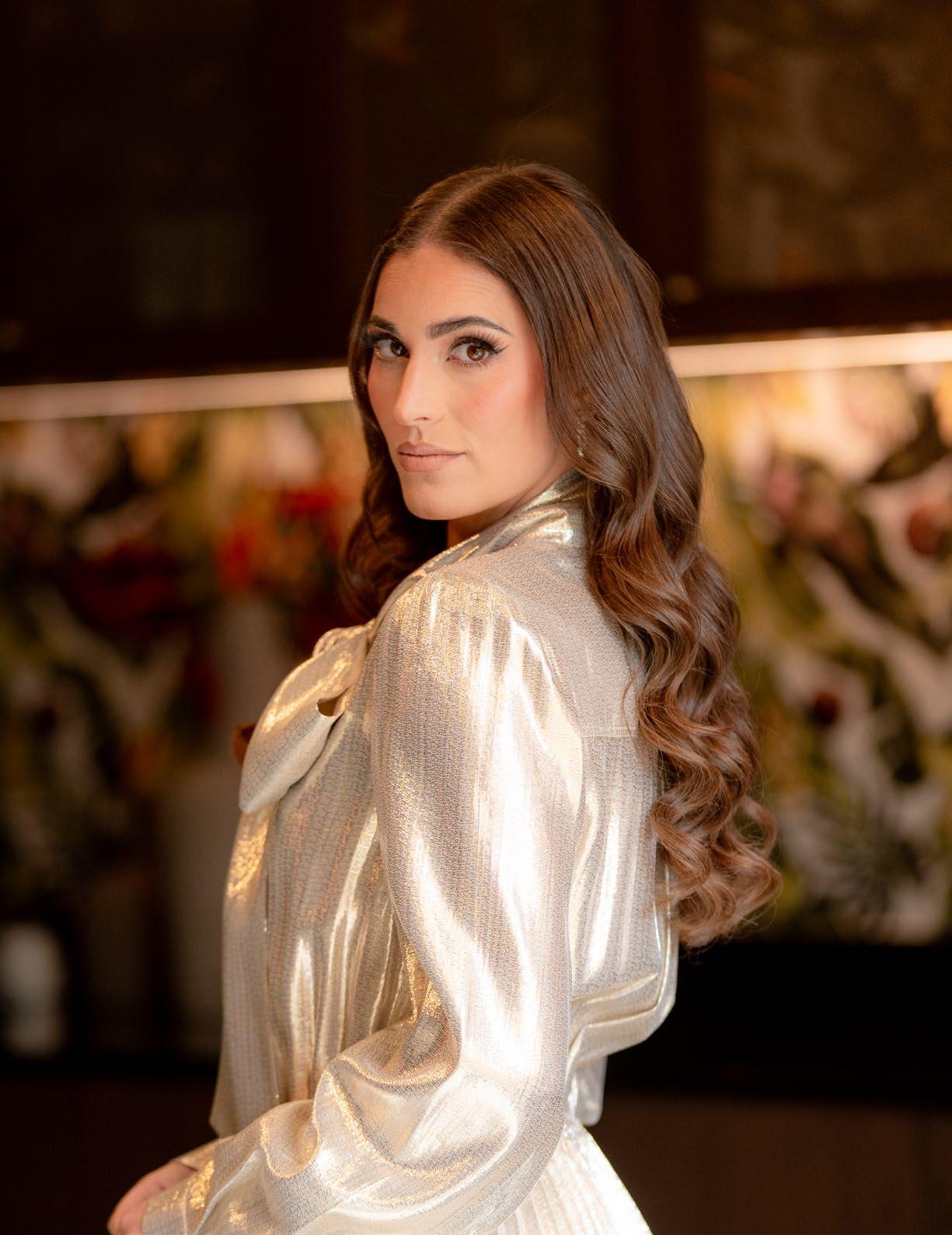
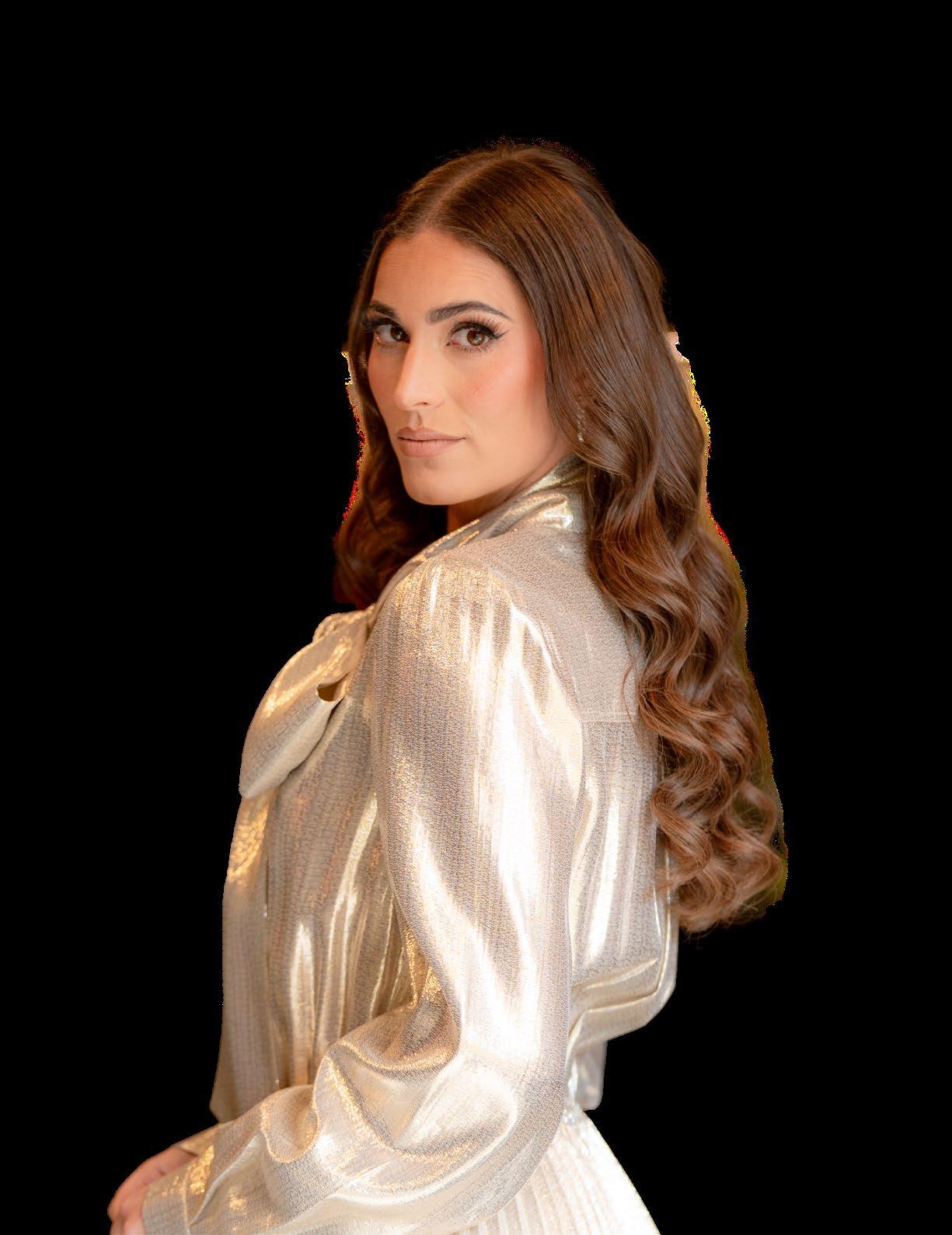
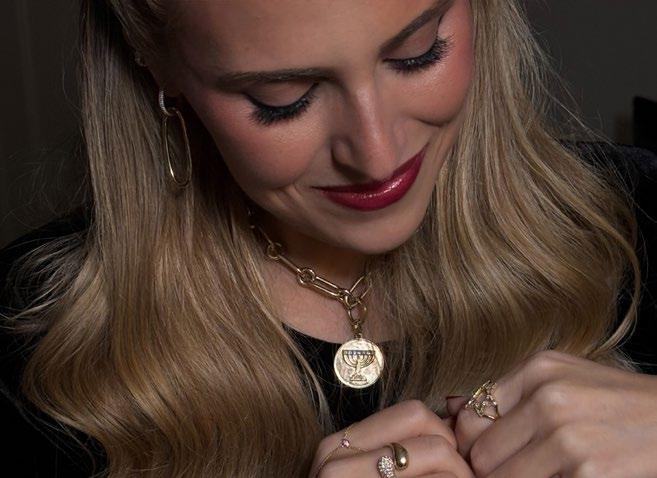
Editor’s Note by Esther Sitbon
KEEPING THE FLAME
A conversation with Sima Layani by Lehaalot
PSYCHOLOGY HELPED ME UNDERSTAND MYSELF.
Torah Helped Me Trancend Myself by Eda Schottenstein
THE ATI-BURN-OUT MEHOTD
Tips from a Busy Oncologist and Non-Profit Leader By Dr. Miriam “Mimi” Knoll
FROM THE SPOTLIGHT TO THE LIGHT OF THE TORAH:
An Interview with Sarah Mintz and Lehaalot Magazine By Lehaalot
DESIGNING DIGNITY THE FORMENTERA SWIM STORY by Lehaalot
STANDING STRONG, STANDING TALL
The Voice, The Strength, and the Journey of Shai Elbracht By Lehaalot
WEARING THE LIGHT
A Luminous Encounter with Rachie Shnay By Lehaalot

NOT SILENT, NOT SORRY- WHY OUR VOICE MATTERS NOW MORE THAN EVER
By Lehaalot
SHEMA YISRAEL-LISTENING TO THE VOICE WITHIN By Lehaalot
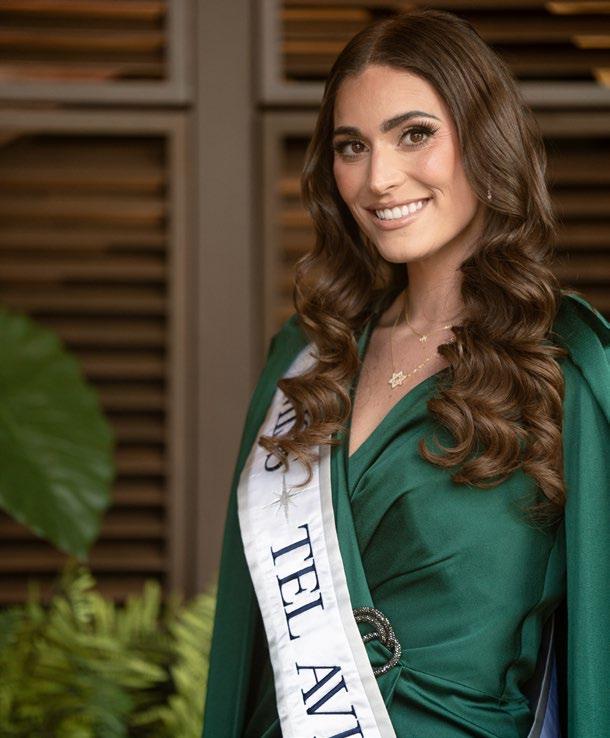
TABLE TALES: Setting the Table with Beauty, Meaning, and Heart By Andrea Milhem & Judy Attie
DEAR SOULFUL SEASONT By
Sarah Benisty
AM TABOR 5, DOOR 47 By
Bárbara Wolf
Lehaalot LIVING A BEAUTIFUL AND MEANINGFUL LIFE By Lehaalot MOVING FORWARD-THE ILLUMINATED JOURNEY OF SARAH PERETS By Lehaalot FROM THE LAND OF ISRAEL: SIMANIM WITH SOUL
MAKE UP MAGIC FOR THE YAMIM NORAIM: LONG-LASTING BEAUTY FOR THE HOLIDAYS By Avital and Avital DIANE BOUCCARA: FROM FASHION TO EMUNAH

My dear sisters,
As Ellul approaches—a time of reflection, return, and renewed connection—I want to speak to you, heart to heart. This magazine is more than beautiful photos and articles. It is a mirror, a sacred space where Jewish women across the world can see themselves, truly see, and remember who we are.
First, gratitude. To Hashem, for life and this moment. To our devoted team, who shape every word and image with intention. To our contributors, courageous women who share their stories and show how the ordinary can become sacred. And to you—for choosing to awaken, elevate, and bring light. Without you, there is no Lehaalot.
This magazine was born not just from the love
of beauty, but from necessity—from the longing for clarity, purpose, and connection. Two years ago, maybe you lived in Paris, Buenos Aires, or Miami, feeling “normal,” Jewish but not fully identifying with it. Then, October 7th happened, and suddenly your Jewishness became loud, unavoidable, and challenging. And you asked: Who am I? What does it mean to be a Jewish woman?
Lehaalot was born to answer that cry. It’s time to define, reclaim, and wear our Jewish identity proudly. Hashem placed you where you are for a reason—your mission is to elevate the physical world, to bring holiness into everyday life, to reveal light where it seems hidden.
From Har Sinai, women were entrusted to hold the flame of the Jewish people. The power of femininity is to receive and transform, to turn the mundane into the divine. You are that woman, a daughter of the King, a bearer of light, capable of elevating your corner of the world.
You don’t need to move to Jerusalem to be holy. You only need to awaken, shift your intention, and choose to live as a proud Jewish woman, bringing light, love, and Hashem into everything you do.
Lehaalot means “to elevate”—but it also means to cause others to elevate. That’s the vision of this magazine: to lift you, so you can lift others. To help you reflect on your purpose so that you can pay it forward. To gather stories of women like you—from Argentina to Antwerp, from Boca Raton to Be’er Sheva—who are doing this work. Quietly. Boldly. Radiantly. Through our articles and podcasts, you’ll encounter women reshaping what it means to live Jewish today; women who wear modesty as a crown, experience mitzvot as joy rather than duty, weave a career with a calling, and know that strength and softness are not rivals, but companions.
This Elul, as the shofar calls us, I invite you to hear your own voice—the Jewish woman you were always meant to be. She was never lost. She was only waiting for you to return.
With endless love and emunah,
Esther Sitbon Founder & Editor-in-Chief
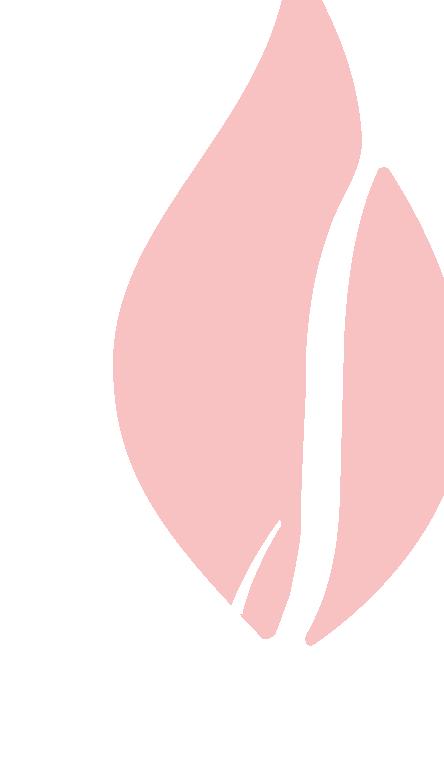
Thank you to all our contributors for sharing their light with Lehaalot Magazine.
Thank you to Asiatiko Maison La Fleur y Aurit Katan for the fashion photoshoot
Hear ALL our podcast — click here.
Follow on Instagram: @lehaalot_magazine
and Design
Sarin Moghrabi Rosanes Design Team
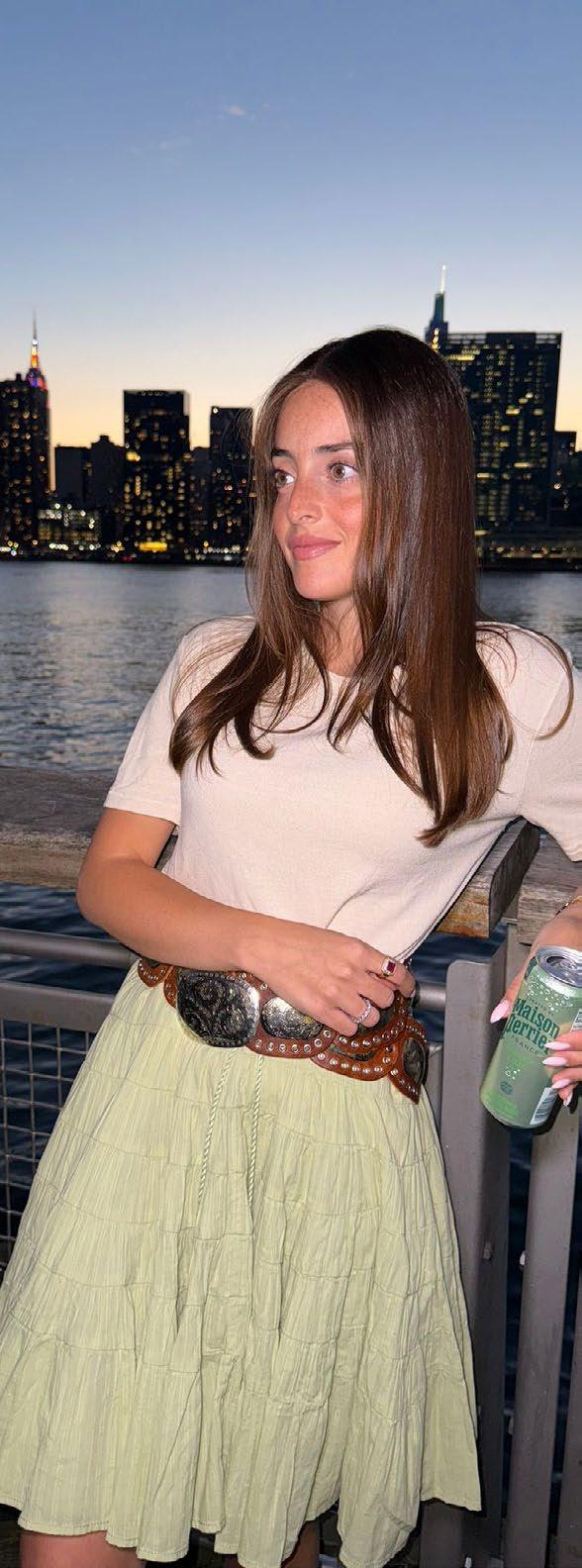
A conversation with Sima Layani
by: Lehaalot
In a world that moves fast, where appearances often overshadow essence, some women quietly uplift the world through their inner light. Sima Layani is one of them.
A mother of three, content creator, and deeply committed Jewish woman, Sima brings elegance, sincerity, and depth to social media. Behind her cooking videos, outfit ideas, and Shabbat vignettes lies a vibrant and modern vision of Jewish femininity.
For Sima, it all begins with a spark — something she works to nurture every day. Her purpose is simple: “Keeping the flame.”
Sima was born in Brunoy, France, and raised in a warm Chabad home where Torah and purpose were part of everyday life. Both of her parents are baalei teshuva, meaning they came to Judaism on their own paths. Her father, originally from Morocco, now teaches in the local yeshiva. Her mother, who grew up in a completely secular family in Monaco, discovered Torah at 18 after attending Rav Pinson’s seminars. Two very different journeys came together to pass on a shared flame to their children.
With roots that stretch from Morocco to Bukhara to France, Sima carries a heritage that’s both rich and expansive, grounding her deeply while giving her a broad and open perspective.
From Paris to Lyon, from Crown Heights to Miami, and finally settling in New York, Sima has lived many chapters, always in search of the place where she will find her true purpose. What guides her? A delicate balance between family closeness, Jewish education, and personal growth.
In New York, a new chapter began: visibility.
It wasn’t planned. One day, casually, she set up her phone, filmed herself preparing for Shabbat, shared a small anecdote from her sister-in-law’s meal… and her account exploded.
On the other side of the screen, thousands watched; Jewish and non-Jewish, religious, curious, distant, or simply searching- they were moved. It wasn’t about performance or spectacle. It was the quiet power of authenticity. A young, modest, beautiful Jewish woman living her faith with joy. In today’s world, that’s something rare.
Since then, she’s continued, steadily and quietly, sharing glimpses of her daily life, her recipes, her holidays, her thoughts. And in return, she receives messages that move her: a woman who wants to light Shabbat candles but doesn’t know where to start, someone who has just discovered she’s Jewish through her grandmother, even and a young man beginning to understand what it means to be a Kohen. Each message is a spark. Every response is a small step toward light.
Sima doesn’t run a Chabad center. She hasn’t formally studied halacha in depth. She doesn’t claim perfection. And perhaps that’s why she touches so many. She is real and accessible.
She calls her father, asks a rabbi, and double-

checks everything before speaking about Torah. She is humble because she knows that words can build or break. She understands the reach of her videos, which are seen by millions.
And most of all, because she knows her mission is not to be perfect, but to be a bridge. A bridge between tradition and modernity, the religious world and the outside.
In her videos, Sima embodies the vision of a Jewish woman as a daughter of the King. A woman who dresses with dignity, not to draw attention for vanity, but to honor the One she represents.
Her wigs aren’t just beautiful, they are her crown. Her outfits aren’t just fashionable, they are a quiet declaration of pride and purpose. Through every style choice, she reminds us that tsniut (modesty) is not about restriction, it’s about refinement.
Above all, Sima is a mother, and she shares her vision of home with warmth and gentleness.
For her, it’s not about cooking a gourmet meal every night; it’s about creating a space filled with joy. Laughter echoed through the rooms. Celebrations, big and small. A Shabbat table that smells inviting. A mother who is present, calm, and connected. She also speaks openly about the importance of nurturing the couple at the heart of the family, making time to go out together, even if just for
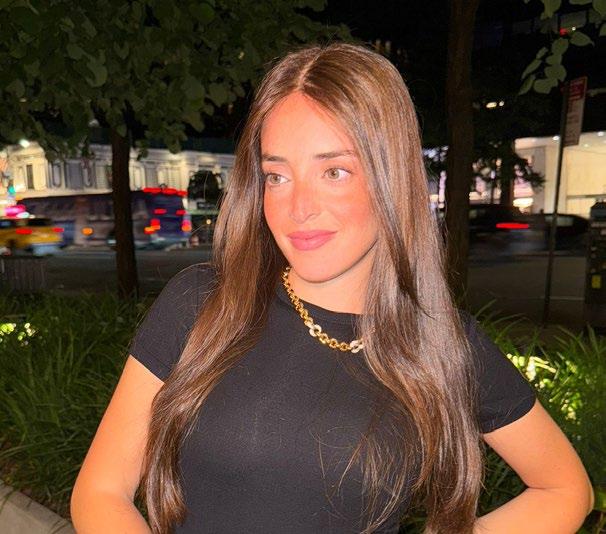
an hour. Because before becoming parents, you were a husband and wife. And it’s from that love that the true strength of the Jewish home begins.
As the month of Elul approaches, Sima offers a simple yet powerful tip: use all five senses to prepare your heart. Play festive music. Fill your home with scents that evoke Rosh Hashanah. Cook traditional dishes. Set the atmosphere.
Sima creates a sensory celebration for her children around each chag. She uses sights, smells, tastes, and sounds, which is something she shares with her followers as well. Often, a connection to Hashem begins in those simple, joyful moments: the sweetness of a cake, the rhythm of a piyut, the excitement of preparing for something sacred.
“You don’t need to be perfect to share light,” she says. And she lives that truth — in every story, every recipe, every video, Sima reminds us that each of us can be a source of light, right where we are. Posting a thought. Helping a friend. Lighting a candle.
The Rebbe said: If you know Alef, teach Alef. (If you know A, Teach A)
And Sima teaches it with grace.
Thank you, Sima.
For showing us that Torah can go hand in hand with style. That teshuva can begin in a kitchen. And that Social media, when used with sincerity, can become a vessel for light.
Hear the full story on our podcast — click here.
Follow on Instagram: @simalayani

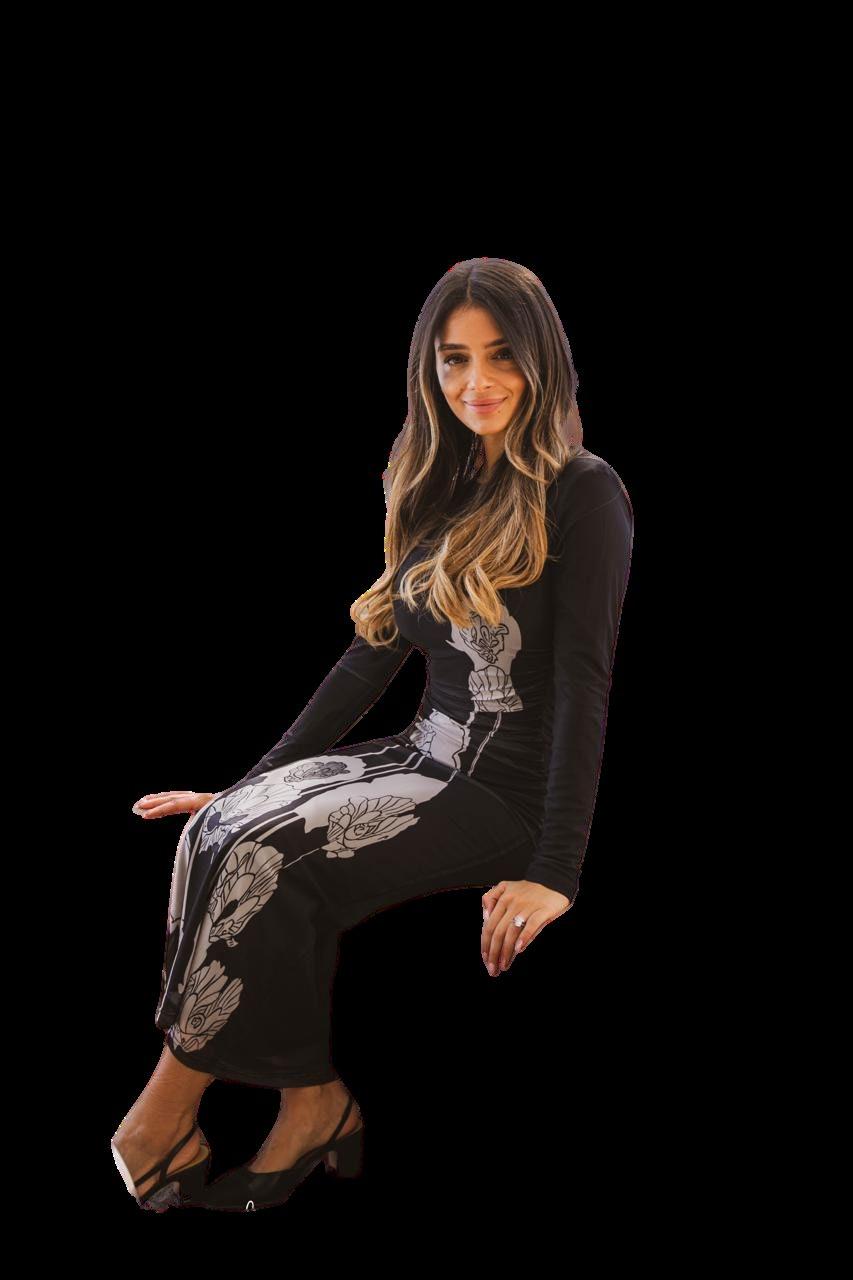

by: Eda Schottenstein
There was a time I was fully immersed in the world of selfhelp. I devoured bestselling books, listened to top-ranked podcasts, and attended every growth workshop I could find. I became a psychotherapist, an ADHD coach, and co-hosted a podcast that grew into a top 50 show worldwide.
It lit a fire in me. It gave me language, momentum, and an insatiable hunger to become more.
But at some point, I started asking deeper questions. I wasn’t just seeking progress, I was seeking purpose.
And so, time and again, I found myself at the Rebbe’s Ohel in Queens, asking for clarity. I didn’t just want more tools. I wanted to make sure I was using them in the right direction, that I wasn’t mistakenly moving for meaning.
I believed that growth always meant stepping out of my comfort zone. But then, like it often does, clarity came through an unexpected challenge that Hashem placed in my life. A curveball that made me pause and reevaluate.
By then, I had amassed a treasure trove of strategies from the world’s leading experts, and while they helped me navigate life’s unexpected turns, they weren’t enough.
Self-help gave me powerful tools, but Torah gave me the blueprint.
Suddenly, my eyes were more open, and growth was no longer just about transformation or “fixing” myself. It became about alignment—living in sync with who I was created to be.
Torah didn’t negate the wisdom I had learned. It refined it. It offered a filter, helping me discern which tools actually nourished my soul, and which were simply distractions in disguise.
It reminded me: Not every “yes” is brave. Not every leap is wise. And sometimes, the holiest thing you can do is stay still.
So if you, dear reader, find yourself on a soul-searching mission—traveling far and wide, turning every stone—don’t forget to look within. You were given an internal compass. When it’s guided by truth, it doesn’t glitch, even when life feels messy or impulsive. When your thoughts, speech, and actions are rooted in Torah, you don’t need to fear how you’ll be perceived, because truth isn’t fragile.
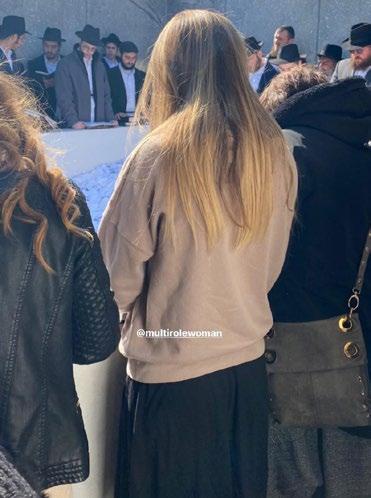
Movement ≠ Traction
Don’t confuse activity with aligned purpose. Progress without direction is just noise.
Discomfort Isn’t
Automatically Holy
Choose growth that brings you closer to your mission, not further from your values.
Anchor First, Experiment Second
Root yourself in Torah before you layer on habits and hacks.
Filter the Feed
A strategy that contradicts Torah is not a shortcut—it’s a sidetrack.
Trust Your Internal Compass
1. 2. 3. 4. 5. Five Takeaways for the Jewish Woman on a Growth Journey:
Alignment with truth grants freedom. You don’t have to fear saying or doing the “wrong thing” when it’s coming from a place of integrity.
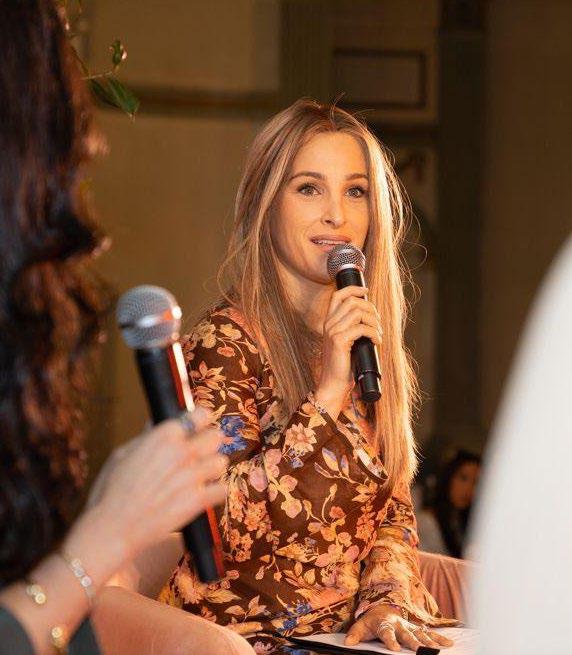
This week, try this:
Pick one self-help tool you already love (journaling, meditation, mindset reframing).
Pair it with one Torah practice (a line of Tanya, a chapter of Tehillim, a halachic teaching).
Observe how the pairing transforms the experience—deeper, steadier, more grounded.
Real transformation isn’t about fixing every flaw.
It’s about living in alignment with who Hashem created you to be.
May we grow together with both wisdoms in hand.
Rabbi Lipskar Story: A Moment I’ll Never Forget
About five years ago, I attended a Tony Robbins conference; 15,000 people gathered for what was billed as a lifechanging weekend. My close friend Devorah Lea Andrusier, who is the daughter of Rabbi Lipskar ob’m, and I did the famous fire walk (yes, we literally walked across hot coals and didn’t get burned). It was powerful and deeply transformative.
When I returned home, Rabbi Lipskar happened to be visiting. His daughter had mentioned to him that we had gone to the event together. He asked how it was, and I told him with passion, “It was incredible. Life-changing.”
He nodded, then gently pointed to the bookshelf behind me, filled with sefarim—Tanya, Sichos, Shaar HaBitachon—and said, “Everything you’re searching for is right here.”
At the time, I didn’t fully grasp what he meant.
Now I do.
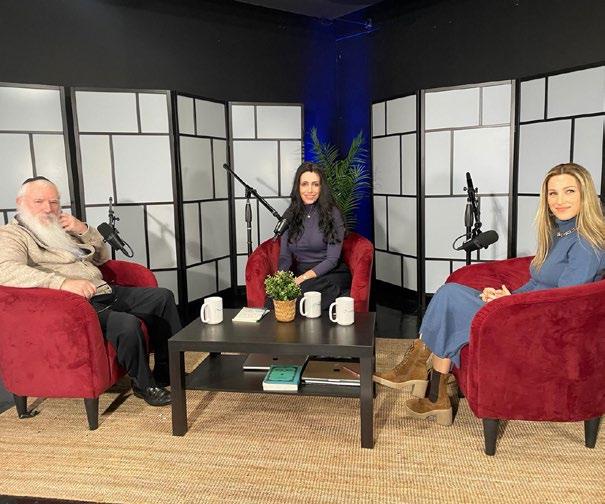
Miriam “Mimi” Knoll, M.D., D.A.B.R. is CEO of JOWMA, the Jewish Orthodox Women’s Medical Association, a non-profit public health organization serving the Orthodox Jewish community and supporting a network of Jewish women physicians. Dr. Knoll is a radiation oncologist at Northwell Health in New York and serves as Medical Director of Digital Engagement for the Northwell Health Cancer Institute. She earned her medical degree at NYU School of Medicine and completed her radiation oncology training at Mount Sinai Medical Center in NY.
Dr. Knoll is an international speaker and researcher focusing on the medical workforce, women in medicine, and social media in medicine. She is a Forbes Healthcare contributor and writes for the American Society of Clinical Oncology (ASCO) Connection and numerous other media outlets. You can follow her on X @MKnoll_MD and on Instagram @Dr.Mimi.K.

by Dr. Miriam “Mimi” Knoll
Burnout is a buzzword in the world of medicine today, as many physicians find themselves disillusioned with practicing medicine, given significant hurdles with insurance companies, corporate medicine, distrust in the medical system, and financial constraints.
When I started the Jewish Orthodox Women’s Medical Association (JOWMA) in 2019, I could not have dreamed we’d grow to nearly 1,000 Jewish women physician members in 2025, consisting of pre-medical students, residents, fellows, and practicing physicians at all stages of their careers. JOWMA provides our amazing volunteer network with a platform to give back to the community— by hosting educational events for women, creating health content geared to the Jewish community, and mobilizing volunteers during times of need, such as sending physicians to Israeli hospitals after October 7th.
What I’ve learned over the years is that if you want something done, as they say, ask a busy person. Our members are deeply invested in helping each other succeed in their careers, mentoring the next generation of Jewish women physicians, and volunteering their expertise with the community—even beyond their already full days saving lives in hospitals and clinics.
No. But they give back anyway, every day.
It turns out, there’s a secret to combatting burnout— and that’s why JOWMA has become so important to our members. And I think this secret applies to everyone, whether you’re a physician or not. Here’s what I’ve learned:
Be mindful every day about your life goals, and how your work fits into that. I try not to say “I have to do…” and instead say “I get to…” No job is perfect, and we can’t control everything about our lives (such as physicians can’t control the broken U.S. healthcare system). So I try to only control those things I can, and realize every other frustration, while real, isn’t under my purview. Community helps—because you’re able to share your struggles with others. You realize you’re not alone. Whether it’s your career, family, holidays, or hobby— find a community you can share your perspectives with.
I have had many bad role models—people who I would meet and think “I don’t ever want to be that kind of physician,” because they were overwhelmed, angry with the system, and felt everyone owed them something. And I’ve had many wonderful role models—physicians who felt that medicine was the greatest profession and that it was the opportunity to give back. Both types of role models continue to inspire me to be the kind of person I want to be.
Volunteering is a major antidote to burnout. Think about it—if you’re overwhelmed and burnt out, how would you have time to volunteer? I used to discourage students from volunteering with JOWMA, because I wanted them to focus on passing their exams and finishing their training. But students taught me the opposite—volunteering itself helps them get through their training. Volunteering connects them to others and to a larger purpose. And, volunteering gave them agency (a term one of our members, Dr. Donna Zwas from Haddassah in Jerusalem, taught me). If you’re carving out time in your busy week to volunteer, your mind automatically realizes “I’m not overwhelmed. I have time to do this important work that I chose.”
I like to have a running list in my mind of all the things I do, and all the things I don’t do. For example, during medical school and residency I would think “I currently work full time, and I don’t go out for lunch with my friends (i.e. my stay-at-home mom friends!).” And while I would often experience FOMO (fear of missing out), I was OK with it because it was my choice. FOMO is real and it’s important to recognize it for what it is. I’m a mom of four and I had two children by the time I graduated medical school. I’ve learned that a lot of moms confuse momguilt with FOMO, which can exacerbate negative feelings and lead to shame spirals. Wanting to spend time with your kids is normal (aka FOMO), but that’s not the same as momguilt.
Taking vacation is hard. Turning off your phone is hard. Getting off social media is hard.
Do it anyway. You need to give your brain a rest and calm your nervous system.
I recommend blocking time in your weekly schedule where you have nothing scheduled. And make sure it’s the same time every week. I came across this strategy when I finished my training and started my first job. I unexpectedly had 2 hours between when my clinic ended and when I needed to cover the evening radiation shift at another location. It wasn’t enough time to go home, so instead I used it to relax—and I came to look forward to this block of free time. I have continued to keep this approach in my life. Whether it’s one hour Shabbat morning or Sunday evening, find a consistent time in your week that you have no demands on your life. And stick to it. It will give your mind space to relax and anticipate, and will do wonders to prevent burnout.
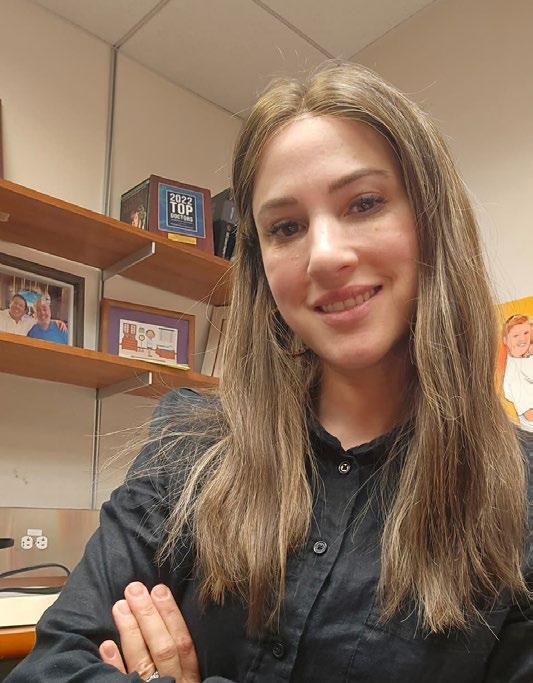
Hear the full story on our podcast — click here.
Follow on Instagram: @dr.mimi.k

by: Lehaalot
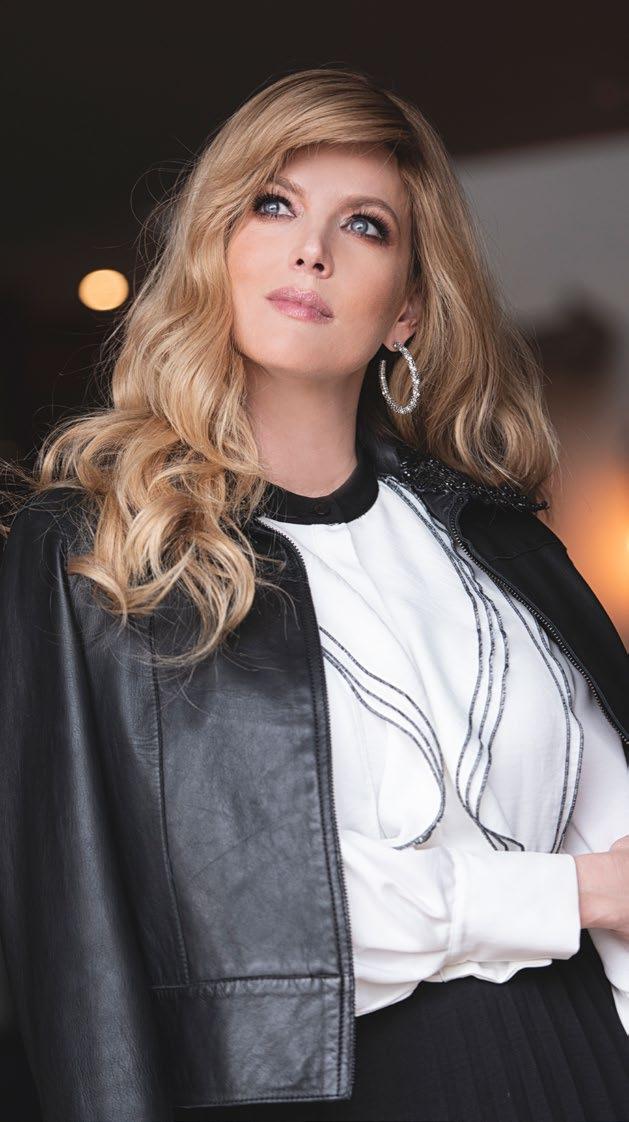
Millions know her as an actress, model, and star of telenovelas. However, off-screen, away from the spotlight, a different story unfolded; a story of renewal and of the soul.
Today, she is known not only for the roles she played, but for the role she chose: to live as a Jew, as a spiritual mother, and as a woman walking in the footsteps of our Matriarch Sarah.
In this deeply moving interview with Lehaalot Magazine, Sarah Mintz, formerly known as Maritza Rodríguez, shares the remarkable story of her spiritual transformation. Her path has taken her from Barranquilla to Jerusalem, from red carpets to the holiness of Shabbat, and from questions whispered in childhood to a life fully aligned with her neshama. It is a modern-day Lech Lecha: a courageous departure from everything familiar in search of the eternal. Millions know her as an actress, model, and star of telenovelas. However, off-screen, away from the spotlight, a different story unfolded; a story of renewal and of the soul.
Today, she is known not only for the roles she played, but for the role she chose: to live as a Jew, as a spiritual mother, and as a woman walking in the footsteps of our Matriarch Sarah.
In this deeply moving interview with Lehaalot Magazine, Sarah Mintz, formerly known as Maritza Rodríguez, shares the remarkable story of her spiritual transformation. Her path has taken her from Barranquilla to Jerusalem, from red carpets to the holiness of Shabbat, and from questions whispered in childhood to a life fully aligned with her neshama. It is a modern-day Lech Lecha: a courageous departure from everything familiar in search of the eternal.
Lehaalot: Sarah, it’s such a joy to have you here. If your life were a book, what would its title be?
Sarah Mintz: It would be Cuando la Neshama Habla — When the Soul Speaks. Because that’s what happened to me. My soul started speaking to me from a very young age. I was born in a beautiful, close Catholic family in Colombia, but I always asked myself: where is G-d in the everyday? Why do we only talk to Him one hour a week? I didn’t have the language, but I had the questions.
Lehaalot: Your search for Hashem and your instinct that He is everywhere reminds me of Avraham avinu and Sarah imenu; questioning the world around them, searching for what’s real. You sound like someone following in those same footsteps.
Sarah: Exactly. I always felt a deep discomfort with anything that didn’t feel real. I didn’t like bowing to statues. It felt hollow. As a child, I already felt, “This can’t be the way to reach G-d.”
Lehaalot: You were thirsty for Emet, truth, for authenticity, and yet your life took a very surprising path—as an actress, a model, a celebrity. How did that happen?
Sarah: It wasn’t a dream. It wasn’t my plan. I was just... different. Tall, blonde, blue-eyed, and in Barranquilla, that meant people saw me and said, “You should model, you should act.” Opportunities came, and I took them. And I did well. I was at the top. Exclusive contracts. Money. Fame. But inside, my soul was still whispering.
Lehaalot: And when you are at the top, as you said, your journey takes a turn. You meet your husband, a traditional Mexican Jew.
Sarah: Yes. At first, his Judaism wasn’t really visible. He was very assimilated. He has children from a previous marriage, and when I met them and saw them lighting candles and blessing the bread, something in me lit up. I didn’t know what it was. I thought, “Maybe it’s a Mexican custom.” (laughs)
Lehaalot: (laughs) So, you didn’t know they were celebrating Shabbat or that they were Jewish.
Sarah: Not at all. And when he told me he couldn’t marry in a church, because he was Jewish, I offered to marry in his synagogue. He said, “You’d have to convert.” And I said, “Convert to what?” I didn’t even know what Judaism was.
Lehaalot: So how did it begin? Knowing your husband was not very observant, did you go directly to a Beth Din? Or did you explore different ways before finding the Torah?
Sarah: It was a long journey with a few connections, let’s say. It started through a spiritual study group. A teacher of mine told me about a place where they explore ancient Jewish wisdom and soul teachings. And there... I thought I could finally get answers to my questions. And it really got me started on my journey. Slowly but surely, I understood that there were some dissonances, and this was not the right place for me.
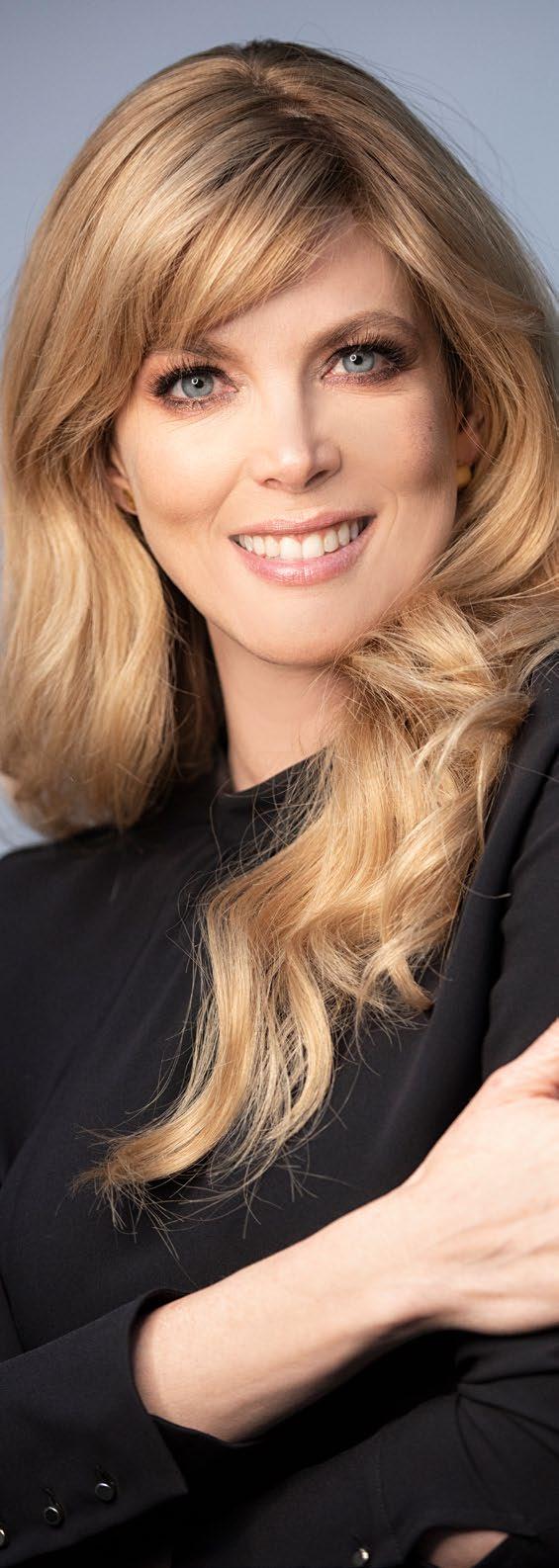
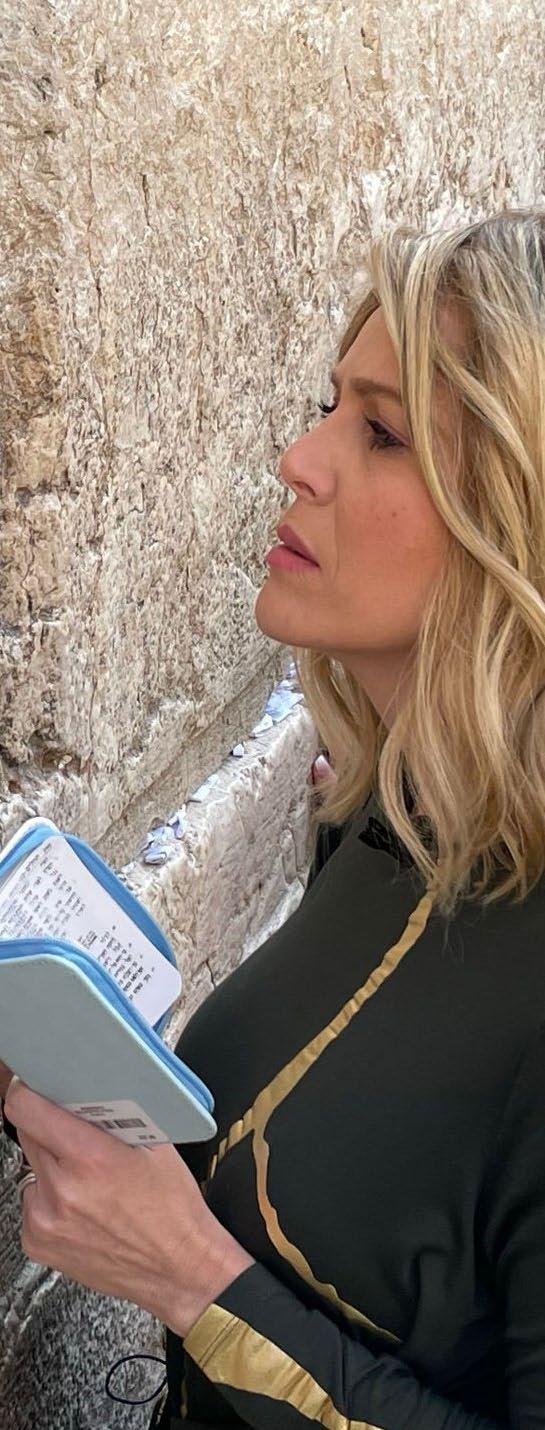
So I looked for a more authentic Judaism, but my husband was not ready for that. So we went to a conservative rabbi, and it was another stop before my final destination.I thought I was just learning spirituality. I didn’t know it was Judaism.
Lehaalot: That’s so powerful. And yet, as you shared in our conversation, even after a conservative conversion and a wedding under the chupah, something was still missing.
Sarah: Yes. I thought I had arrived. But when I walked into a conservative synagogue for Yom Kippur, it felt like a fashion show. Perfume. Heels. Lipstick. And I said to my husband, “If this is Judaism, take me back to church.” (laughs) That’s when I knew. I hadn’t yet found the truth.
Lehaalot: That moment feels like your Lech Lecha. The inner knowing that you had to leave your land, your past identity, even your name.
Sarah: Completely. I said, “I want to be a Jew in essence”. And Hashem started opening the doors. I studied. I prayed. I begged Him, “Give me a name from You.” And the name Sarah came to me like a whisper.
Lehaalot: And with that name, you also embraced a destiny.
Sarah: I wanted to be a mother like her. A woman who brings souls into the world, not just physically, but spiritually. I didn’t just want to raise children. I wanted to raise neshamot.
Lehaalot: And for that, you had to give up everything.
Sarah: Yes. The industry, the fame, the spotlight. But here’s the secret: I didn’t feel like I was giving anything up. It felt natural. Like graduating to the next level. One day I was acting, the next I was living. I didn’t leave a career. I found a life.
Lehaalot: And today, you live in Jerusalem. A mother. A teacher. A spiritual guide. What does that feel like?
Sarah: It feels like breathing. Like I have a Keli, a vessel, that can finally hold my soul. I study Chassidut. I coach women. I raise my children in kedusha. My husband wears tzitzit. He keeps Shabbat. We made aliyah This is the life I never knew I was searching for.
Lehaalot: Can you share more about what it means to you to live with a Jewish identity now, after everything you’ve been through?
Sarah: For me, being Jewish is not a label. It’s a way of being, every single day. It’s waking up and saying Modah Ani. It’s understanding that every moment has purpose, that there are mitzvot and halachot that are not restrictions; they are invitations to be conscious, to be present with Hashem. I don’t just feel that I joined a religion. I feel I came home. And I now have a responsibility to honor that home, to protect its sanctity, to teach it to my children.
Being Jewish means knowing I belong to something eternal.
That I am part of a people with a mission, to bring light, to reveal Hashem in the world. And that mission affects how I speak, how I dress, how I work, how I love. It’s not just about observing—it’s about being. Being a vessel for His light.
Sometimes I look at my tzitzit-wearing husband, my Shabbat candles, my children singing Hebrew songs, and I cry. Because this didn’t come easily. It came through tears, through confusion, through courage. But it’s mine. I fought for this identity. I chose it. And I continue to choose it every day.
Lehaalot: That is so deeply inspiring. You’ve shown us how Judaism is not just something we are; it’s something we must actively become.
Sarah: Thank you. You know, sometimes people ask if I miss the old life. But how can I? I didn’t leave light for darkness, I left lights for The Light. Hashem gave me everything I needed in the past to prepare me for who I needed to become. I don’t take it for granted.
In Parashat Lech Lecha, Hashem tells Avraham and Sarah: “Leave your land, your birthplace, and your father’s home... to the land that I will show you.”
Sarah Mintz did exactly that. She left a life of fame, comfort, and familiarity to embrace a covenant, a calling, and a truth. Her story is more than personal; it’s a collective wake-up call. Being Jewish is not something to take for granted. It is not a birthright to ignore or a title to wear passively. It is a divine inheritance. A mission. A way of life.
For those of us born into it, her journey reminds us to remember. To reconnect. To value what we were given—and to choose it anew. Because Jewish identity is a flame that must be tended, nurtured, and reignited, again and again.
The light of being Jewish shines brightest not when it is inherited, but when it is embraced.
Hear the full story on our podcast — click here.
Follow on Instagram: @sarahmintzoficial
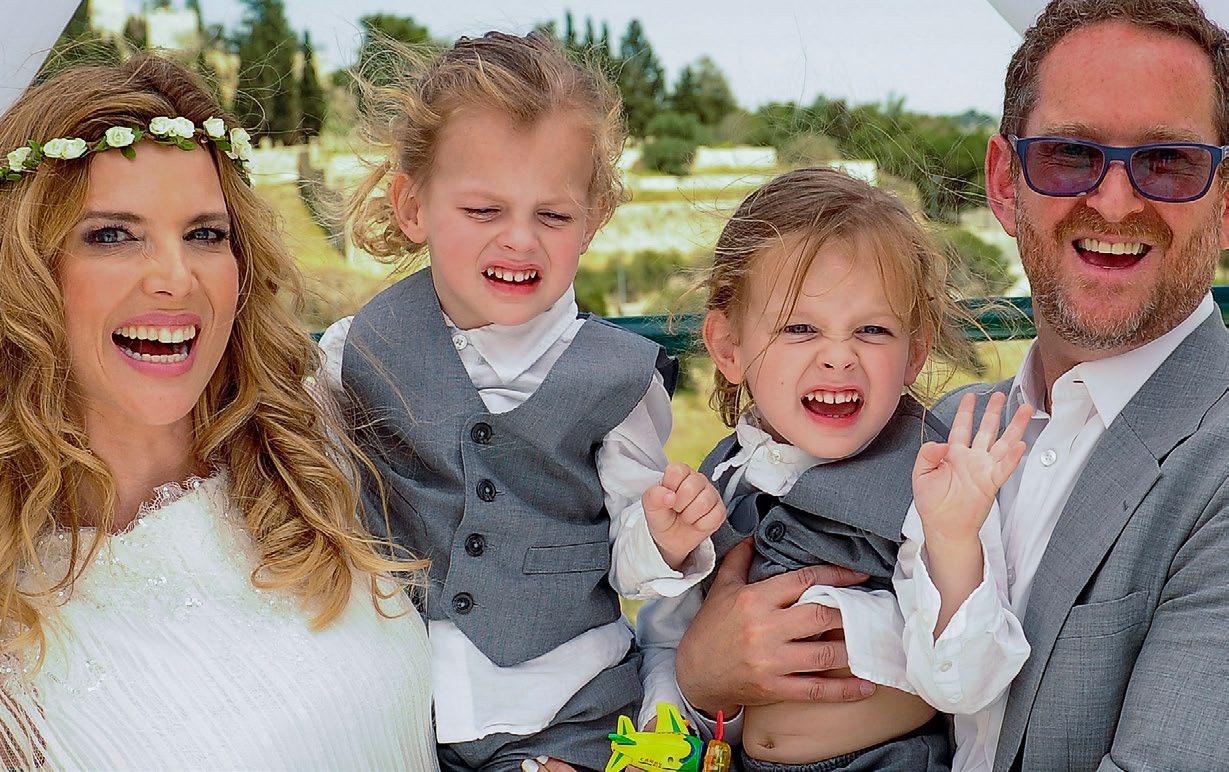
By: Lehaalot
hen I began my journey of teshuva, one of the most emotionally difficult transitions was adopting tsniut swimwear. At the time, modest bathing suits were often black or navy, heavy, and uninspiring—completely disconnected from the joyful energy of vacation. I remember sketching the designs I dreamed of and asking a seamstress to bring them to life.
One day, my sister-in-law, Shira Ayache, encouraged me to create a collection. Everywhere we went on vacation, women would ask where my swim dresses came from. That’s how I launched Seaporah, a line of tsniut swimwear in honor of my mother, Tsiporah. It met with some success… but I soon realized that my mission lay elsewhere: teaching Torah and building my family. So I lovingly closed that chapter.
Years later, I discovered Formentera Swim. I was immediately captivated by their designs. I loved their concept of a one-piece rashguard paired with a matching sarong—elegant, feminine, and profoundly dignified. For this special fashion edition, I wanted to meet the two incredible women behind the brand.
As King Shlomo says:

“She is like merchant ships; from afar she brings her sustenance” (Proverbs 31:14).
When a Jewish woman encounters a limitation, she rises above it—even in the professional world. Rachel and Perla show us how to transform personal lack into opportunity and purpose.
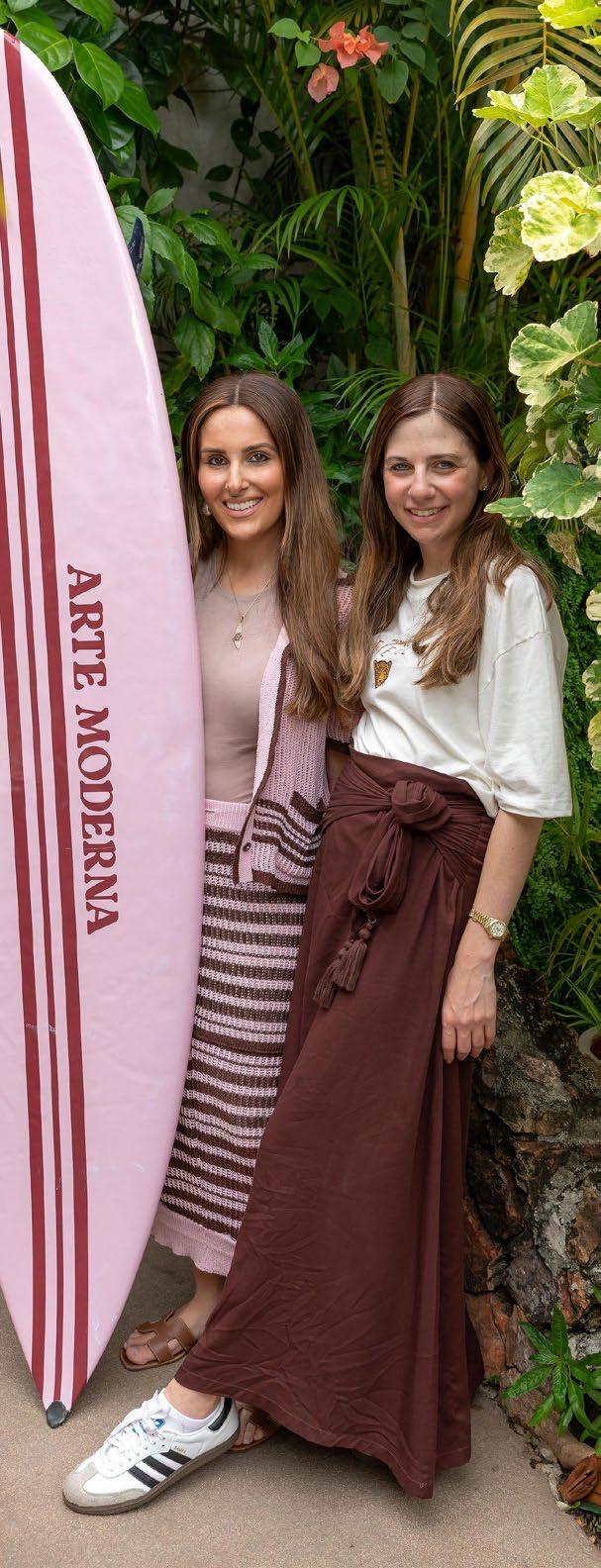
In a sun-drenched corner of the world—Panama—two Jewish women decided to solve a problem that had long lingered in their hearts. What began as a conversation between sisters-in-law during the stillness of the 2020 pandemic has evolved into Formentera Swim, a brand that is quietly revolutionizing tsniut fashion for the beach.

Panamanian entrepreneurs, mothers, and fashion visionaries whose personal journeys led them to create a brand that empowers Jewish women to feel both elegant and dignified while enjoying the pool or beach. As Rachel puts it, “When you dress in a way that reflects your inner self, it affects how you feel. You feel secure, comfortable, modern, and confident.”
Their path, however, was not linear. Rachel grew up in a home that became more observant over time, adapting gradually to tsniut (Modest) life. She recalls the dissonance between her deepening religious values and the lack of attractive modest options at the beach:
“I had mastered fashionably dressing modestly in the city, but when it came to the beach, I felt lost. I compromised. That inner compromise felt painful.”
“I had mastered fashionably dressing modestly in the city, but when it came to the beach, I felt lost. I compromised. And that inner compromise felt painful.” Meanwhile, Perla came from a family that observed Shabbat
Meanwhile, Perla came from a family that observed Shabbat and kashrut but hadn’t yet embraced tsniut. Her turning point came during a trip to Israel, where she packed her first suitcase filled only with skirts. She didn’t expect to fall in love with the new lifestyle, but she did. And when she came back to Panama, she couldn’t wear pants anymore.
“I felt I had reached a higher level, and going backward was no longer an option.”
Their shared challenge became the spark that lit the flame of Formentera Swim. While living together at a family beach house during lockdown, Perla turned to Rachel and said she was ready to start something. Rachel had the idea, but not the bandwidth to do it alone. Perla was all in.
The name Formentera, a Spanish island near Ibiza, was suggested by Rachel’s husband. It stuck immediately.
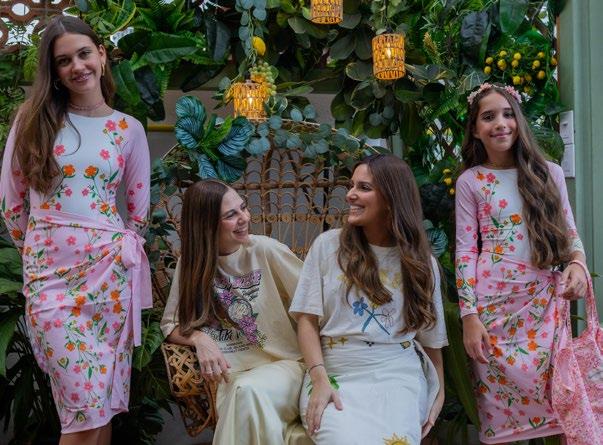

Elegant, mysterious, evocative of vacation, yet original. The brand was born.
Formentera Swim stands out for its simple yet clever design: a long-sleeved, printed rashguard paired with a matching waterproof sarong. The set moves effortlessly from beach to pool to resort lunch. Modest, yes, but also chic, colorful, and created with the thoughtful Jewish woman in mind. It’s born from real experience.
“We didn’t study fashion design,” Rachel explains, “but we lived the struggle. We knew exactly what was missing.” They didn’t want heavy fabrics or dull colors. They wanted waterproof prints, matching sets, and silhouettes that flattered the body while honoring tsniut. They went through trial and error, sourcing in Colombia through a trail of contacts until they found a factory willing to take a chance on their small batch idea. Their first collection sold out in their beachside neighborhood.
Women from around the world began writing to us: “You changed my vacations.” “My husband used to hate how I looked in the old modest suits. Now he says ‘wow’....
For some, the swimwear offered more than a solution. It offered permission to step into a new level of observance, to feel proud of themselves at the beach, to let go of the guilt or inner conflict
between modesty and aesthetics. Of course, the road hasn’t been without obstacles. From delayed shipments and unsold collections to manufacturing glitches and direct copycats, Rachel and Perla have faced the business world with resilience. “Not everything is perfect,” Perla shared, “There are setbacks. But when you’re doing something that fulfills you and helps others, you keep going.”
They also attribute their success to a strong support system. Their husbands are involved, giving advice and helping behind the scenes. Prayer is central. “Even if I have ten meetings in a day,” says Perla, “my tefillah comes first. It sets the tone for everything.” Rachel agrees: “We’re clear that the beracha comes from Hashem.” And they’re not done. Their new collection, Arte Moderna, launched this summer.
At its heart, Formentera Swim is about more than clothing. It’s about values; about what happens when Jewish women don’t wait for the world to meet their needs, but take the initiative to create the world they want to see.
In their final words, Rachel and Perla offer a message to women everywhere: “That idea that keeps coming back to you—don’t ignore it. Hashem puts light inside you. Let it shine. Don’t leave your dream behind. Build it, nurture it, and share it with the world.”
By: Lehaalot
Some women lift weights, and some women lift souls. Shai Elbracht does both.
Founder of Fit With Shai, a powerhouse in Jewish women’s wellness, Shai has long empowered others through fitness, education, and positivity. But after October 7th, her platform took on a new mission: truthtelling, advocacy, and a fierce, unwavering love for Am Yisrael.
And through it all, whether training, teaching, or testifying, Shai uses the gifts Hashem gave her: strength, clarity, and a voice. One that carries far beyond Instagram reels or fitness classes. Shai sings at her Shabbat table and speaks boldly for the Jewish people, even when it hurts.
We met Shai on the Lehaalot Podcast, not in a studio, but through the gentle crackle of a countryside connection. She lives far from the noise, tucked away on a homestead an hour from the closest Jewish community, surrounded by nature. It’s peaceful, intentional. A life built on simplicity. A return to roots. And perhaps, unknowingly, a return to legacy.
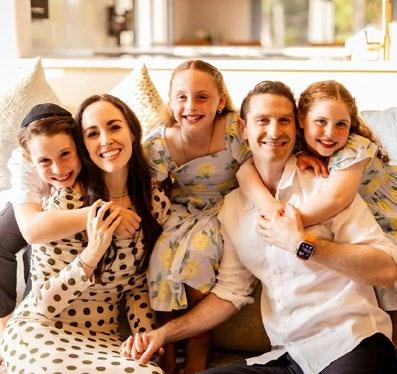
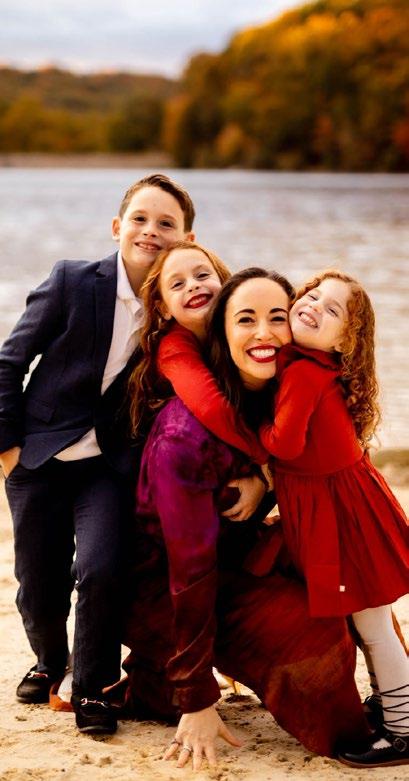
Because generations earlier, her grandfather survived the Holocaust by hiding underground with his family for two years. On a farm. Saved by a neighbor. Saved by the quiet, by Hashem. It’s no wonder, then, that four years ago, Shai felt a subconscious pull to move her own family out to the land. What started as a COVID-era experiment turned into a wholehearted return to her roots and a quiet space to grow into what’s next.
Shai was raised in Baltimore, the daughter of a Chazan and an esthetician. A home where Torah, music, beauty, and tradition danced together. “My parents were deeply connected, full of love,” she reflects. “They modeled a Judaism that was strong, vibrant, and grounded.”
She attended Bais Yaakov, was married at 19, and planned a conventional path. With a degree in business finance, she imagined herself in the corporate world. Her husband, however, had other ideas. “He told me, ‘That world isn’t what you think. You’re passionate about fitness, why not pursue that?”
And she did.
What started as a teenage 6 a.m. gym class turned into a thriving coaching business. She built a loyal community in-person and online, balancing work, motherhood, and Torah. When the family moved to the countryside, her work evolved. First, it was fully virtual, then a sleek fitness app. Shai was thriving. Until the world changed.
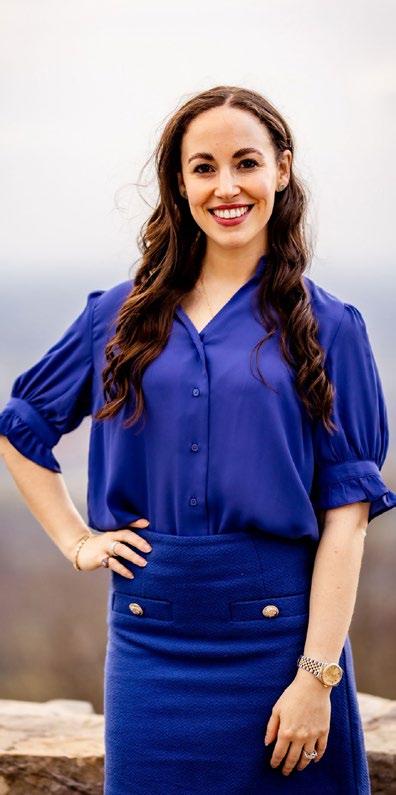
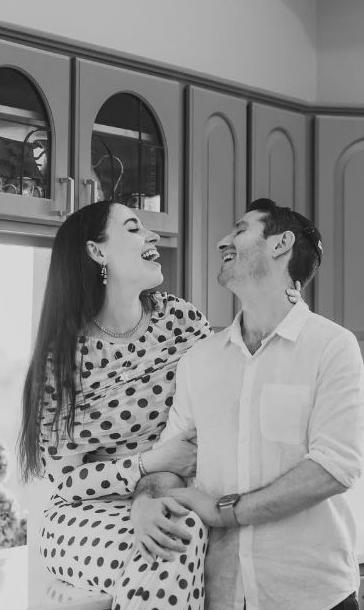
“They modeled a Judaism that was strong, vibrant, and grounded.”
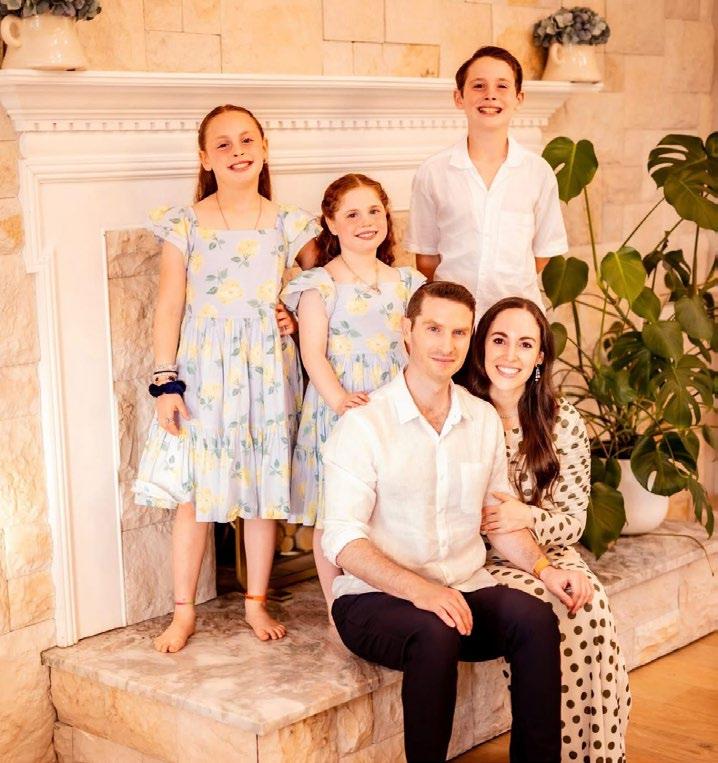
What gives someone the courage to speak out when the world shouts back?
For Shai, it’s not ego. It’s emunah. “I’m nothing without my Judaism,” she says simply. “Sharing the truth about my people and my land, that’s who I am.”
Even when it’s hard and her husband and children are targeted by online hate. Even when the world wants to silence her. Still, she stands.
Shai knows: silence is not an option. “During the Inquisition or the Shoah, Jews were killed for being Jews. Today, they want to kill us with lies. Social media gives us a voice, and we have to use it.”
And she has. Her videos have reached hundreds of thousands. Jewish women have found strength through her. Non-Jews have messaged her with thanks, sharing how her words helped them see clearly. “If even one person learns the truth, that’s one less person who hates Jews. That matters.”
In a twist of divine orchestration, Shai and her family were in Israel for Sukkot when Hamas launched its brutal attack. “We were right there. The fear was real. We didn’t know what was happening, who was safe, where to run.” But what shocked her even more than the terror was the global reaction. “The lies. The twisted narratives. The world justifying murder. I couldn’t stay silent.”
And so, she spoke. She posted. She created video after video, unraveling propaganda, telling the truth, and defending Israel.
That voice, once used for encouragement and wellness, was now a battle cry. Her advocacy became the heart of her platform. She stopped promoting her business. Clients fell away. Still, she kept going.
“I didn’t choose to pivot. I was called to. Hashem gave me a voice, and I knew it was for this moment.”
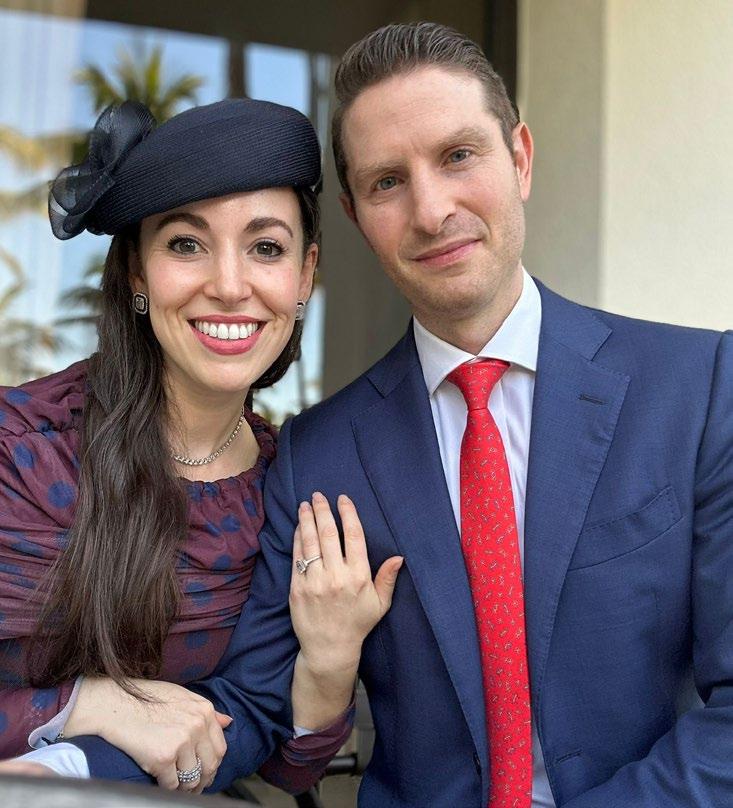
You don’t need a million followers to make an impact, Shai reminds us. “Start with your mind. Educate yourself. Read a book. Open a sefer. Study our history. Know what we stand for.”
Knowledge creates confidence. And with confidence comes conversation. “Speak up, in your grocery store, your school, your workplace. You never know who’s listening. Every Jew is a lamplighter. Every voice matters.”
She also insists: do it with dignity. “We’re not here to scream or provoke. Be strong, but be a mensch. Represent Am Yisrael with compassion and class.”
It’s easy to see Shai as a force of nature. But she’s also a mother—making dinner, offering hugs, setting boundaries. She’s a wife, still figuring out the sacred balance between home and purpose. And she’s a woman, choosing each day how to give to her family, to her people, and most importantly, to Hashem.
And she’s still learning. “Sometimes I let it take over,” she admits about her advocacy. “But I’m working on it; on creating sacred time, putting down the phone, being fully present.” It’s a message so many women need: passion with balance. Activism with humility. Fire with gentleness.
Shai dreams of stepping onto real-life stages, not just Instagram screens. Of using her voice in rooms filled with people hungry for truth and connection. But for now, her feet are planted in the countryside. Her heart is with her children. Her voice is still rising.
And for the rest of us?
She offers a simple way to help: share. Like. Comment. Engage. Not just for the algorithm, but for Am Yisrael. “The more we interact with truth, the more it spreads, the more people outside our echo chambers see it.”
Shai Elbracht reminds us that every Jew holds a spark and that truth can sound like a mother’s voice, trembling and brave. In a world full of noise, Shai is a clear note of courage. A reminder that when we speak from the soul, we don’t just inspire, we ignite.
May her flame continue to light the way for Jewish women everywhere, BH.
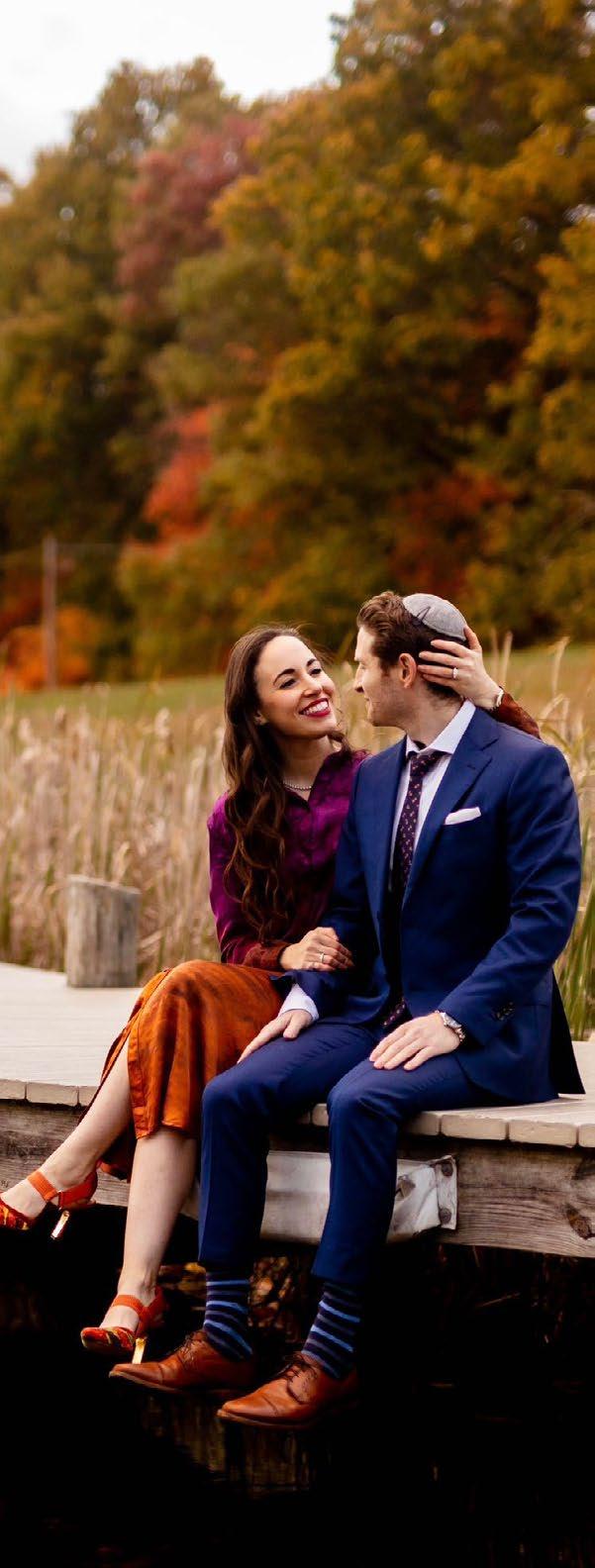
Hear the full story on our podcast — click here.
Follow on Instagram: @shaialbrecht
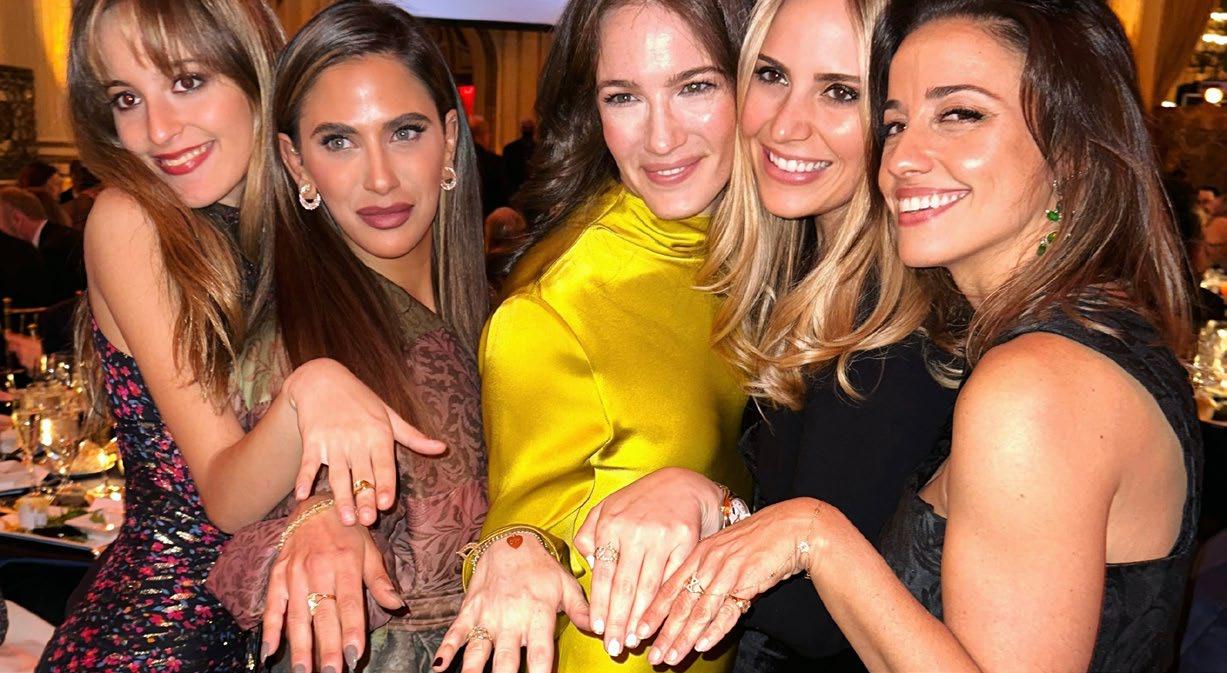
By: Lehaalot
t all started with a sunflower.
IAs a little girl in Manhattan, Rachie Shnay loved to draw them — on her notebooks, her bedroom walls, even in the quiet corners of her imagination. She was drawn to yellow, to joy, without really knowing why.
Years later, in a bright studio filled with sketches and jewelry boxes, she reflects:
“I think I’ve always had that light in me. I just didn’t yet know what I was supposed to do with it.”
For Rachie, her work is about more than jewelry. It’s about memory, heritage, courage, and finding ways to turn
pain into something meaningful. Rachie is named after a child she never met — her grandfather’s little sister, Rachel Shnay, murdered in Belzec, in the Holocaust, at the age of six. She has only one photo of her. One single image to carry an entire life that was erased.
When she launched her brand, she almost named it something else. But then a quiet voice inside her said: Let her name live again. Today, “Rachie Shnay” shines on necklaces, rings, and bracelets worn by women all over the world. It’s a brand. More than that, however, it’s a memorial. A way of saying: You didn’t get to live — so I’ll live for both of us.
Her grandfather, Simcha Horowitz, survived Auschwitz. At ten years old,
he was forced to watch the Nazis hang his father, a beloved rabbi in Lodz. He lost his mother, several siblings, and his childhood.
But what he never lost, somehow, was his joy.
Simcha made aliyah, fought in Israel’s War of Independence, and helped found the Israeli Air Force. He rebuilt his life in Argentina, then in New York, and never stopped radiating strength. “He had this incredible inner light,” Rachie says. “And I think I carry that light too.”
Simcha means “joy” in Hebrew. Not a naïve joy, but one that’s chosen, protected, cultivated; the kind that survives the unimaginable.
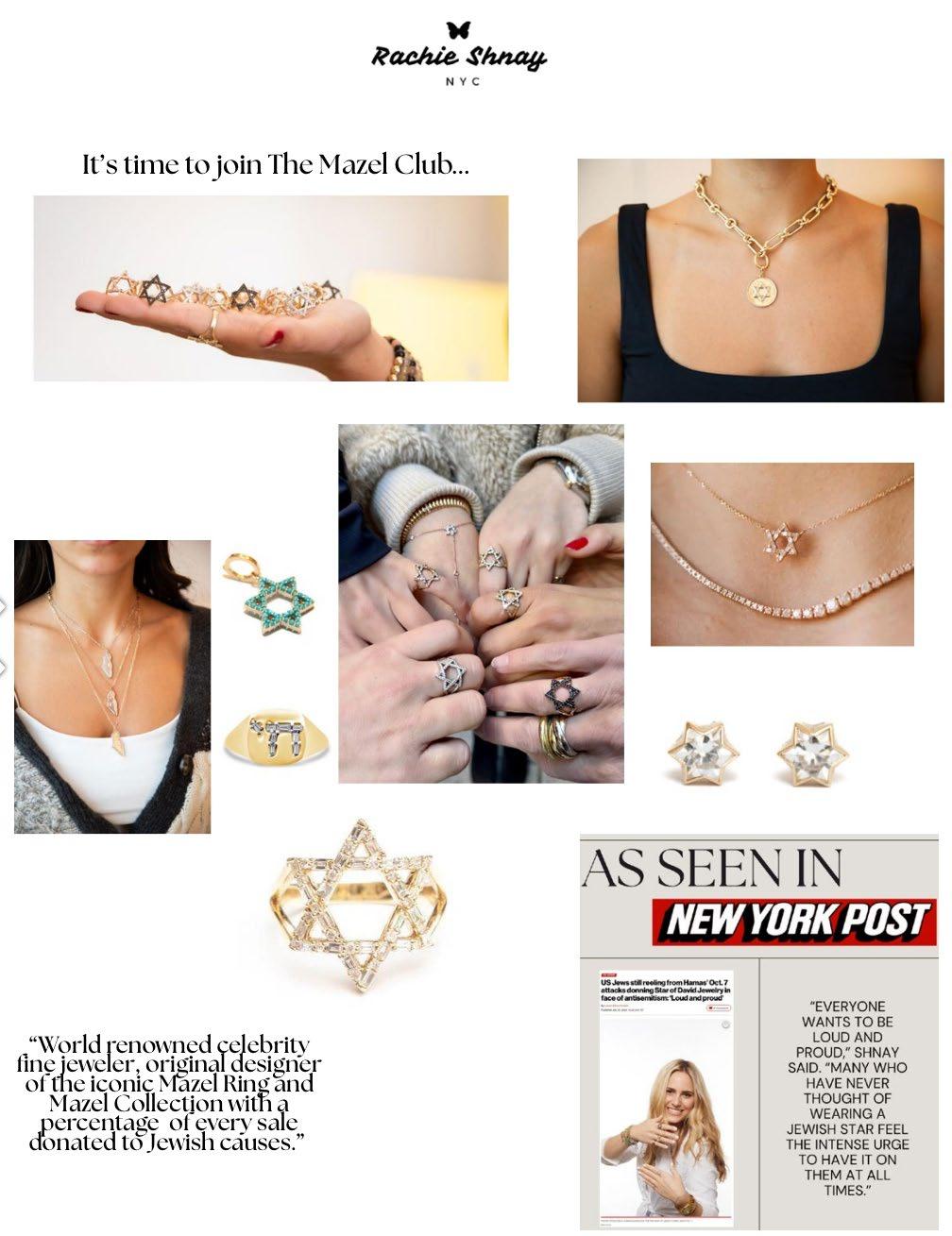
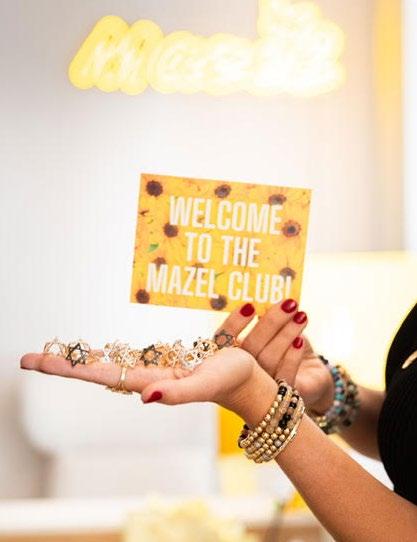
Rachie never thought she’d become a jewelry designer. She started out as a preschool teacher. During college, she discovered Chassidus — and something shifted.
“Judaism wasn’t a religion of rules anymore,” she tells me. “It was a way of living with meaning. A path to elevate the everyday.”
She started wearing her grandmother’s old Jewish pieces; faded Magen David pendants, simple menorahs, heavy with history. And in wearing them, she felt something awaken.
However, she also felt something was missing. Where was the Jewish jewelry that was modern, elegant, bold, and full of soul?
She began sketching. And without knowing it, she was laying the foundation for something much bigger than herself.
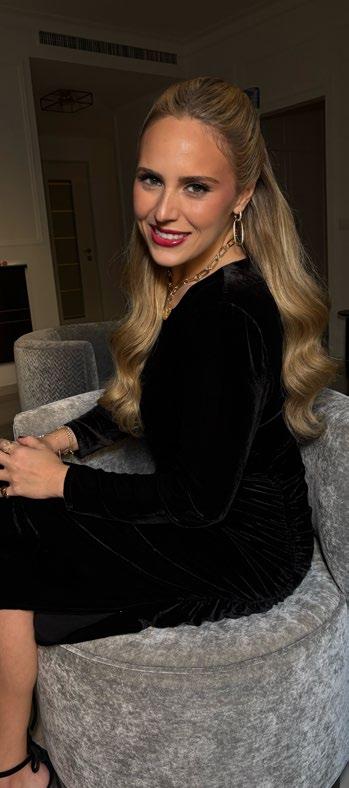
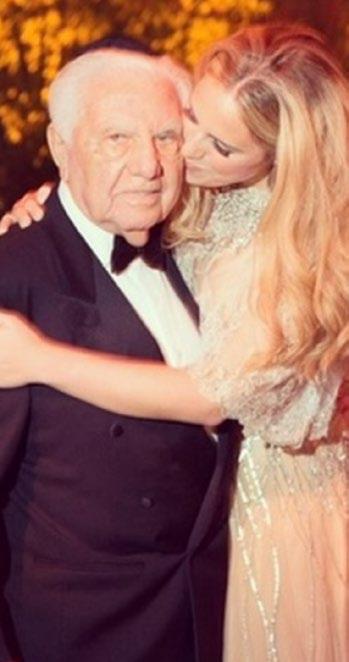
In 2019, Rachie launched her first collection: Mazel. Fifteen rings and a giant leap of faith.
“I was terrified,” she says, smiling. “My mother told me, ‘No one’s going to spend a thousand dollars on a ring that says Mazel.’ But I knew I had to try.”
She didn’t hire a marketing team. She didn’t try to go viral. She simply showed up every day with heart and intention. And slowly, women began to listen.
That Shabbat, Rachie was in shul for Simchat Torah. Her father leaned over and whispered:
“Your business is about to explode.”
She didn’t understand what he meant. Not yet.
But by Monday morning, the messages started pouring in.
Do you have a Magen David I can wear to work tomorrow?
I need something. I can’t walk into that meeting without it.
Please — I just want to feel like I belong.
In that moment, her brand became something else.
Women who had never dared to wear a Jewish symbol, who had kept their identity quiet, were now reaching out in desperation. Not to decorate themselves, but to declare:
I am a Jew. I’m standing tall. I will not hide.


“It was overwhelming,” she says. “I was receiving hundreds of orders. And each one felt like a cry for strength, a prayer, a message of hope.”
Since then, she has donated more than $180,000 to causes in Israel. But more than money, what she’s built is a form of resistance — one made of gold and light.
Rachie has been told some incredible stories surrounding her brand.
A woman in an airport recognizes someone else’s Mazel necklace. They smile, embrace, and speak like long-lost sisters.
A mother gives her ring to her daughter before a big interview.
A stranger in a café leans in and says, softly: We’re with you.
“I never expected this,” Rachie admits. “But it’s become a sisterhood; silent, visible, and powerful.”
People sometimes ask if she’s afraid. To wear such a visible Jewish symbol in New York, on the subway, in the streets. She smiles.
“No. That’s what gives me strength. And honestly? The love I’ve received for wearing it far outweighs the hate.”
But she understands the fear, especially in places like France.
“We have to be careful. But we can’t hide forever. Only light can protect us.”
To Rachie, jewelry isn’t superficial. It’s symbolic.
“These are tools,” she says. “Objects you can fill with meaning. Reminders you wear close to your heart.”
She shows me a small menorah pendant, inspired by one her grandmother used to wear. Not a hanukkiah, a seven-branched menorah, like the one in the Beit Hamikdash. A symbol of eternal light.
“That’s what I want to create,” she says. “Living memory, direction, and a sense of belonging.”
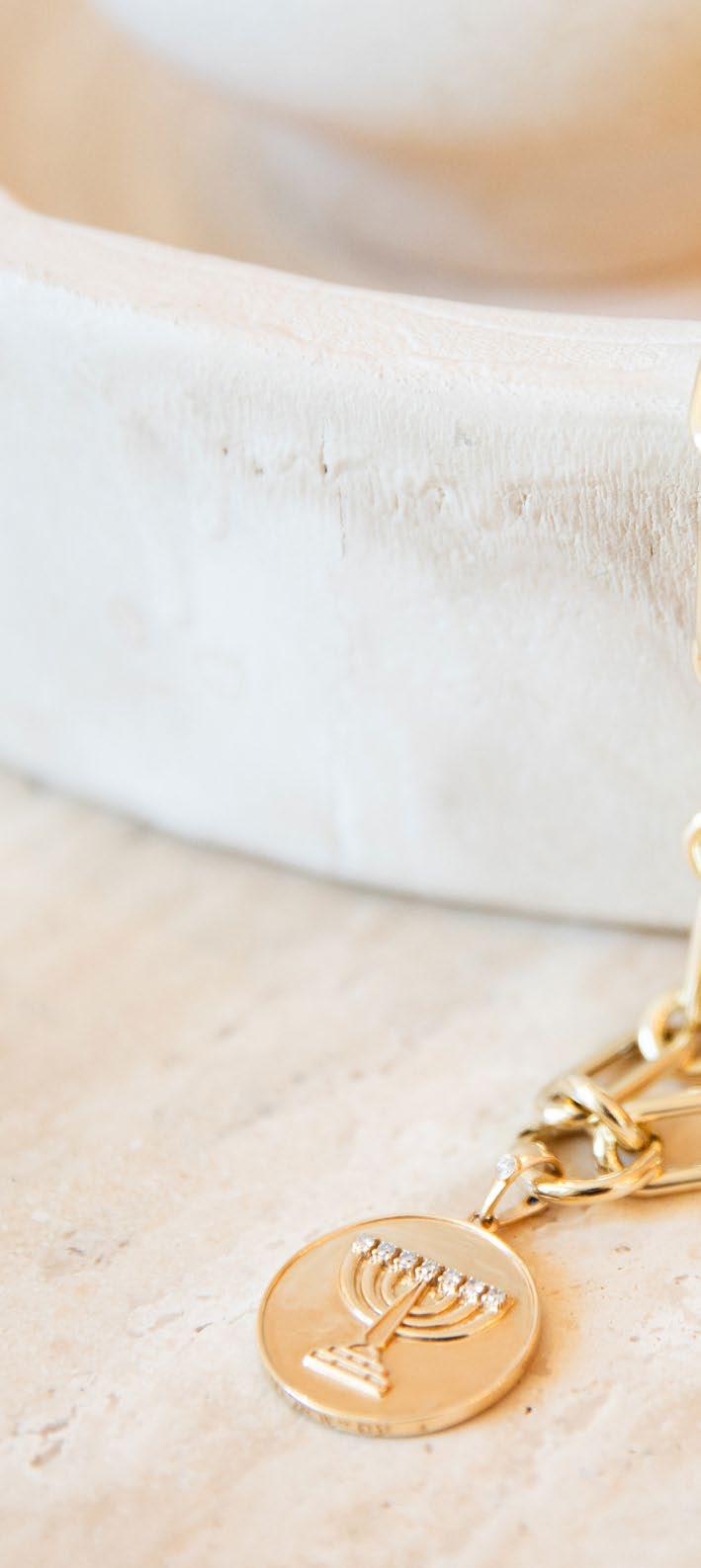
Hear the full story on our podcast — click here.
Follow on Instagram: @rachieshnay
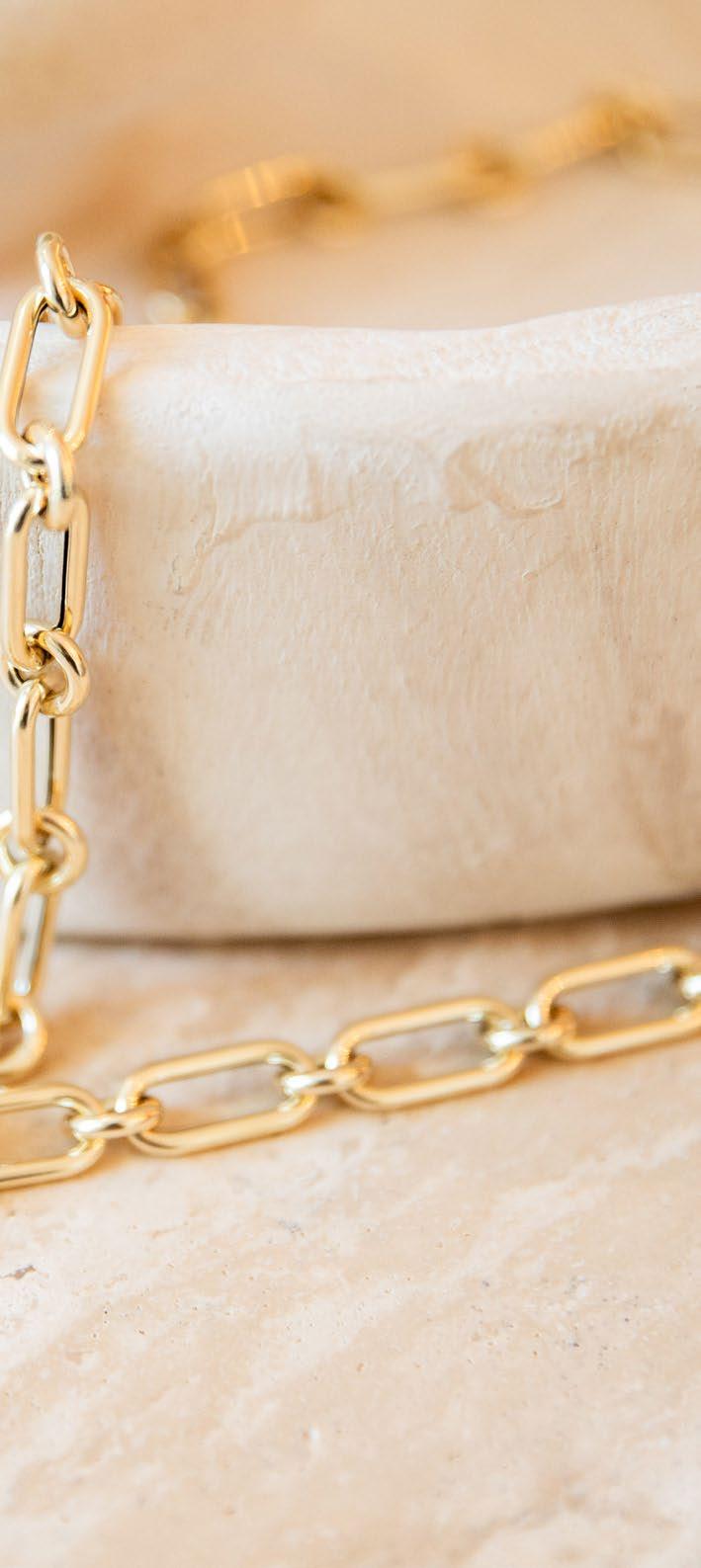
During the COVID crisis, she launched Feed Our Gems, a grassroots initiative to provide kosher meals to healthcare workers. It grew fast. She raised tens of thousands of dollars. Every meal was a blessing.
She also started Mazel Matches, a WhatsApp group to connect Jewish singles. What started as a fun idea at a party has led to weddings — and babies.
“I’m not trying to do it all,” she says.
“But when Hashem places something in front of me, I try to say yes.”
She speaks often about Jewish education. She knows it’s a sensitive topic in some circles. But she doesn’t shy away from it.
“Jewish school can change a life,” she says. “It builds identity. It offers a foundation.”
And when she speaks to women — mothers, singles, entrepreneurs, students — she always says the same thing:
You don’t need a big platform to make an impact.
You just need a full heart. And the courage to live with intention.
At the end of our conversation, I ask her what keeps her going, day after day.
She glances at a little photo on her desk — Rachel Shnay. Her namesake. Her memory. Her mirror.
And she tells me, gently:
“I think of her. I think of my grandparents. And I ask myself: would they be proud of me? Am I carrying the flame — or hiding it?”
She looks back at me. Smiles.
“And when the answer is yes… I keep going.”
Thank you, Rachie, for reminding us that light is not something we wait for.It’s something we wear.
Something we become.
By: Lehaalot
There is a war not only on Jewish lives, but on Jewish voices.
Since October 7th, we have witnessed something many of us thought impossible in our generation: open antisemitism in our universities, in the media, in corporate boardrooms, and on city streets. Chants calling for the death of Jews, students afraid to wear a Magen David, and Women pulled from leadership for saying the words “I stand with Israel.”
Perhaps even more dangerous than the hate itself is the shame it tries to instill. The pressure to apologize, to soften, to shrink. This is the moment when Jewish women must rise.
And this is the moment when voices like Adela Cojab’s become not only inspiring but essential.
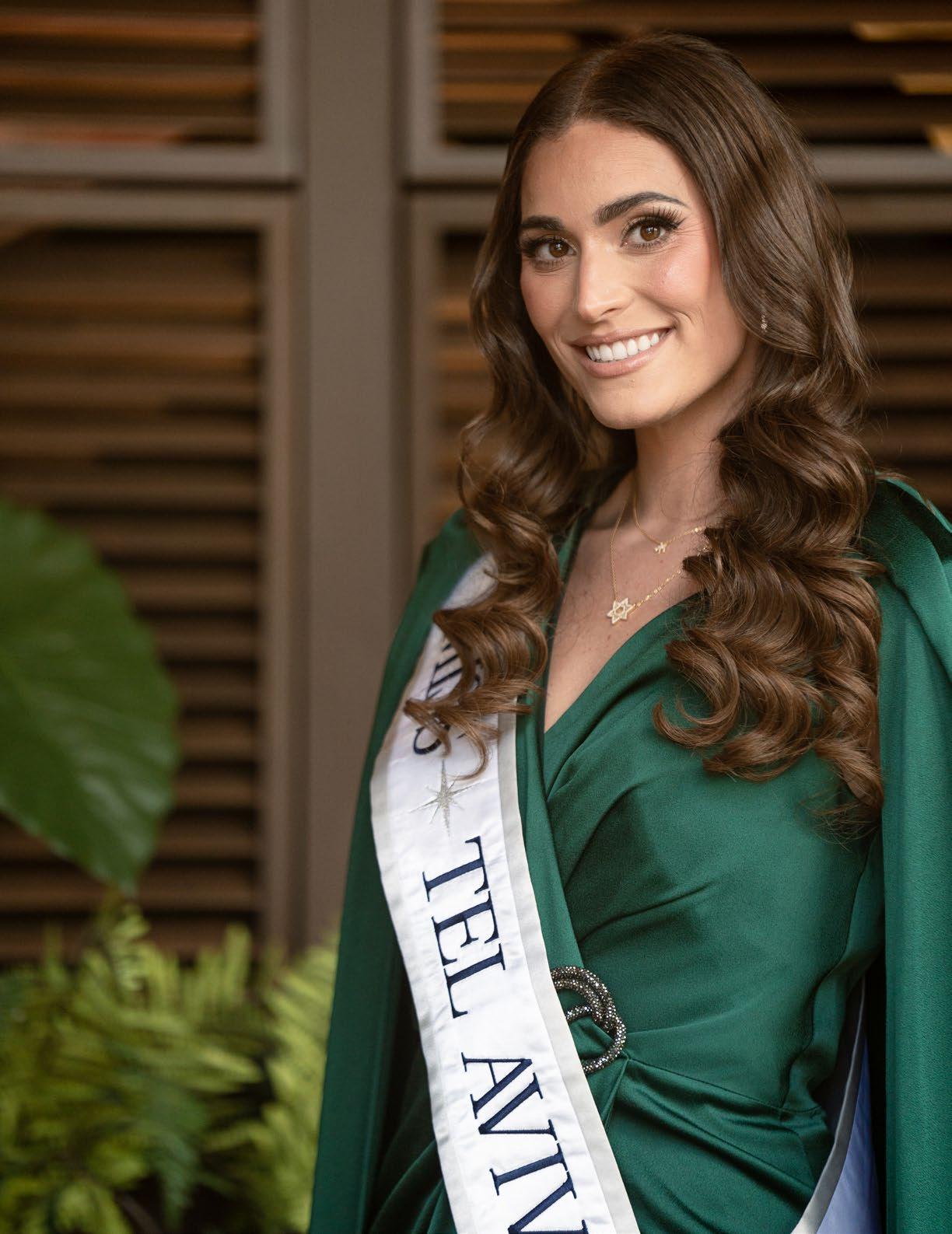
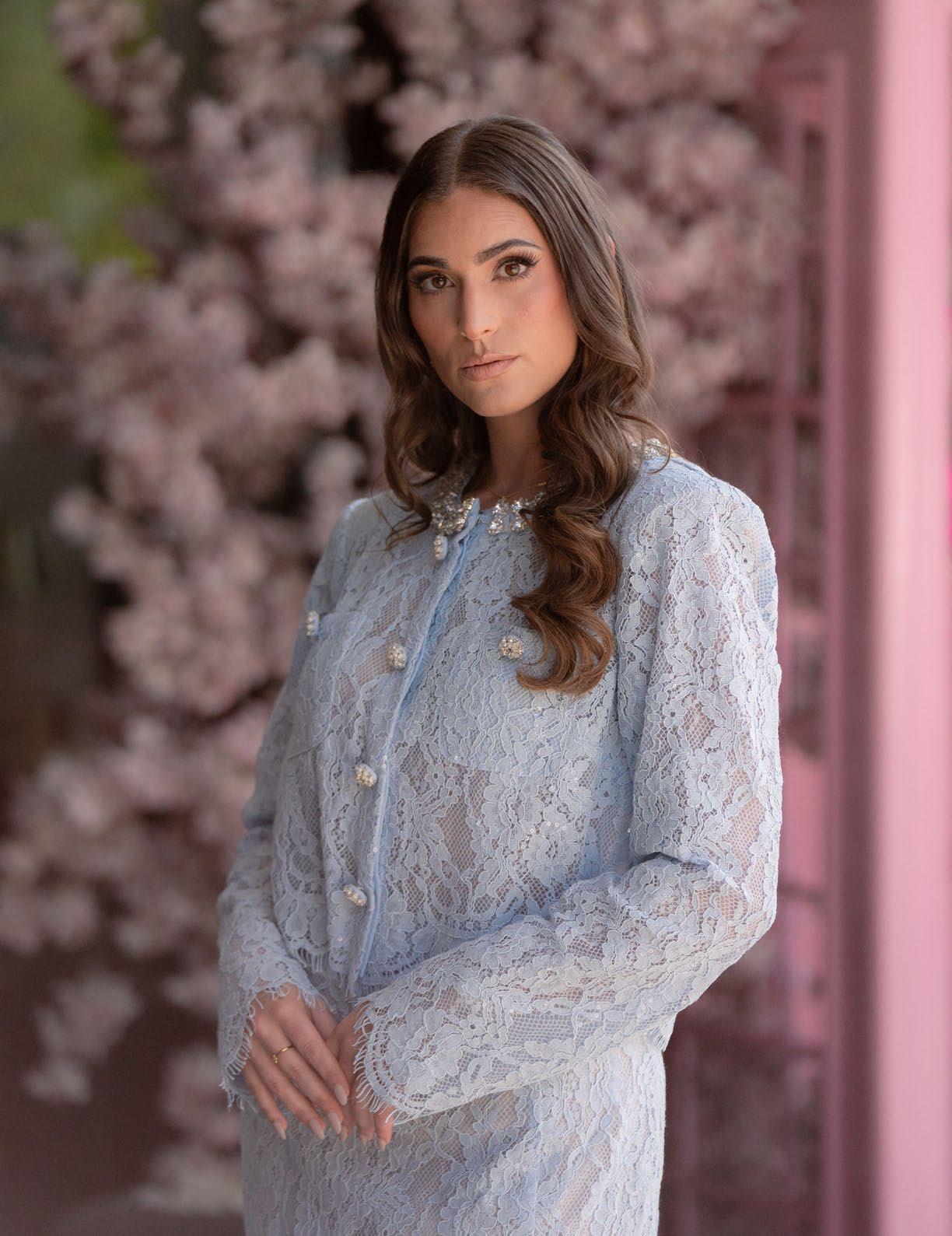
Adela Cojab didn’t set out to be a fighter. She was raised in a proud Syrian-Lebanese Jewish home, surrounded by tradition, strength, and faith. She loved acting and public speaking. She believed in justice. She dreamed of leadership. However, like many Jewish women, her clarity came when she left the comfort of her community and entered the outside world — in her case, New York University.
There, she was told her Zionism was dangerous. That her presence made others uncomfortable. That her voice, her very identity, was a threat. She could have stepped back. She could have kept quiet.
Instead, she filed a civil rights lawsuit.
She spoke. She didn’t apologize. And by doing so, she changed federal policy protecting Jewish students.
She called that journey Not Silent, Not Sorry.
It’s more than a personal motto. It’s a blueprint for what Jewish women must become.
In a world where we are told subtly or loudly that our Jewishness is too much, being silent can feel like safety. Hiding our mezuzot, editing our words, and swallowing our reactions feel safer. However, history has taught us that silence is not protection; it is surrender.
Adela understood that what was happening to her on campus was not a personal issue; it was part of a larger battle. And that meant it required a different kind of courage, the kind passed down from women like her grandmother Arlette, who once stood alone against a neo-Nazi professor in Mexico, and was ignored.
“I feel like I’m finishing her mission,” Adela says.And now, it is ours too.
It’s more than a personal motto. It’s a blueprint for what Jewish
women must become.
Hear the full story on our podcast — click here.
Follow on Instagram: @adelacojab
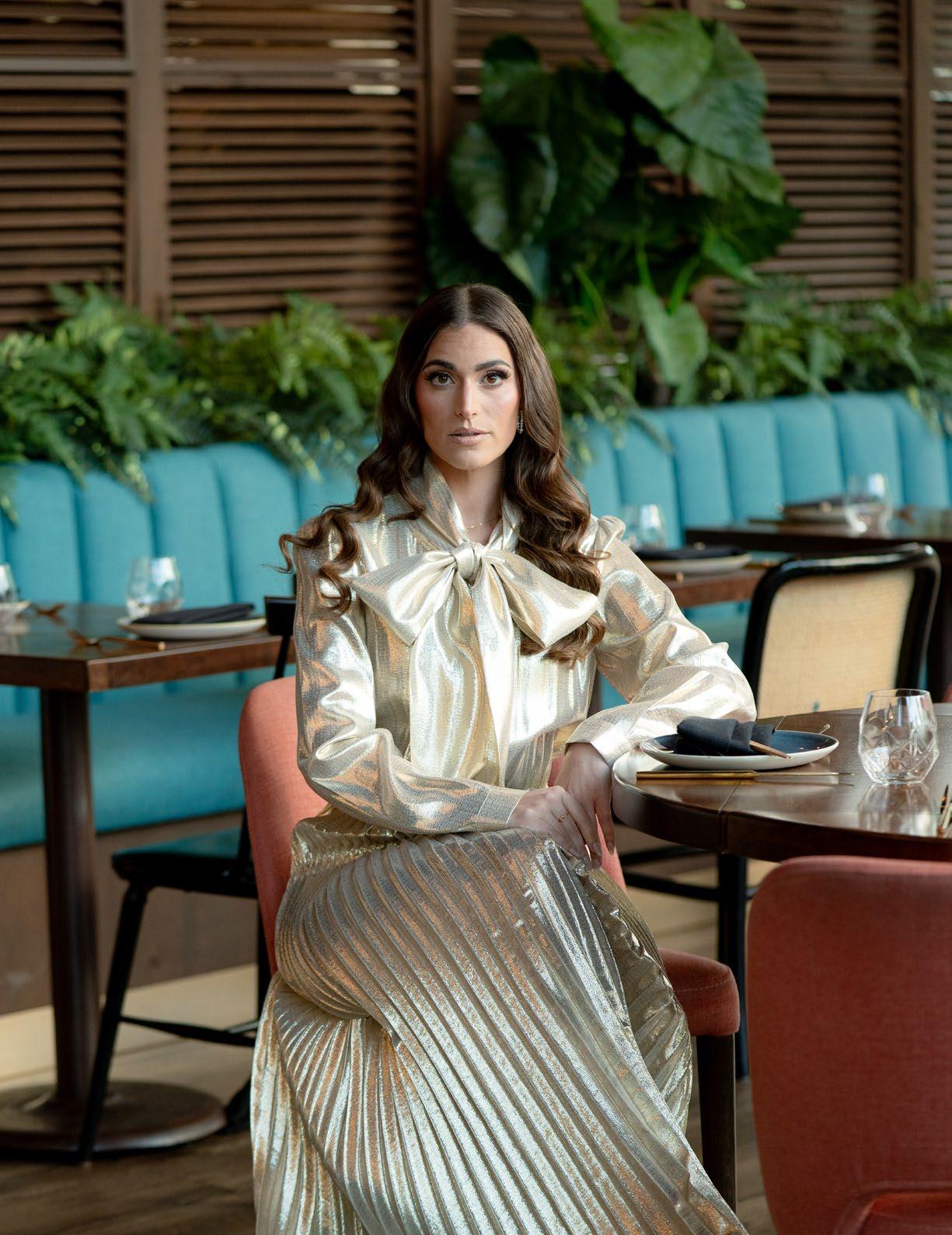
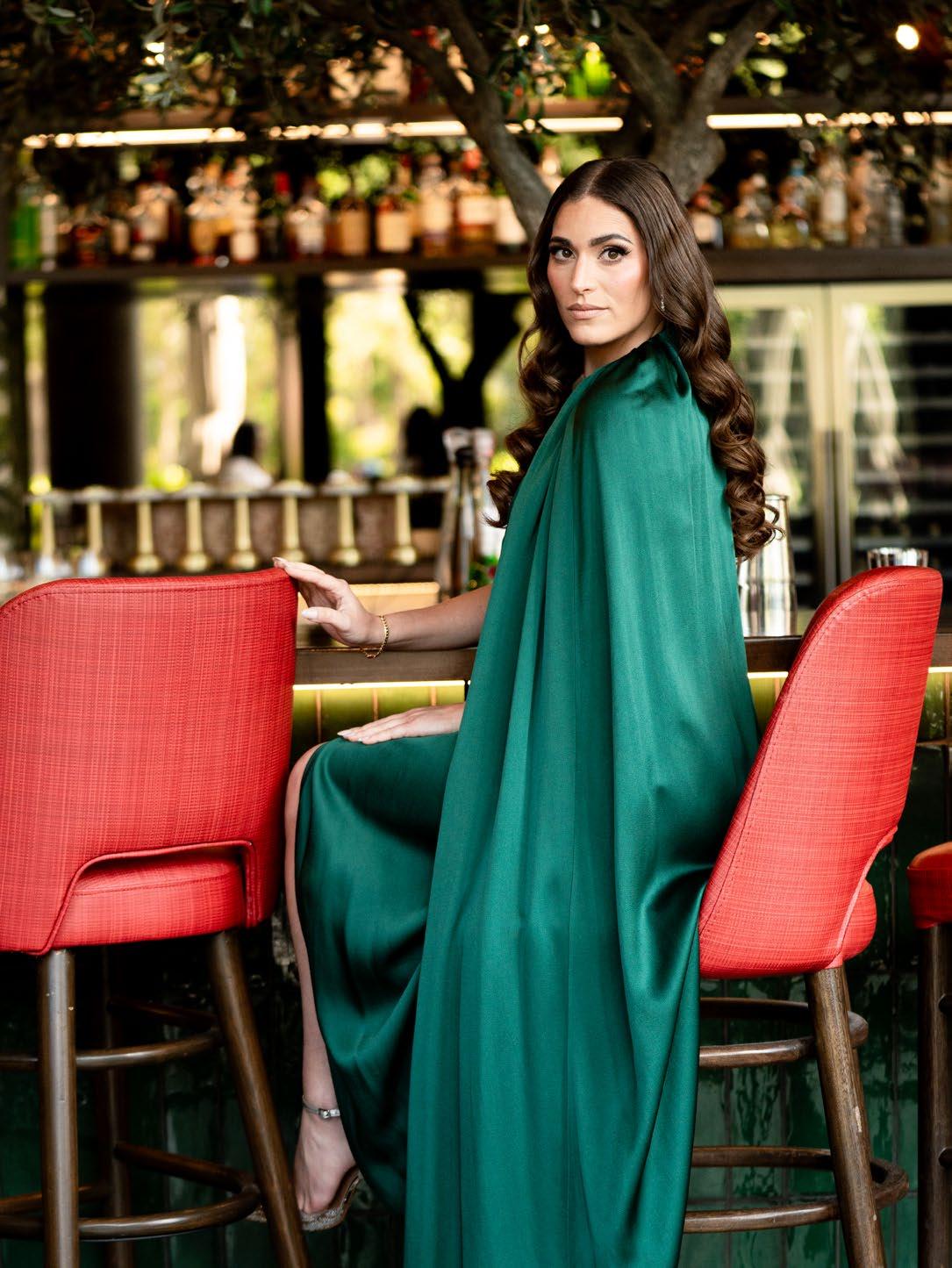
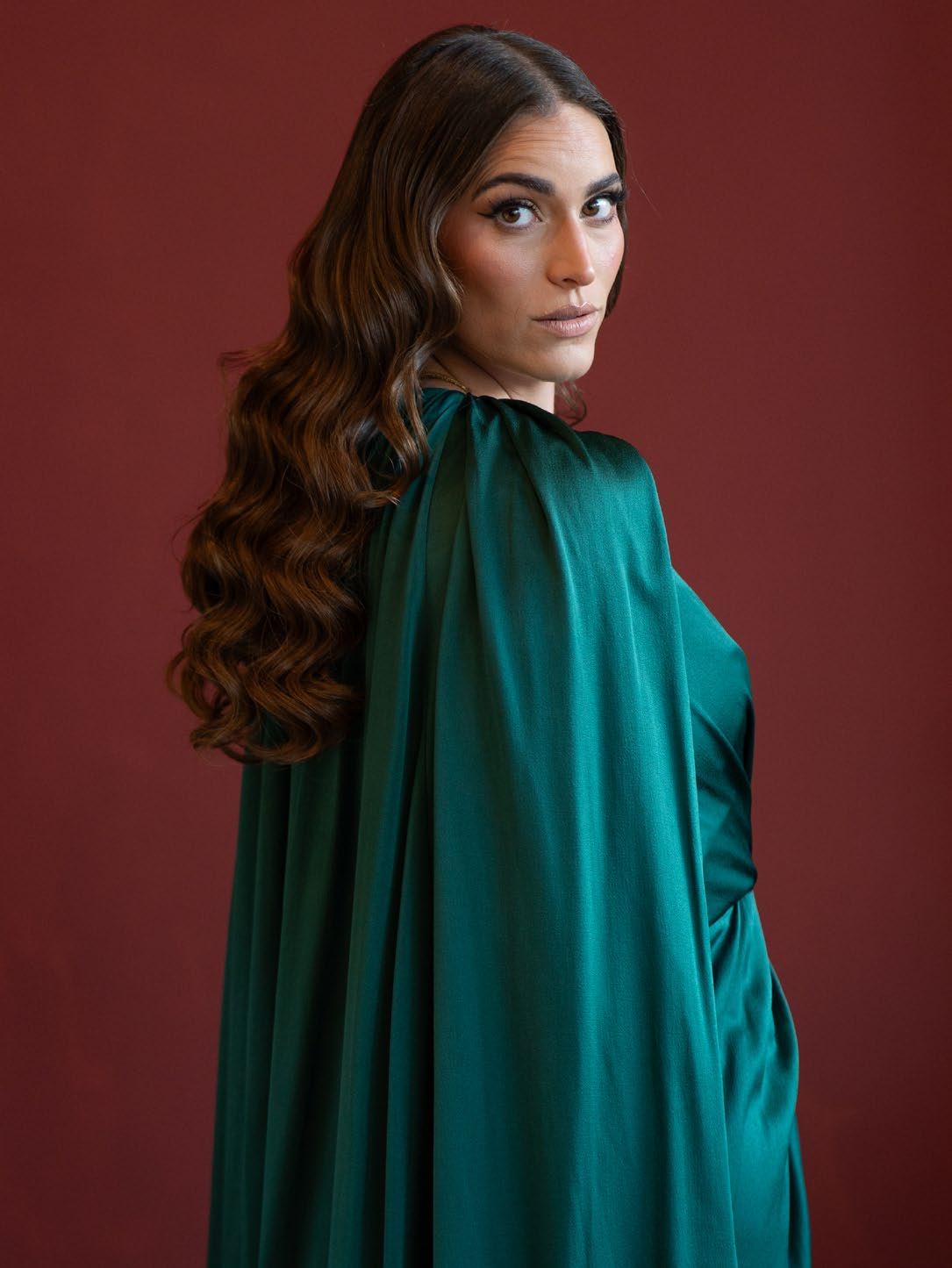
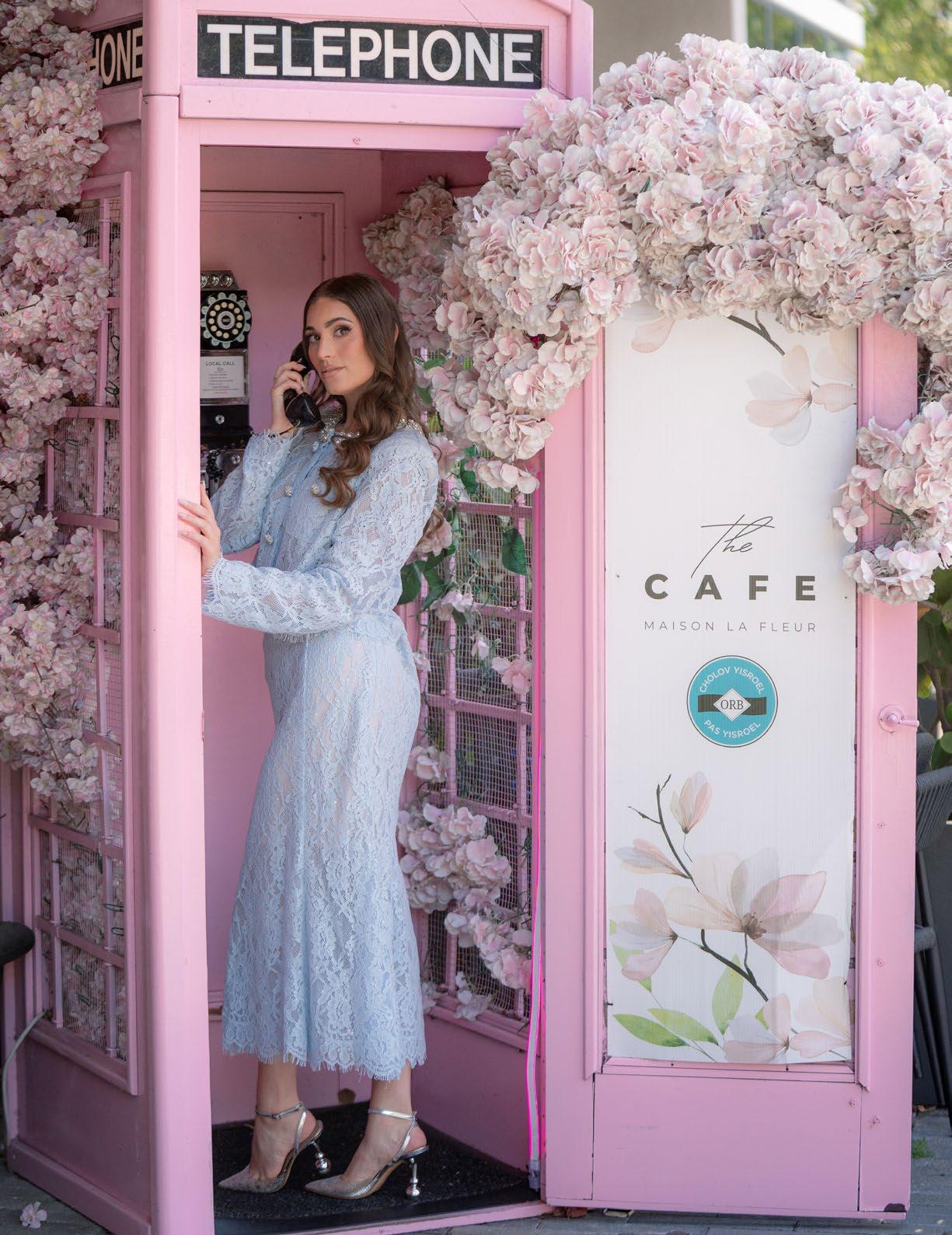
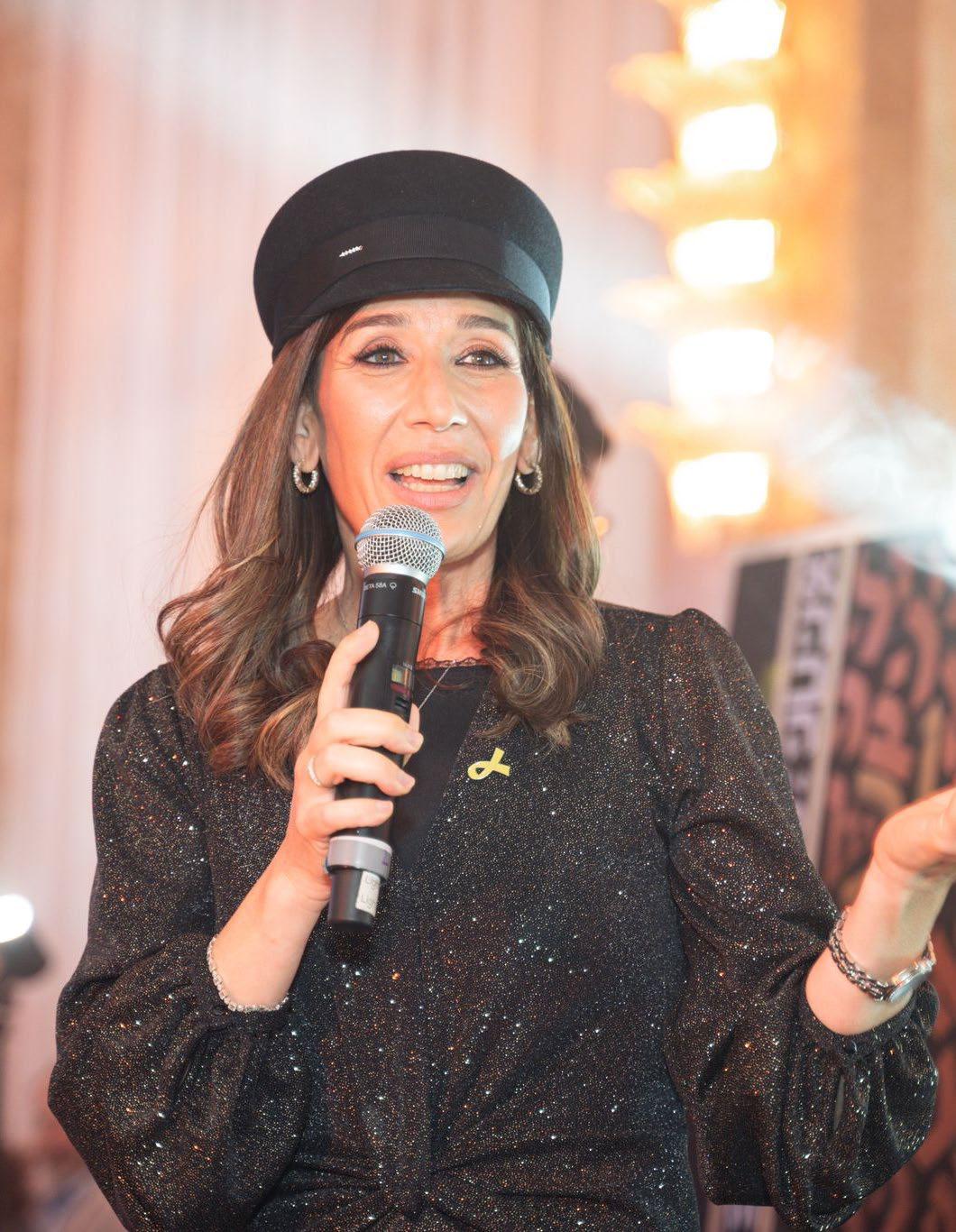
By: Lehaalot
Mariacha Drai is a central figure in the world of French-speaking Jewish women. An inspiring speaker, couples therapist, and marriage coach, she is also the founder of the Essentielles association — a women’s community where Torah is taught with passion and beauty.
Originally from France, Mariacha carries within her the two faces of Am Yisrael: a Moroccan mother and an Ashkenazi father — two legacies she weaves together with love in her mission of spiritual transmission. She embodies that rare gift of bringing people together, of building bridges between worlds, between women, between different sensitivities.
She is also the mother of a large family, and one of her sons, a soldier in Israel, served during the war to defend our people.
In her interview on the Lehaalot Podcast, Mariacha speaks with sincerity and depth about many topics, which I encourage you to discover on YouTube or Spotify. Among them is a beautiful reflection on the power of inner listening, which we chose to highlight and share with you here.
She opens up about an experience that is both deeply personal and universally relevant: the journey of reconnecting to one’s own voice — and to Hashem’s.
The article that follows is inspired by that conversation. Through the lens of the month of Elul, it invites us to discover a new dimension of the words Shema Yisrael. You know how, in post-war Europe, some rabbanim would enter orphanages and monasteries crying Shema Yisrael, in an attempt to awaken the souls of hidden Jewish children? Mariacha reminds us that this prayer still has the power, today,
There are times, in the midst of a busy life, when a quiet call arises. A kind of gentle urgency — nearly invisible to others, but impossible to ignore.
Mariacha Drai heard that call precisely when she was giving her all to others — her students, her community, her family. A voice within began to whisper that something was missing. Not in what she was doing, but in what she had stopped listening to. So she began to pause — every day. A few stolen moments from the rush of the world. A space with no screen, no phone. Just a notebook, a pen, and a place for truth to emerge.
This regular meeting wasn’t a mental exercise or psychological analysis. It wasn’t about thinking or reflecting. It was simply about listening. Opening a door to what longed to rise up from within.
And slowly, a phrase came to her — as if from another dimension: Shema Yisrael. Those sacred words, so often recited by rote, arrived this time as an intimate revelation. Listen, Israel. But not a call turned outward. A call turned inward.
Listen to what lies beneath the words.
Listen to what has been forgotten. Listen to what still vibrates inside.
In this sacred space, Mariacha rediscovered that the Shema is not only a declaration of faith or a pillar of Judaism. It is a reminder: what is essential is not found in noise, but in presence.
To truly listen is to find the path back to inner unity. To stop fragmenting, and return to the One.
What Mariacha shares is not a method, nor a rigid practice. It is a direction of the heart.
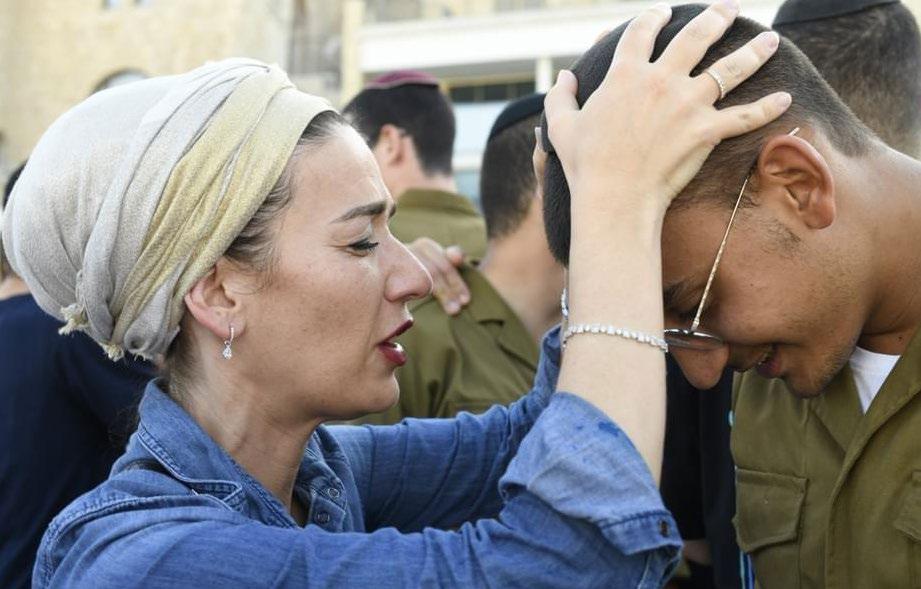
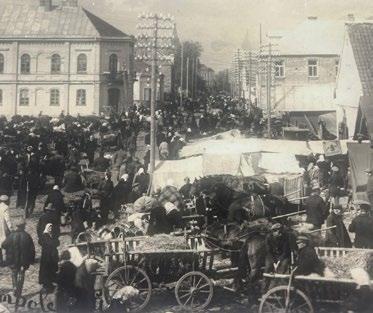
She invites every woman to give herself permission to create a quiet sanctuary in her day. It might be a table, a chair, a candle, a warm coffee. A simple gesture that says: I am here. I am listening to myself.
Words may come — or not. What matters is the listening.
For in that silence, we sometimes hear, for the first time, prayers we never dared to utter. Not always requests. Sometimes, tears. Or longing. Or simply the desire to
return to the Source.
In that face-to-face with the self, Shema Yisrael becomes a lifeline — a red thread. It connects us to our soul, to our people, to our God. It recenters us. Gathers our scattered pieces. Reminds us that we are never alone.
This practice takes on even more strength in the month of Elul.
The month that precedes Rosh Hashanah is not one of judgment — it is a time of return. A tender, gentle, honest return. Tradition teaches that in Elul, “the King is in the field” — accessible, close, and listening.
It is the perfect moment to reconnect with our deepest voice — the one that doesn’t seek to impress or prove, but simply says: I am Yours.
In the momentum of Elul, these inner rendezvous take on their full meaning. It’s not about spiritual performance. It’s about presence. About truth. About connection.
And what if this year, instead of multiplying resolutions, we simply chose to listen?
To listen to that voice that has always known why we are here.
The one that whispers, again and again: Shema Yisrael.
Maybe you’re reading these lines with a quiet sigh. With that fuzzy desire to slow down. Maybe you haven’t written in a long time. Or maybe you’ve never dared ask the questions your soul whispers to you in the night.
Start small.
A notebook. One sentence a day.
One minute of silence. One real word. And then… let it rise. Let it unfold.
You won’t be alone in that moment. You’ll discover, like Mariacha, that in the depths of silence, there’s a voice that has always been waiting: your own.
By, Lehaalot Magazine
Hear the full story on our podcast — click here.
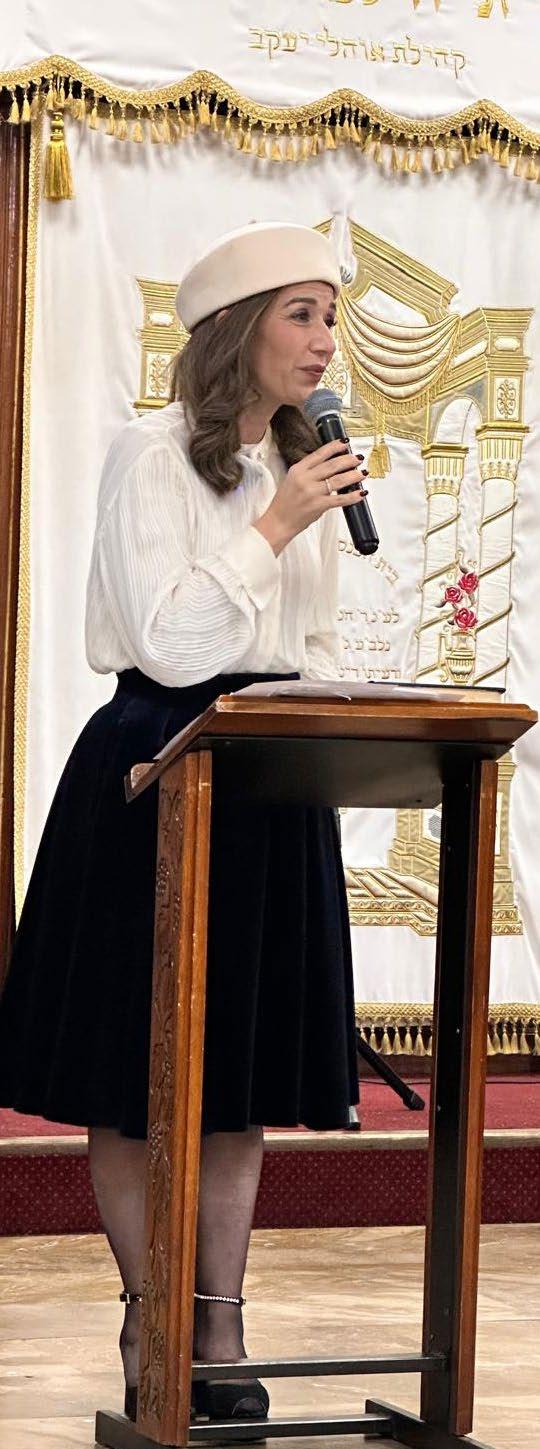
by: Lehaalot
Each year at the Rosh Hashanah table, Jewish families gather to recite the Yehi Ratzon blessings over symbolic foods — the simanim. These foods carry deep spiritual messages for the new year. In Israel, a country where ancient tradition meets vibrant modern cuisine, chefs and home cooks alike have reimagined the simanim with fresh, flavorful Israeli ingredients.
Here is our Lehaalot Magazine selection of seven simanim, their traditional meaning, and a modern Israeli-inspired recipe for each:
“May it be Your will… that the harsh decrees be torn up.”
On Rosh Hashanah, carrots are eaten as a siman because of gzar dinaynu—the idea of “cutting off” our enemies. This symbolizes a hope that any decrees of harm will be removed in the new year.
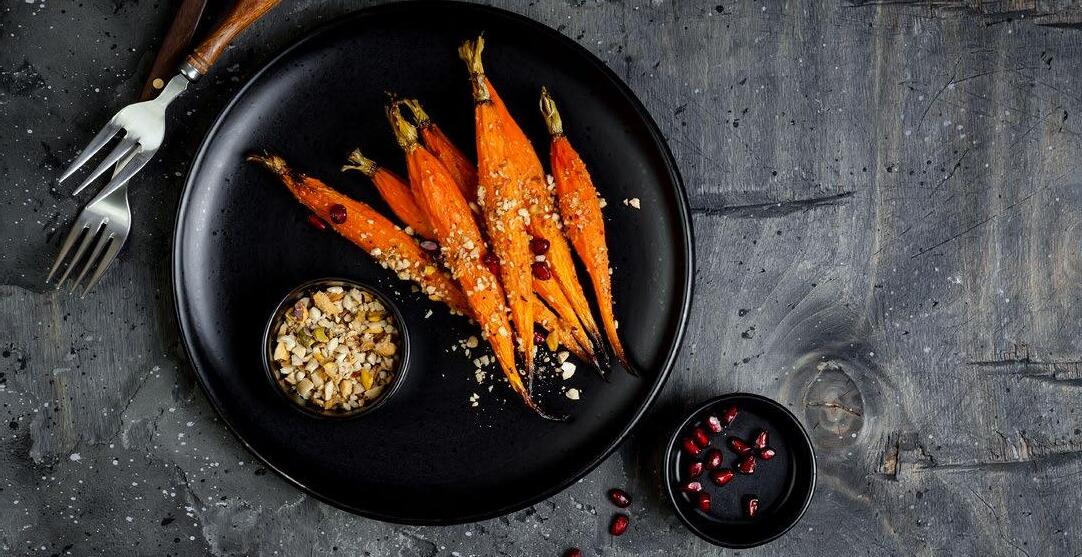
• 5–6 carrots, peeled and cut into sticks or rounds
• 1 tbsp olive oil
• 1 tbsp honey
• 6–8 pitted Medjool dates, chopped
• 1/3 cup almonds, toasted with za’atar
• Zest of ½ lemon
• Salt and pepper, to taste
• Optional: chopped parsley
1. Preheat oven to 200°C (400°F).
2. Toss carrots with olive oil, honey, salt and pepper.Roast for 25–30 minutes until golden and soft.
3. Meanwhile, toast almonds in a dry pan with a sprinkle of za’atar until fragrant.
4. Combine roasted carrots, chopped dates, lemon zest, and almonds.
5. Garnish with fresh parsley and serve warm or at room temperature.
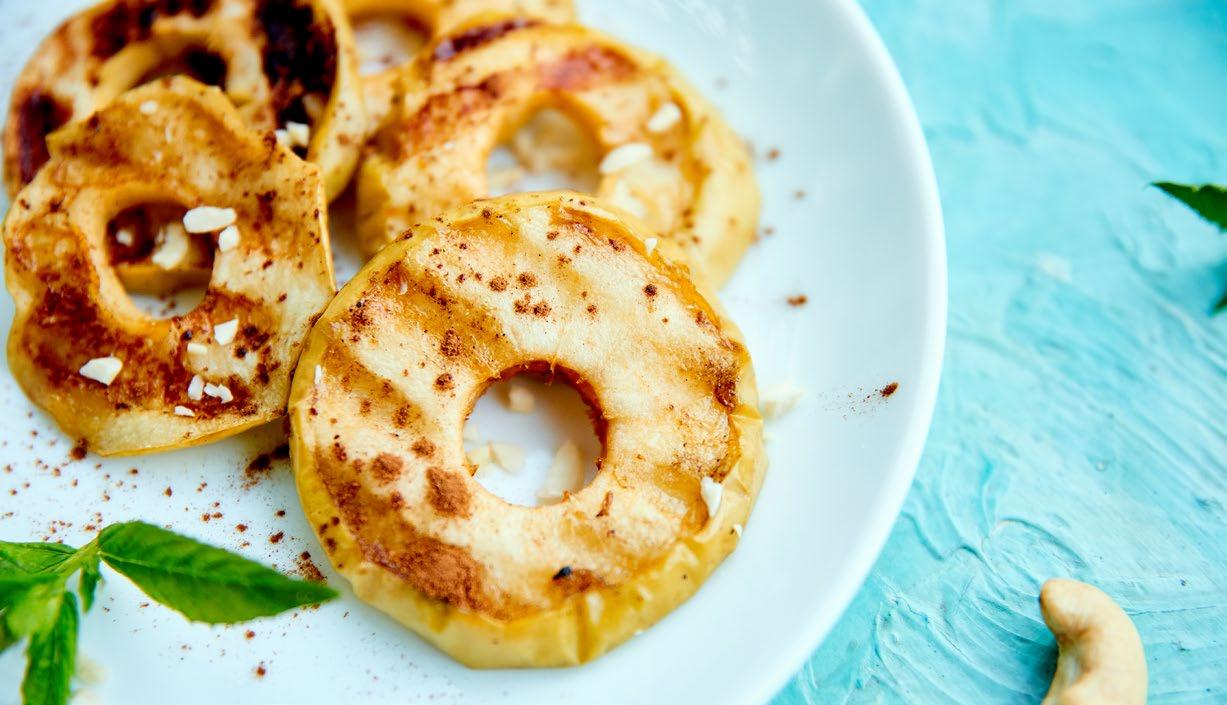
“May it be Your will to renew for us a good and sweet year.”
On Rosh Hashanah, we eat an apple dipped in honey as a sign of a sweet new year. The apple represents the world or creation, and the honey symbolizes sweetness and blessings we hope to experience in the year ahead.
• 2 apples (1 green, 1 red), sliced into ½-inch rings
• 1 tsp cinnamon
• 2 tsp honey
• 2 tbsp tahini
• Pinch of sea salt
• Optional: chopped walnuts or sesame (depending on custom)
1.Lightly brush apple slices with olive oil and grill for 2–3 minutes per side, or roast in oven until lightly caramelized.
2.In a bowl, whisk tahini, honey, cinnamon, and a pinch of salt until smooth.
3.Drizzle sauce over warm apple slices.
4.Top with optional nuts or sesame and serve immediately.
“May it be Your will that our enemies be cut off.”
On Rosh Hashanah, we eat leeks as a siman because the word karti (Hebrew for leek) sounds like yikartu, meaning “may our enemies be cut off.” Similarly to the carrot, it also symbolizes a hope that any decrees of harm will be removed in the new year.
• 3 large leeks, thinly sliced
• 2 eggs
• ½ cup matzah meal
• 1 garlic clove, minced
• Fresh parsley
• Salt & pepper
• Olive oil for frying
• Sauce: tahini paste, lemon juice, water, chopped dill
Sauté leeks until soft. Mix with eggs, matzah meal, garlic, herbs. Shape into patties and fry. Serve with herbed tahini sauce (tahini + lemon + dill).
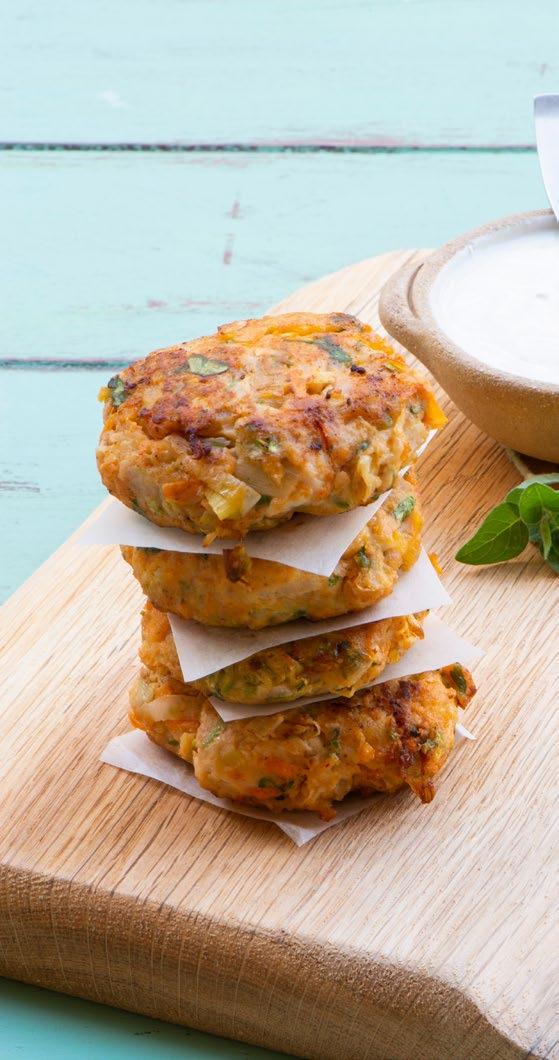
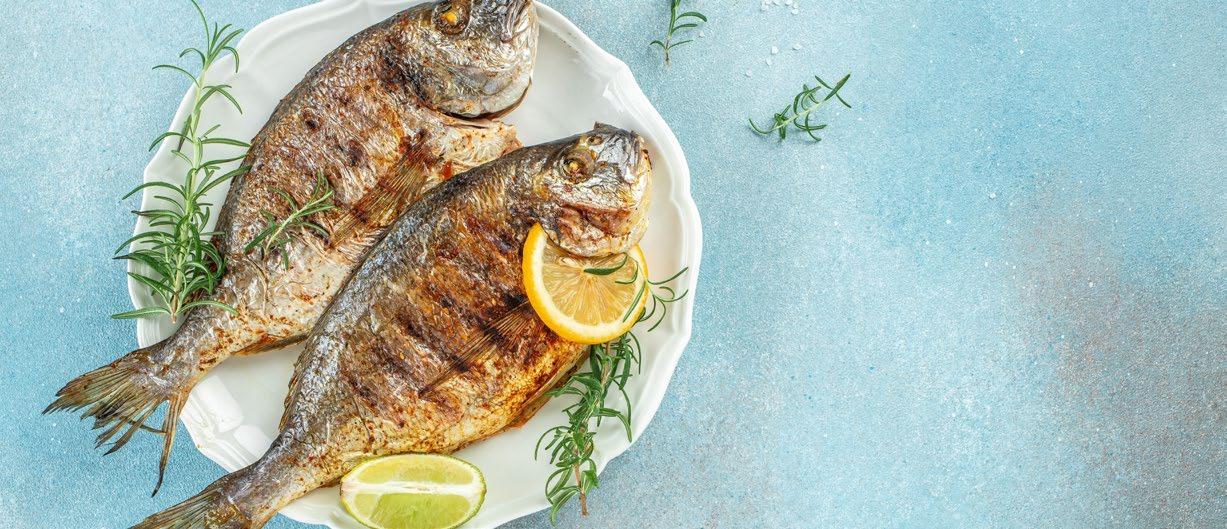
“May
we be as the head and not the tail.”
On Rosh Hashanah, eating the head of a fish is a sign for being “like the head and not the tail” in the coming year. It symbolizes leadership, success, and moving forward rather than being left behind.
Dish: Whole Roasted Sea Bream with Za’atar & Lemon
• 1–2 whole sea bream, cleaned
• Lemon slices, garlic, fresh herbs
• Olive oil, za’atar, salt
Stuff fish with lemon and garlic, rub with za’atar and oil. Roast at 190°C (375°F) for 25–30 min. Serve whole as a centerpiece.
“May we be filled with merits like a pomegranate is filled with seeds.”
On Rosh Hashanah, we eat pomegranates because they are said to have 613 seeds, representing the 613 mitzvot. They symbolize a wish for increased merits and a fruitful year ahead.

• 1 cup cooked quinoa
• ½ cup pomegranate seeds
• Mint, parsley, scallions previously checked
• Toasted pine nuts
• Lemon juice, olive oil
Cook the quinoa. Mix with herbs, pomegranate, nuts, and dressing. Serve chilled or room temp.
“May our adversaries be removed.”
On Rosh Hashanah, we eat beets as a sign and say sheyisalku oyvenu—“may our enemies be removed.” This expresses the hope that any harm or obstacles will be taken away in the new year.
Beet Slices with truffle oil & Pistachio
• 2 roasted beets, peeled and sliced
• Drizzle with truffle oil
• Drizzle with balsamic vinegar
• Lemon juice, crushed pistachios, olive oil
Layer beet slices with tahini drizzle. Top with sumac, pistachios, olive oil.
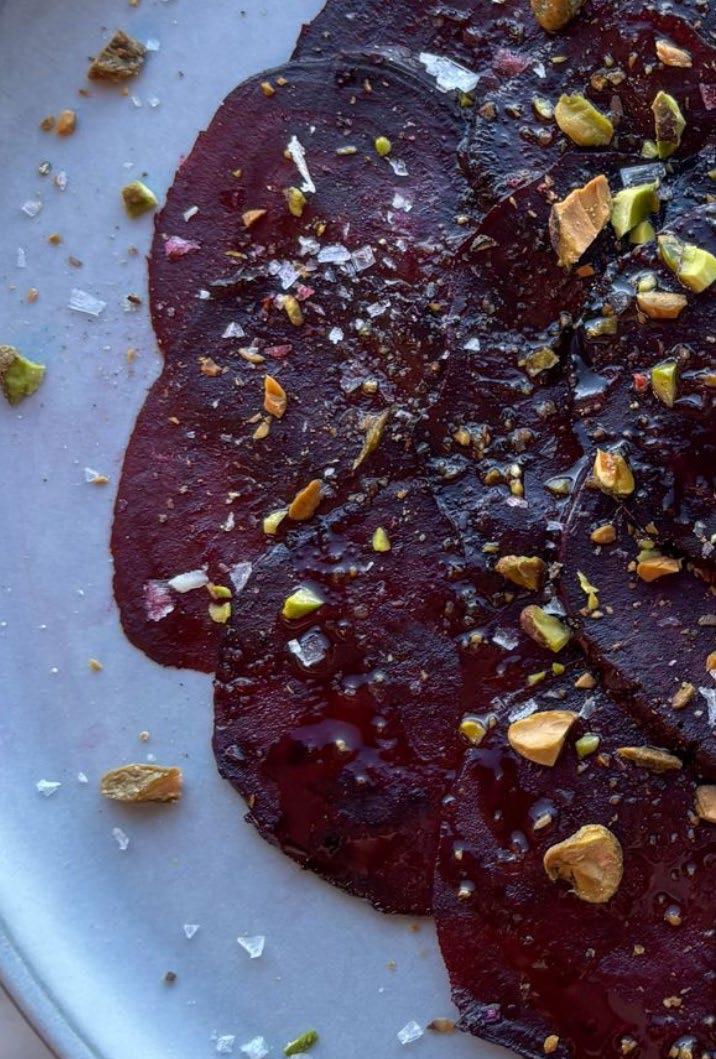
“May our merits increase.”
On Rosh Hashanah, some eat black-eyed peas as a sign of prosperity and blessings in the coming year. Their round shape symbolizes coins, representing financial growth and abundance.
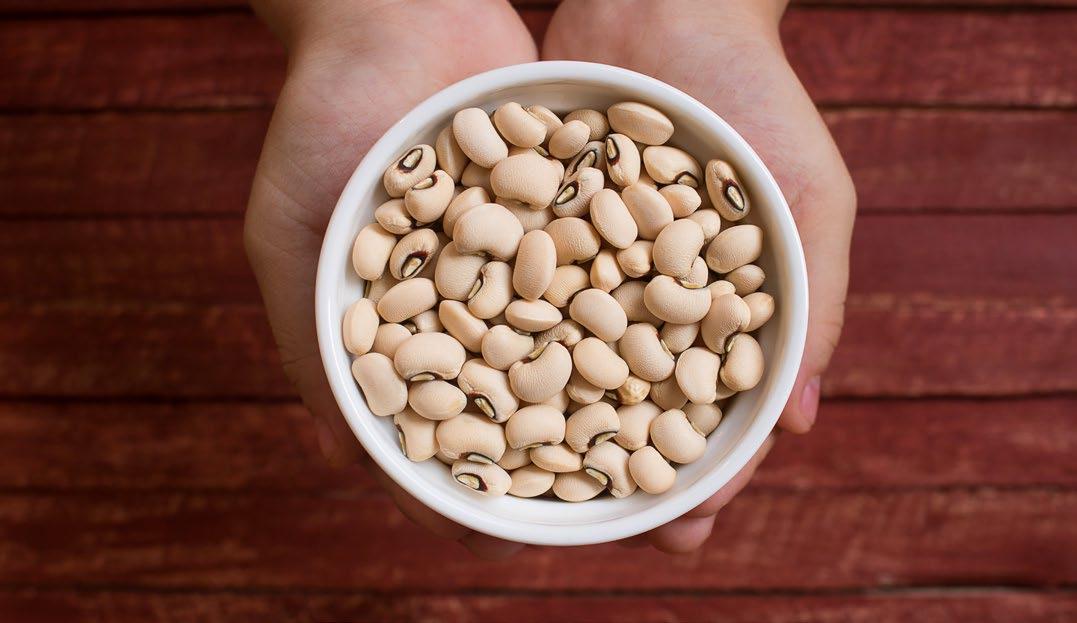
• 1½ cups cooked black-eyed peas
• Cherry tomatoes, halved
• Sautéed garlic
• Fresh coriander
• Lemon juice, olive oil
Sauté tomatoes with garlic. Add peas, warm through, season, and garnish with chopped coriander.
These simanim are more than symbolic bites; they are vessels of kavanah, carrying our deepest hopes for the new year. From the hills of Jerusalem to the kitchens of Tel Aviv, these updated flavors help us connect to tradition with freshness, joy, and purpose.
May your table be filled with blessings, and your year begin with light, clarity, and sweetness.
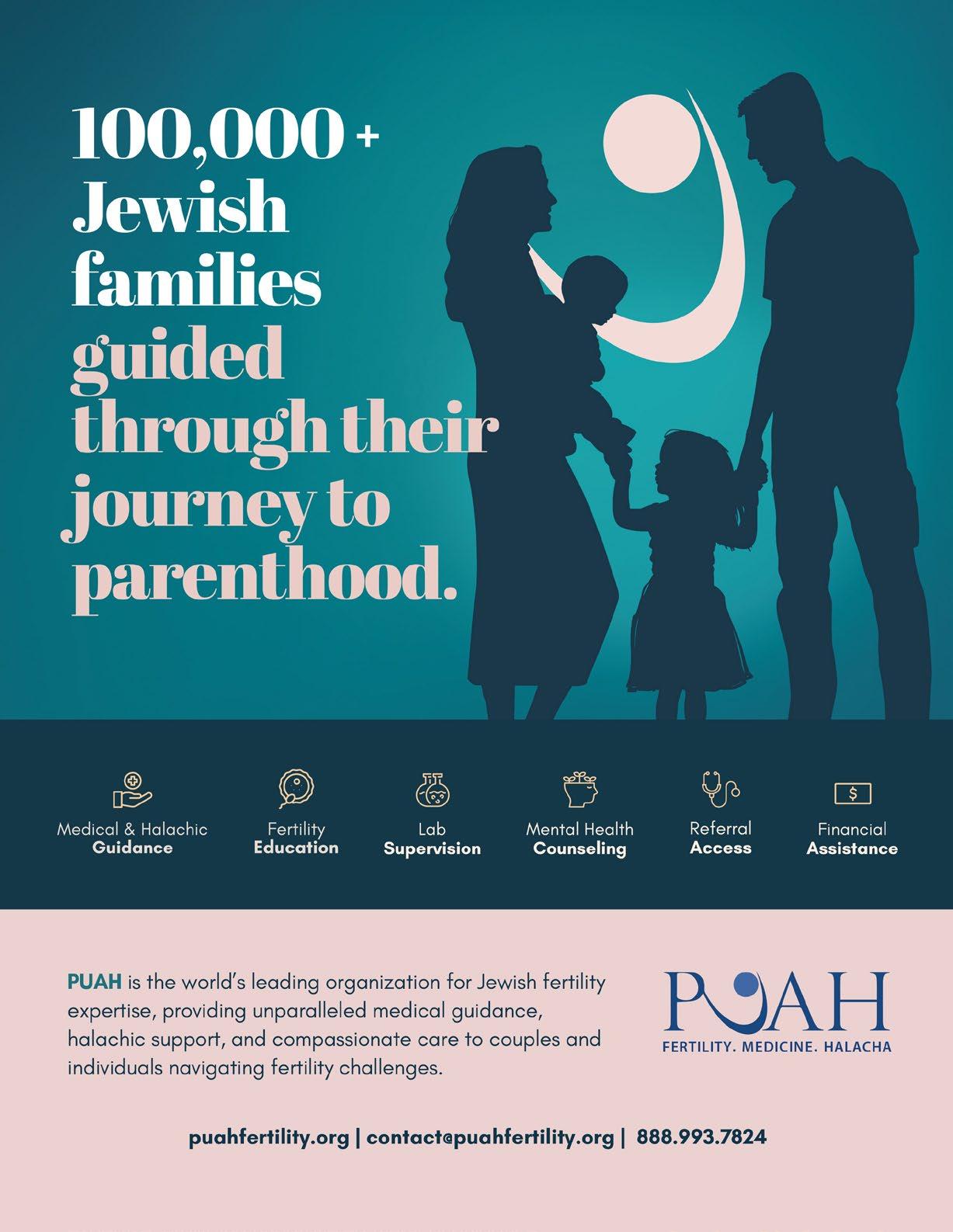
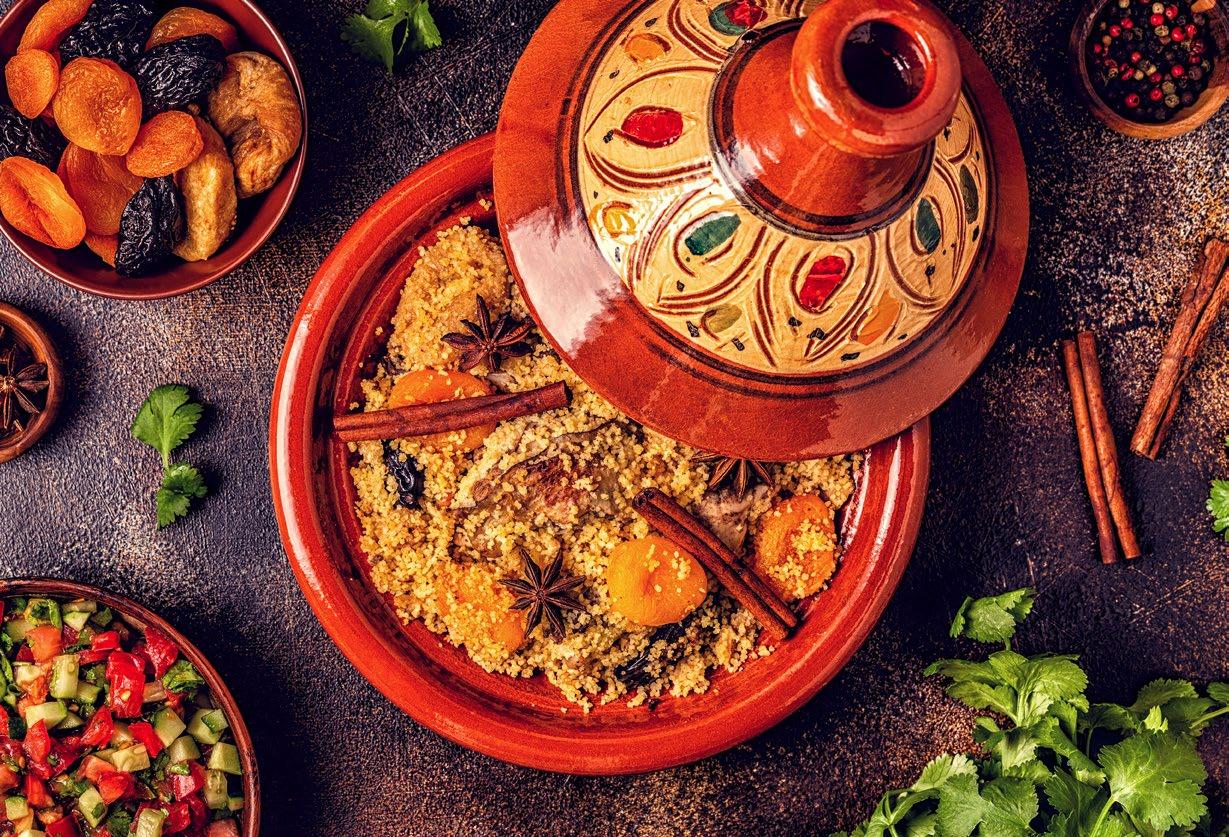
by: Lehaalot
IIn Moroccan Jewish homes, Rosh Hashanah is more than a celebration of sweetness — it is a time of awe, reflection, and inner renewal. At the start of the year, we symbolically stand before the King, taking stock of our lives, praying for life, and hoping for true transformation.
Around the table, every dish becomes an offering of intention, every flavor a way to plant hope in daily life. Among the most cherished, lamb tagine with dried fruits symbolizes patience, abundance, and our connection to generations past, helping us enter the new year with heart, clarity, and light.
• ●4 tablespoons olive oil
• 3 onions, thinly sliced
• 2.4 kg (5.3 lbs) lamb shoulder, cut into chunks
• ½ bunch fresh cilantro (well checked)
• 2 teaspoons turmeric
• 2 teaspoons ground ginger
• 1 teaspoon sesame seeds
• 2 teaspoons ground cinnamon
• 2 teaspoons honey
• 200 g (7 oz) dried apricots (checked)
• 150 g (5 oz) dried prunes (checked)
• 200 g (7 oz) blanched almonds (Note: Some avoid eating almonds or nuts on Rosh Hashanah because the Hebrew word for “nut” shares the same numerical value as the word for “sin.”)
• 2 cups water or chicken broth
• Salt and pepper, to taste
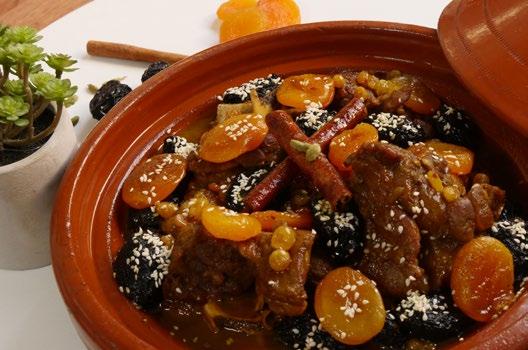
1. PREPARE THE AROMATIC BASE:
In a large sauté pan (or oven-safe tagine pot), heat the olive oil over medium heat. Add the sliced onions and sauté until soft and translucent.
2. ADD THE SPICES:
Stir in the turmeric, ginger, cinnamon, and sesame seeds. Cook for 1 minute, stirring with a wooden spoon to coat the onions with flavor.
3. BROWN THE MEAT:
Add the lamb pieces to the pan. Sear on all sides until golden and infused with the aromatic mixture.
4. SIMMER GENTLY:
Pour in the water or broth, add salt, pepper, and honey. Cover and simmer over medium heat for 1 hour.
5.ADD THE DRIED FRUITS:
Uncover the pot, stir in the apricots and prunes. Mix gently, cover again, and transfer to the oven. Bake at 150°C (300°F) for 2 to 3 hours, until the meat is melt-in-your-mouth tender and the sauce is rich and slightly reduced.
TOAST THE ALMONDS (IF YOU FOLLOW THE CUSTOM OF EATING THEM ON ROSH HASHANAH):
Meanwhile, toast the blanched almonds in a dry skillet over medium heat for 2–3 minutes until lightly golden.
TO SERVE:
Before serving, garnish the tagine with chopped fresh cilantro and the toasted almonds. Serve hot with fine couscous or crusty bread.
This tagine, both comforting and refined, embodies the very spirit of this sacred day: the warmth of connection, the richness of our heritage, and the sweetness we wish to bring into the year ahead.
May you savor each bite as a moment of presence, surrounded by loved ones, anchored in meaning, and may the coming year be filled with blessings, light, and sweetness — for the heart and the soul.

by: Lehaalot
Some recipes offer more than flavor; they tell a story, awaken memory, and carry the essence of spiritual heritage.
This dish, born in the Tuscan port city of Livorno, is one of them. In the 17th century, Livorno welcomed thousands of Sephardic Jews fleeing the Inquisition. It was there, between exile and the sea, that this refined red mullet in tomato sauce dish was born. It is known as “triglie alla mosaica”, a subtle tribute to Moshe (Moses), a name often used in Italian culture to reference Jewish origins.
It’s said these exiles were among the first to introduce tomatoes to Italy, brought from their wanderings through Latin America. The vibrant fruit meets the noble Mediterranean fish in a dish that is simple, fresh, and rich in meaning.
In Jewish tradition, fish symbolize blessing, fertility, and Divine protection. On Rosh Hashanah, it is customary to serve a whole fish with the head, so we may recite the yehi ratzon:
“May it be your will that we be at the head and not at the tail.”
More than a tradition, it becomes a soul-statement: to begin the year with consciousness, purpose, and direction. Even in fillet form, the bright red mullet evokes vitality, dignity, and spiritual beauty; the essence of how we hope to enter the New Year.
This recipe invites you to reconnect with your roots, to sanctify the moment of eating, and to turn your table into a space of transmission, sweetness, and purpose.
• ●8 fresh red mullet fillets (ask your fishmonger to clean and debone)
• 3 tbsp extra virgin olive oil
• 2 garlic cloves, lightly crushed
• 1 small white onion, finely chopped
• 400g peeled and chopped tomatoes (or fresh cherry tomatoes)
• 1 sprig of fresh thyme (or a pinch of dried thyme)
• 1 tsp sugar
• A pinch of mild chili or black pepper
• Salt, to taste
• Chopped fresh parsley
• A squeeze of lemon (optional)
1.MAKE THE SAUCE:
In a large skillet, heat olive oil. Add garlic and let it lightly brown to infuse the oil, then remove. Add chopped onion and sauté until translucent.
2.ADD TOMATOES:
Stir in the tomatoes, sugar, thyme, salt, and mild pepper. Simmer gently for 12–15 minutes, until the sauce thickens and becomes fragrant.
3.COOK THE FISH:
Gently lay the mullet fillets skin-side up in the sauce. Cover and cook on low heat for 5–7 minutes, depending on thickness. Avoid flipping to keep the fillets intact.
4.FINISH AND SERVE:
Garnish with fresh parsley and a splash of lemon if desired. Serve hot, with rustic bread, creamy polenta, or plain rice.
Serving this dish on Rosh Hashanah feeds more than the body; it opens an inner door. A door to memory, identity, and our living connection with Torah.
May every bite be a blessing. And may this new year begin… at the head.
By: Andrea Milhem & Judy Attie
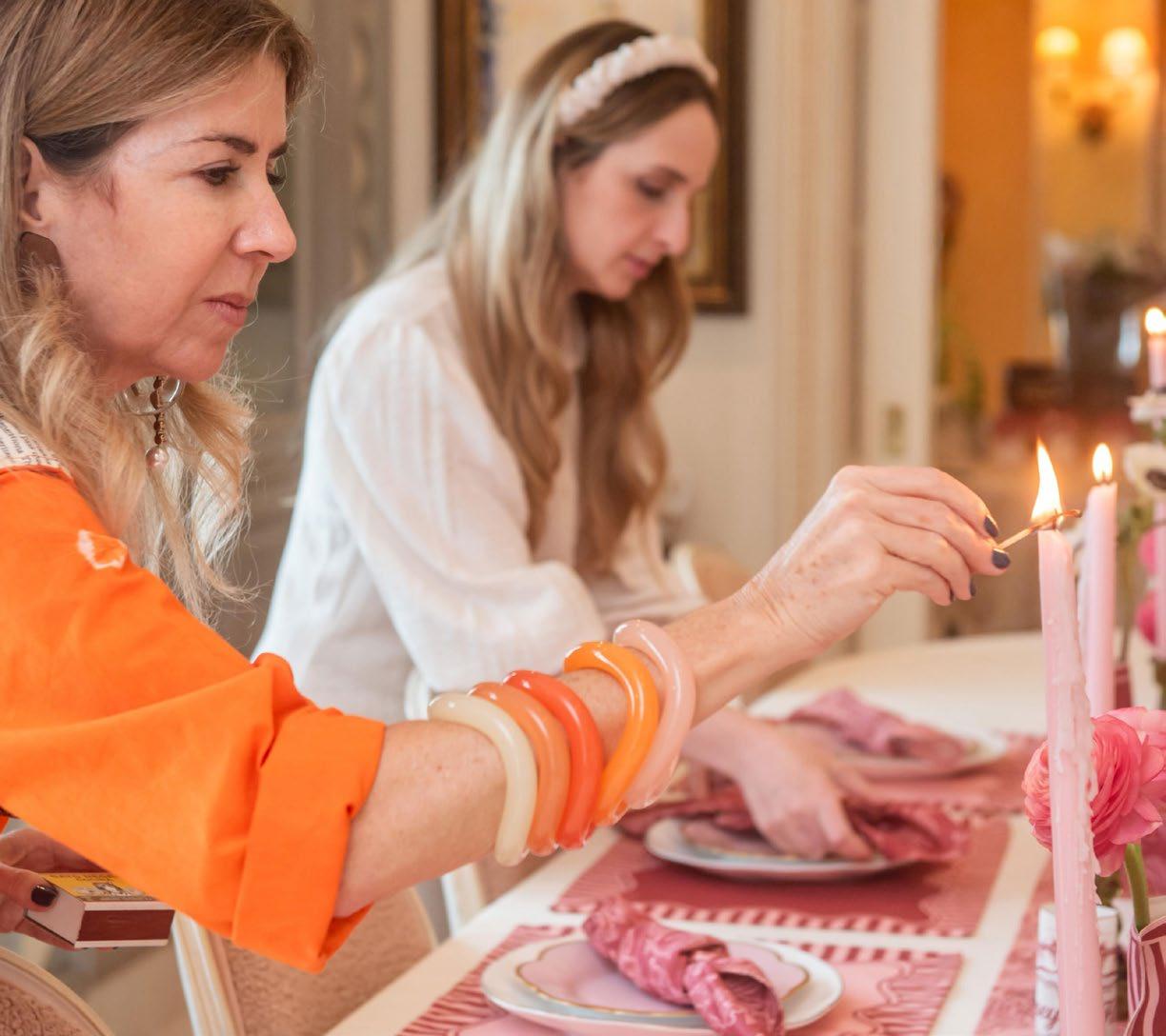
We’re Judy and Andrea—a mother and daughter-in-law duo who share more than just family ties. Judy comes from the world of fashion design, with years of experience creating garments that inspire confidence and beauty. Andrea is a trained chef with a deep love for cooking and hosting. Together, we found a shared passion around the table—literally—and that’s where Table Tales Home was born.
Our journey started with a simple gift. Judy had designed a special tablecloth for Andrea, who set it for the holidays and posted the setup online. Almost instantly, her inbox flooded with
messages: “Where is that tablecloth from?” We realized there was something here, something that touched people. A table set with care, intention, and beauty had the power to inspire. So, we created our first collection, and the rest, as they say, is history.
In our home, the table is so much more than a surface for meals. In Judaism, setting the table itself is a mitzvah. It’s a form of hachnasat orchim, welcoming guests and honoring the Divine presence at every meal. Each plate we place, each flower we arrange, is part of a bigger message: that mitzvot are not a burden. They are an honor, blessing, and pleasure to keep with joy and pride. When we beautify them, we are sending a strong message to generations to come and making it special and exciting to follow the same path.
From the beginning, we knew Table Tales Home had to be more than just pretty tablecloths. Every collection we design is practical, meaningful, and filled with soul. Our linens are spill-proof, stain-resistant, and eco-friendly. They’re also made by women, many of them heads of households, so that they can earn a dignified living while supporting their families.
We are proud Latinas, and our culture is infused into everything we do. The vibrancy, the warmth, the zest; it’s all there in the colors, textures, and spirit of each piece. We design for the modern Jewish woman, for every stage of life. From the newly married bride setting her first Shabbat table to the seasoned hostess welcoming dozens of guests with grace.
This love for hosting runs deep in our families. Andrea’s grandmother embroidered tablecloths by hand, always matching the floral centerpiece to the pattern she had stitched. Her mother never set the same table twice. Every week, a new vision, a new creation. Judy’s mother had a gift for transformation: she would turn candle vases into floral centerpieces, creating magical tablescapes that made guests gasp when they entered the room. These women taught us that beauty matters. It elevates a meal. It tells your family and your guests: you matter, this matters, this is special.
“The table sets the tone,” we always say. “A light, joyful, beautiful table invites people to relax, open up, and enjoy each other. A dull or heavy table does the opposite.”
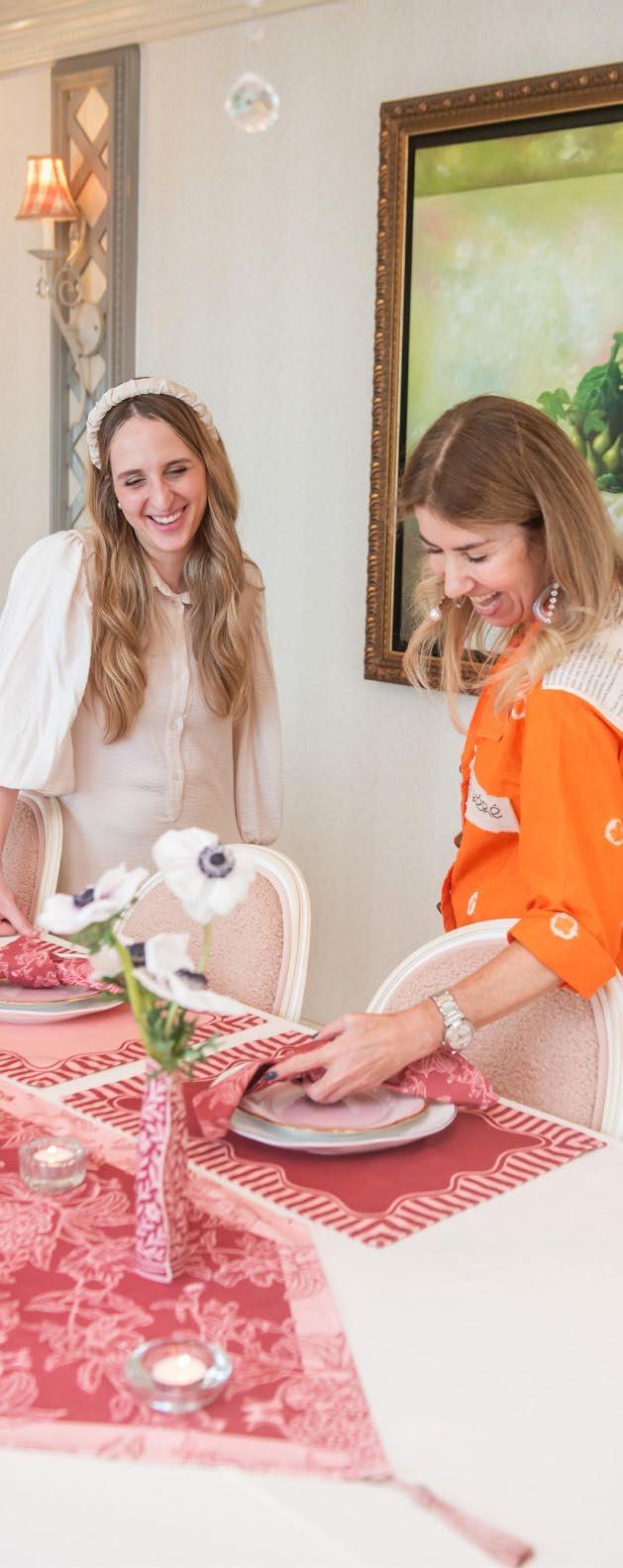
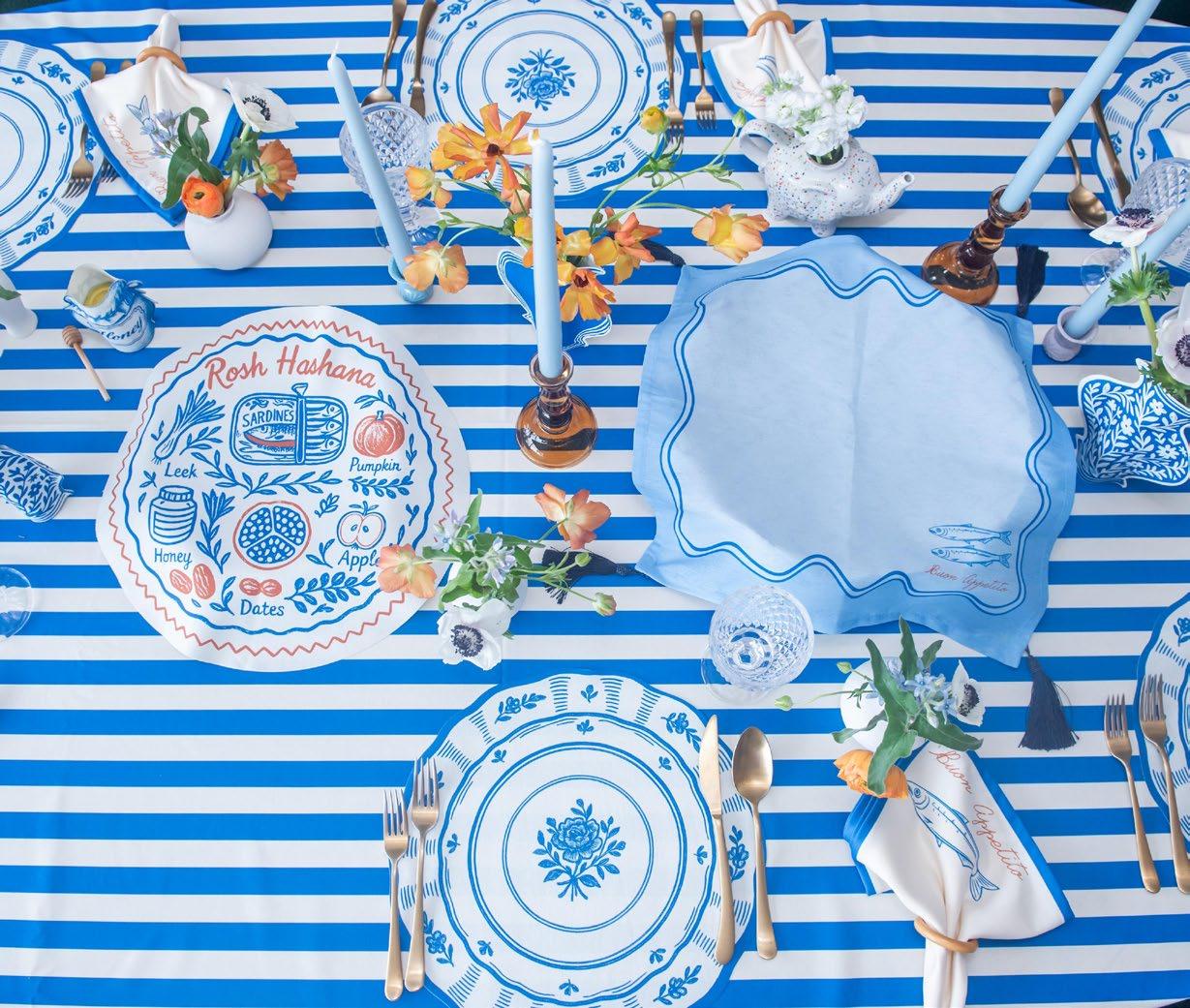
One of the questions we often get is how we balance modern design with Jewish tradition. For us, it’s not a conflict, it’s a conversation. Jewish tradition is alive, and it can live beautifully in every era. We design for different styles and ages: some women love elegance and timeless charm, others want something playful and fresh. Take our Rosh Hashanah table last year, for
example. Sardines were trending in design (yes, sardines!), and instead of ignoring the trend, we embraced it. We reimagined our Rosh Hashanah setup around the theme of fish, which are symbolic of the New Year. Suddenly, something trendy became meaningful and fun.
That’s our mission: to make tradition feel alive and beautiful, without losing what makes it sacred.
Rosh Hashanah:
For this table, we used a toile de Jouy-inspired pattern, subtly incorporating floating pomegranates throughout the design. The palette: blush pink and burgundy, feels both refined and festive. We created matching napkins, coordinated honey jars, seder plates, and challah vases. Every element was designed to let you mix and match—use everything for a full look, or choose just one accent piece.
Our Tip: You don’t need everything to make it beautiful. A simple white cloth and a printed runner or napkins in the same color family can work wonders.
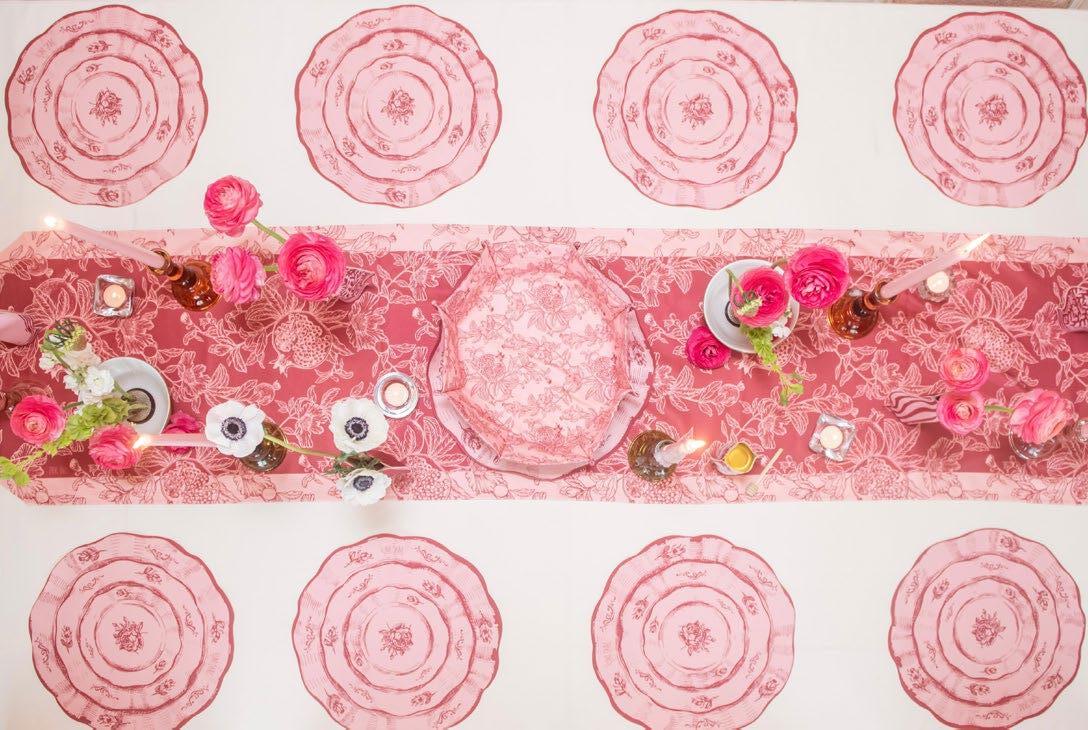
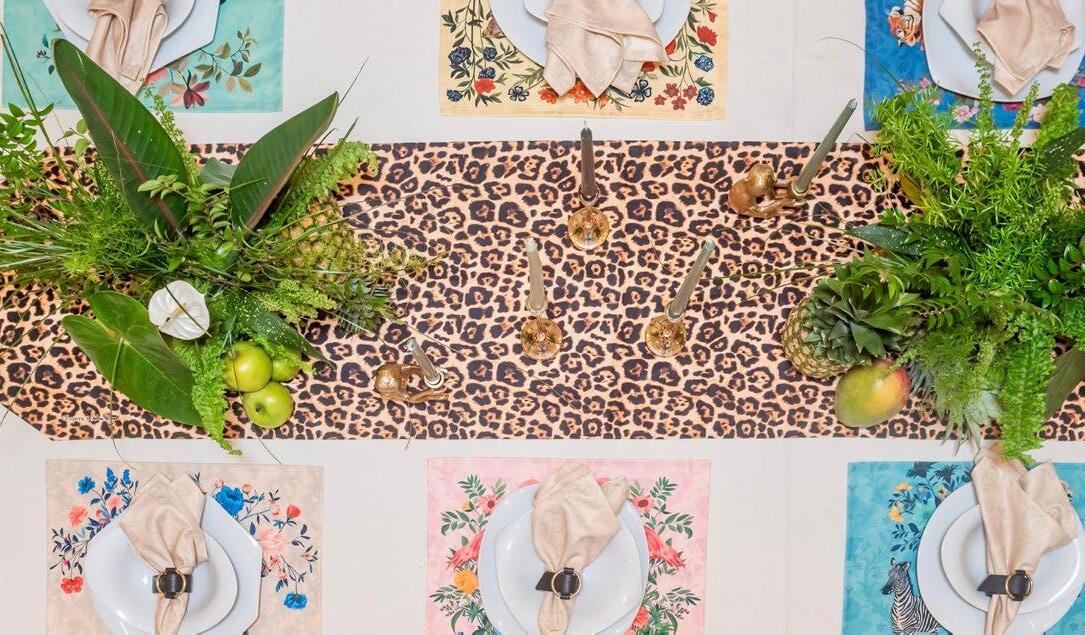
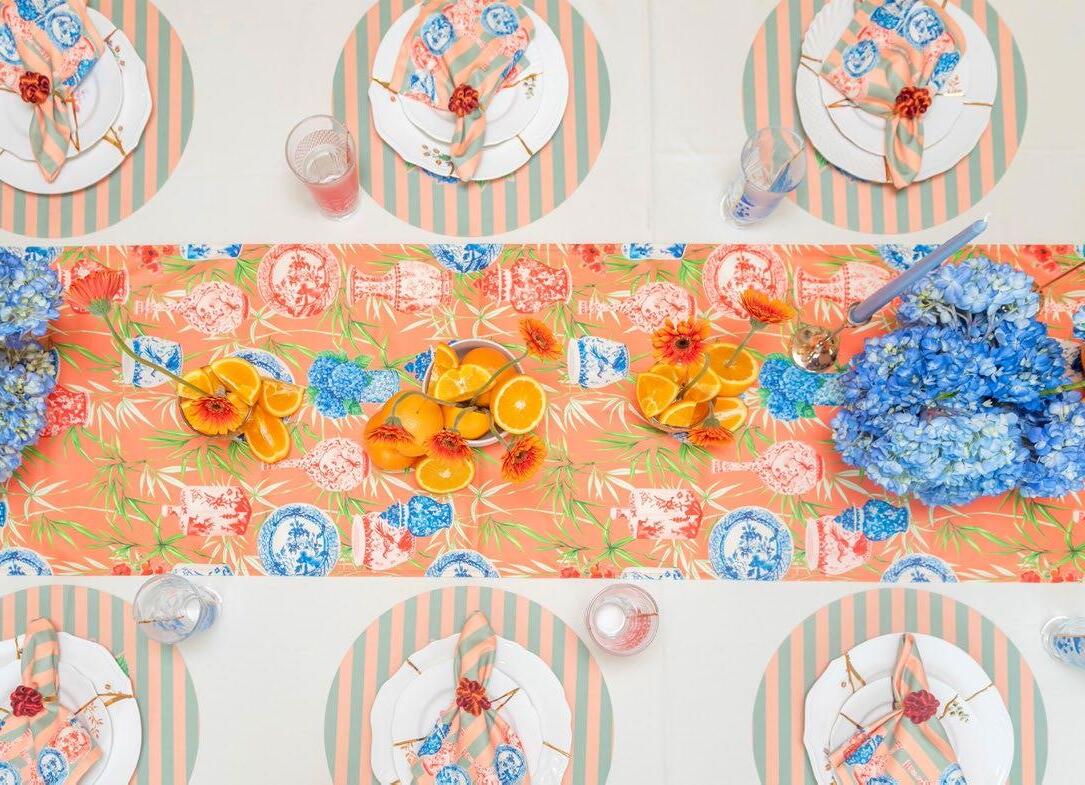
BAMBOO COLLAB ATELIER
Evoking the freshness and breezy elegance of bamboo (rooted, flexible, and graceful through every season) this table setting brings that natural beauty to the table. We pair it with the feminine charm of chinoiserie and the tenderness of hydrangeas, celebrating the vibrant palette nature provides: lush greens, serene blues, and playful touches of orange. Together, these elements create a magical outdoor setting.
Our Tip: For Sukkot, let nature inspire you. In our design, we used fresh oranges as vases for a whimsical touch. You can also give new life to everyday jars, like tomato paste jars, and fill them with flowers. Complete the look with colorful paper napkins to add warmth and joy to your table.
SAVAGE LUXE:
Who said the animal print trend is just for clothes? Here, we want to bring sassiness and the tropical together in one piece, drawing inspiration from this luxurious scene. We can play with the greenery of our backyard, bringing everyday luxe to our table. Our placemats, with different color backgrounds, add uniqueness and become a conversation piece.
Our Tip: Don’t be afraid to mix and match. Even if you love a specific pattern and can’t find it as a tablecloth, visit your local fabric store, pick up a piece, and turn it into a runner. Then choose a minimalistic color and use it to add strength to your design, making it the focal point of your table.
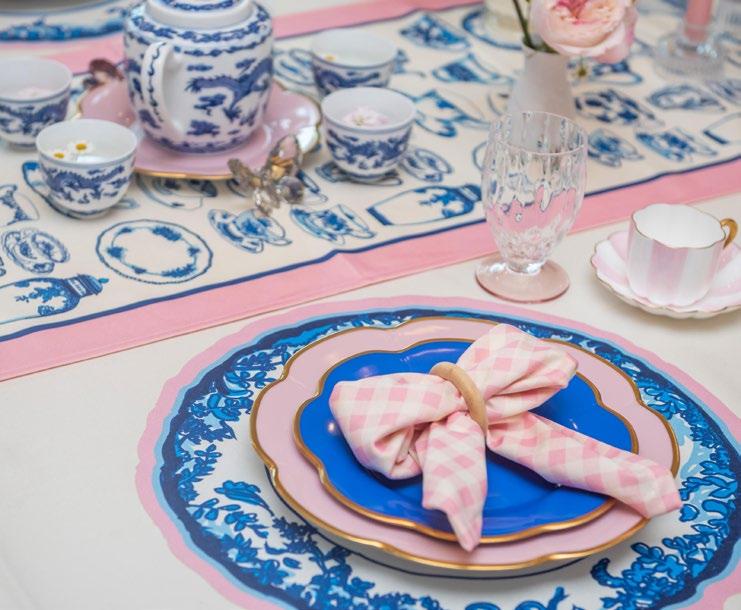
PREPPY BLOOM
This is our signature look, where it all started, our very first tablecloth ever designed. The idea was to create a tablecloth where the table is already set, and you only have to fill in the blank. This way it would become so much easier and hassle-free to set a beautiful table, as only by putting your tablecloth, the table looks already set. If you want to make it even more beautiful, you can add the plates, cutlery, and a few flowers as centerpieces as well. To achieve the look for less, you can opt for our placemats, which are also easily portable, so you can take them with you wherever you go. They are also spillproof and so easy to wash and care for. Additionally, the color does not fade even if you wash them very often.
This is one of our favorite looks ever created. It’s chic and feminine, a nod to the queen of Shabbat. What’s great about this collection is that it’s prêt-à-porter — ready to wear, but for your table. It comes in a matching pouch that holds everything you need: napkins, runner, and placemats.
Just open it, and your table is ready to set. The idea is to achieve a beautiful look without much effort.
We were inspired by a vintage-chic style, where the placemats act like a souplà, extending your plates, and the runner features an elegant, fresh design. Each napkin is folded into a bow, and while everything has a different pattern, it somehow matches perfectly.
Our tip: Don’t be afraid to mix colors and patterns — like pink and blue, or plaid and toile. You can create the bow-fold look with any napkin or piece of fabric. To make it even more fun and interesting, use teacups as small flower vases.
Inspired by the fresh style everyone loves, this design comes with a twist: wild animals incorporated into the pattern. When paired with soft flowers and delicate china, it creates a combination that’s simply irresistible. The playful, modern design features what looks like a hand-drawn runner in the center of the tablecloth, with tassels on the ends, making it fun to fill with flowers and other beautiful details that adorn your table.
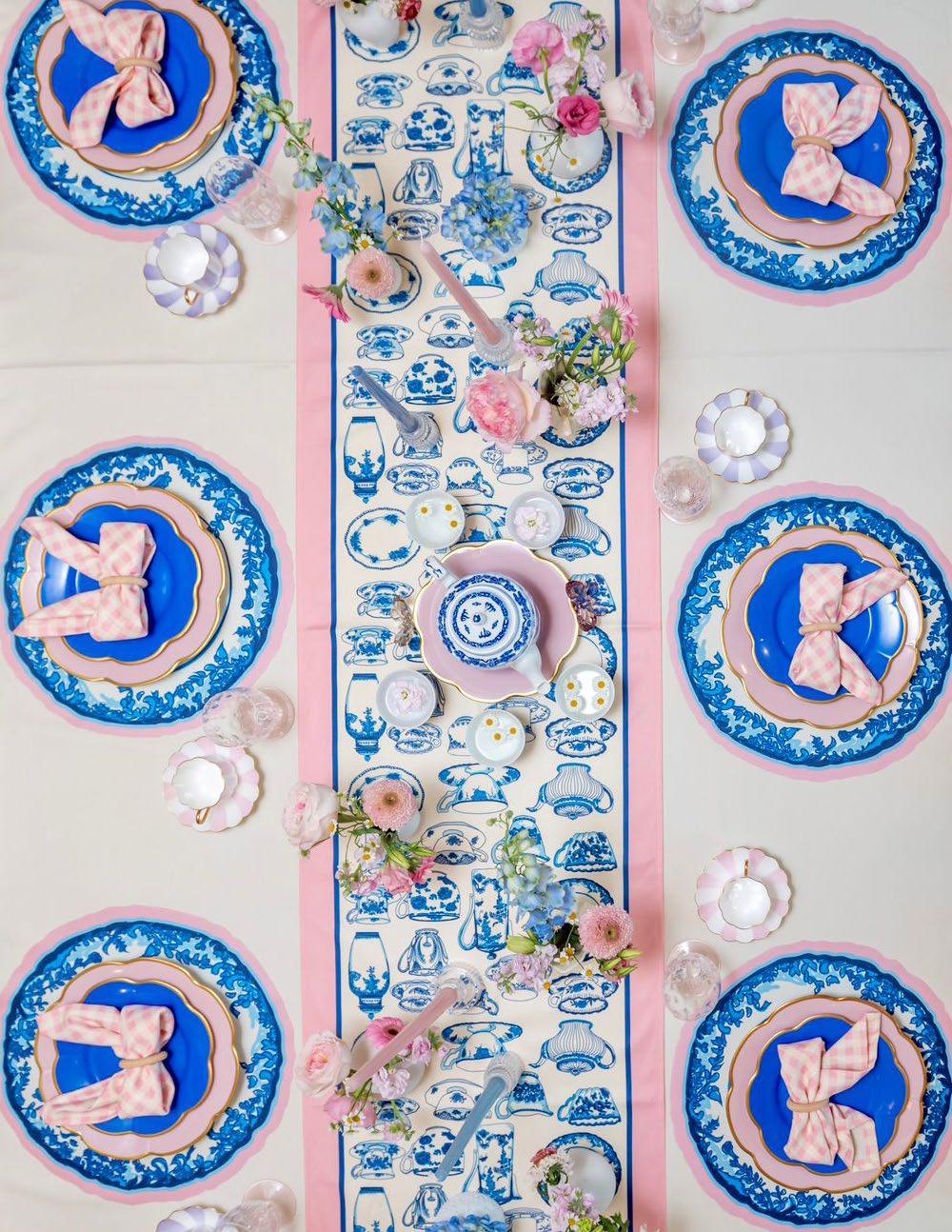
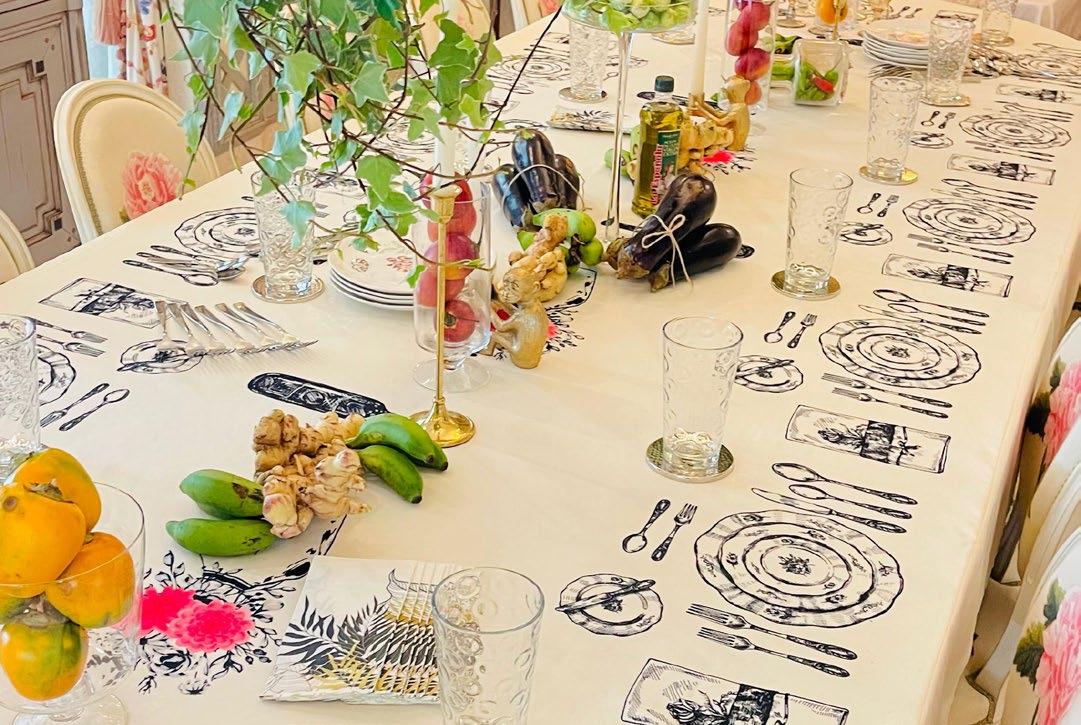
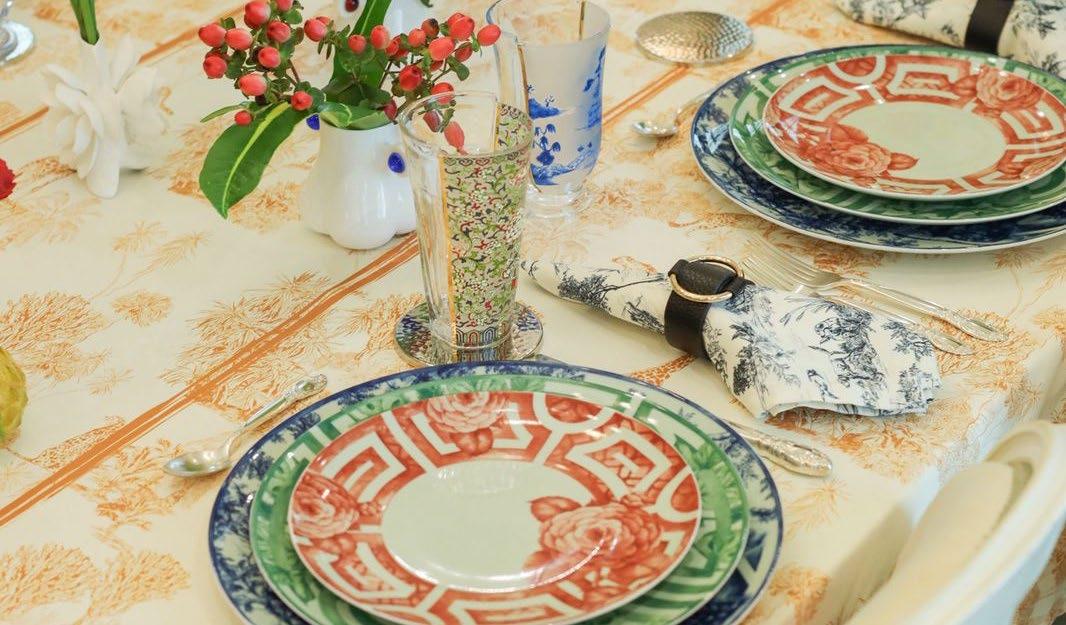
We believe all great things happen around the table. Business ideas are born there. Family news is shared. First dates, tough conversations, laughter, tears; it all happens with food, love, and presence.
When you want to bring someone closer, invite them to a meal. Your table is more than a place to eat. It’s a space of blessing, a canvas for beauty, a place for connection. It deserves to be set with joy, love, and intention.
Set it with care. Fill it with meaning. Let it reflect the life you’re building—one meal at a time.
Discover more of our creations at @tabletaleshome and @andreamilhem , where we share tips, designs, and ideas to make your table feel as special as the people sitting around it.
Want the products? Find them here:
@tabletaleshome @andreamilhem
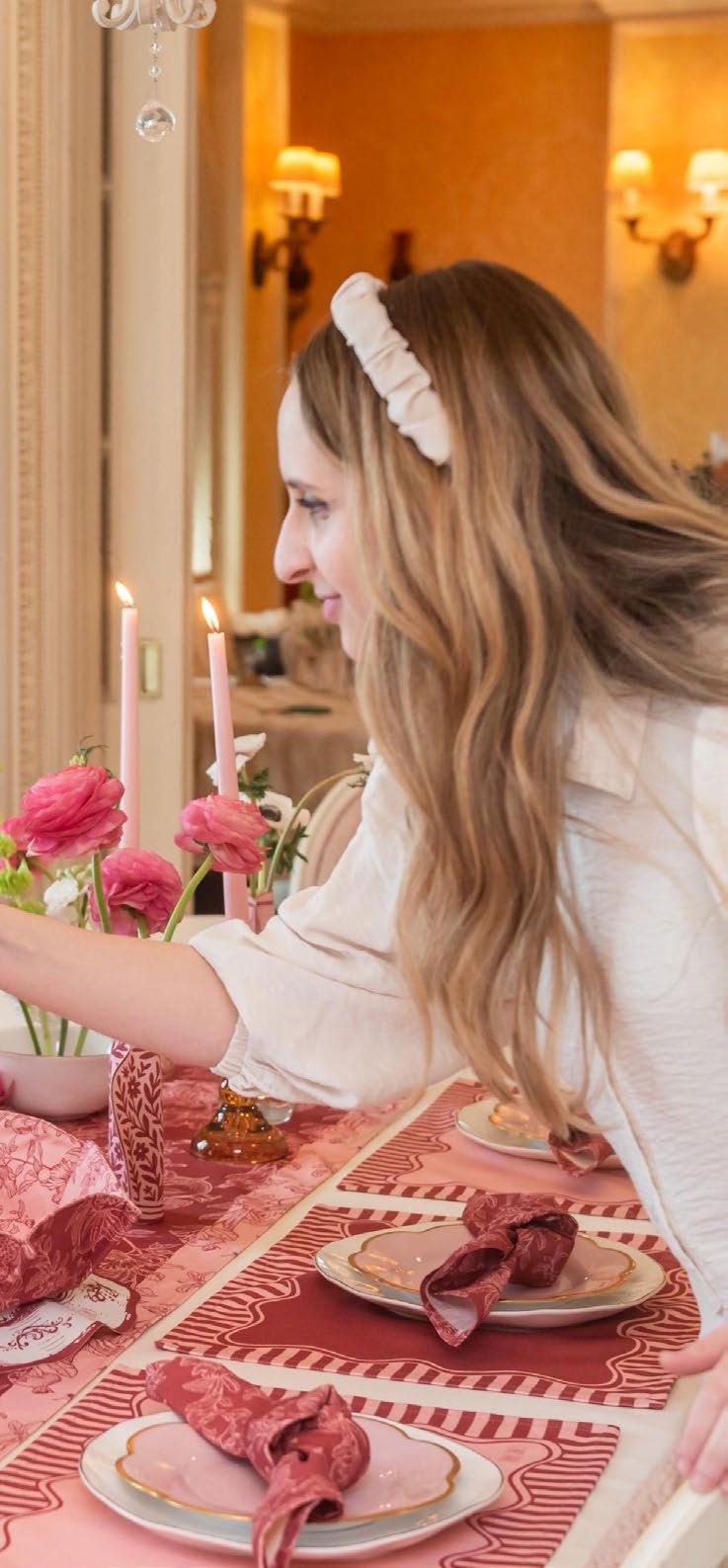
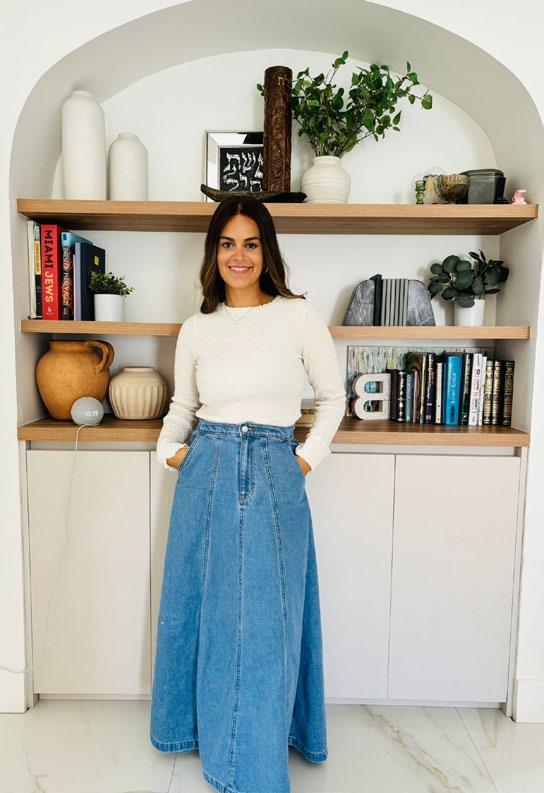
So many of us walk into the holiest days of the year feeling like we’ve barely had a moment to breathe, let alone to prepare our hearts. Our minds are spinning with menus, guests, schedules, outfits, and logistics. It’s easy to feel like everyone else is having a spiritual awakening while we’re elbow-deep in brisket and baby wipes.
But here’s the truth, the spiritual work doesn’t start when the shofar is blownIt starts in Elul. Elul is a whisper, a quiet knock, It’s G-d calling us softly, before the noise of the holidays begins, before the table is set, before the house is cleaned, before the prayers are recited- He invites us into a conversation that begins now. And that conversation doesn’t need to be poetic or perfect. It can sound like a whisper while the soup simmers. It can be a few words as you fold laundry or rock a child to sleep. It’s a private moment when you say, “This is who I was this year. This is who I hoped to be.
Q: As women, the High Holidays are filled with so much pressure — cooking, cleaning, hosting, coordinating, parenting. Sometimes I feel like I show up to Rosh Hashanah unprepared spiritually. I feel almost disconnected, like I’m missing something. Is there a way to really tap into the meaning of this time in the midst of all that’s going on?
A: You are not alone.
Here’s what I’m proud of. Here’s what I missed.”
Let your words be raw, let them be yours. Look back not with judgment, but with kindness. Ask: Where did I fall short? What was out of my control? What do I want to carry forward into the year ahead?
G-d isn’t waiting for a perfect soul, He’s waiting for an honest heart.
And here’s something else: the details that you’re pouring into - the table you’re setting, the food you’re preparing, the home you’re creating - they are part of your work, of your spiritual preparation.
Every napkin you fold, every dish you make, every act of hospitality and nurturing, it all count,. G-d sees it. All the unseen labor, the love woven into every corner of your preparation, it’s part of the offering you bring into the New Year.
So when you walk into Rosh Hashanah,
don’t see yourself as someone who didn’t prepare. You’re showing up with everything you did, every effort you made, every moment you tried to hold your family together and bring light into your home.
And yes, still find time for yourself. Steal five minutes of quiet. Stand by a window. Whisper a wish. Say something real, because G-d isn’t looking for grandeurHe’s listening for sincerity.
In the chaos, remember, your presence is enough, your effort is seen, and your whispered words are heard.
This Elul, begin the conversation- so when the shofar sounds, you’re not just a hostess at the table, you’re a woman who showed up, fully, with all her heart.
With a gentle invitation to start your holiday season right now,
Soul Season
Sarah Benisty
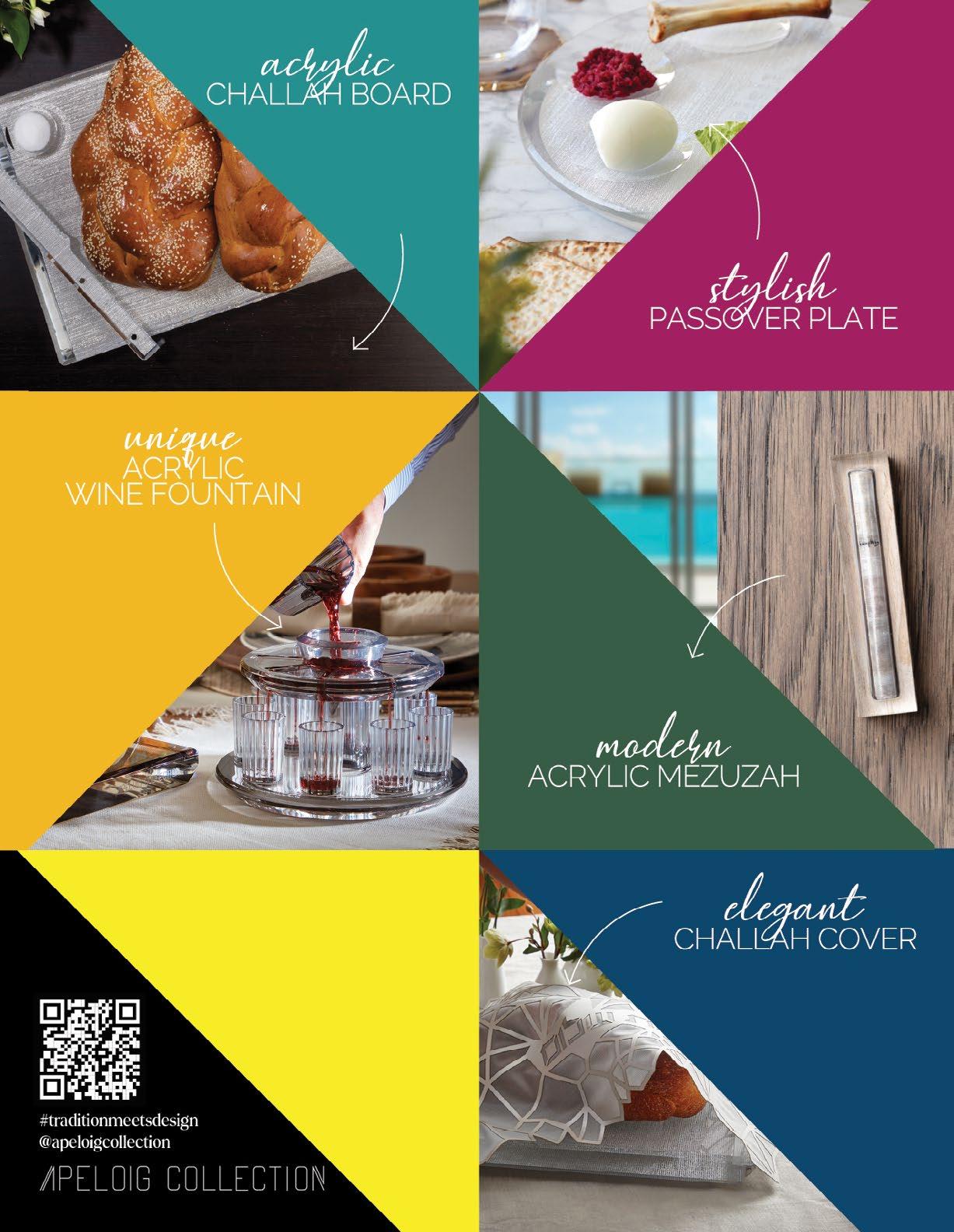
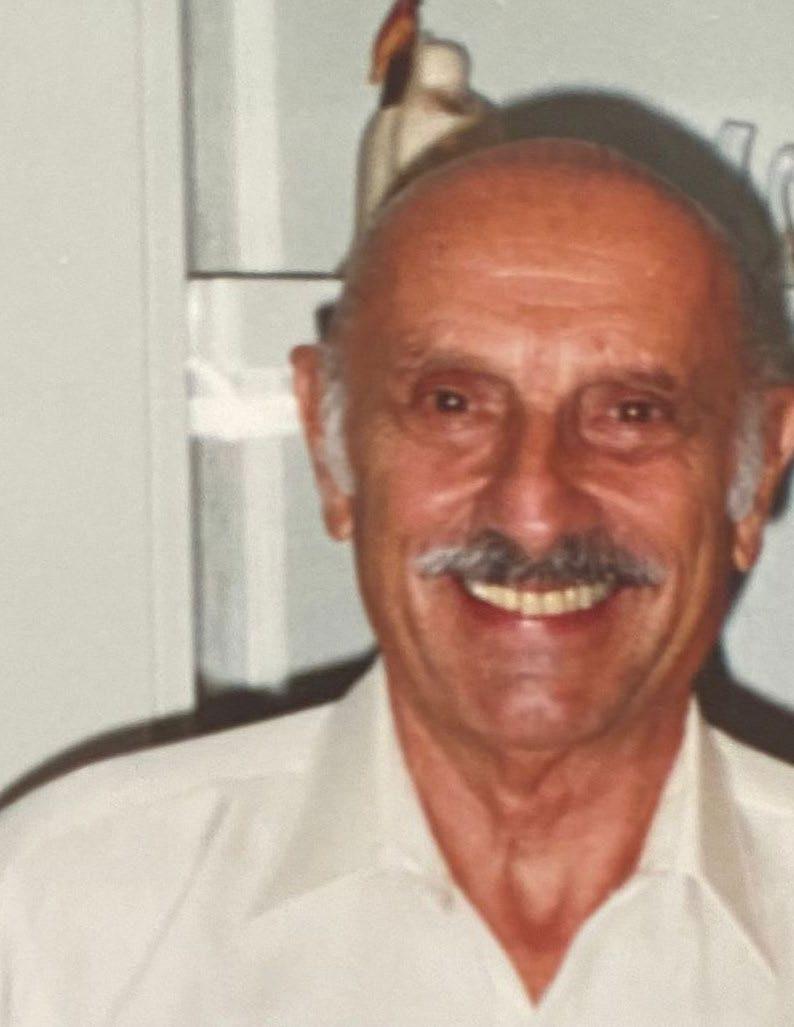
“Dear Grandpa: I dream of the day I can return with you to your home.”

By: Bárbara Wolf
This article you’re about to read is my small but heartfelt tribute to my Opi Erich (Opi, short for Opa, which means grandfather in German). An Austrian with a strong character, who had to flee with his brother in the holocaust, leaving his father behind.
And once in Argentina, after a long journey, he found the great love of his life, whom he loved deeply until his last days — even after she physically passed away.
He always made it a point to tell us his life story with pride and emotion.
He was Jewish and carried that identity proudly, despite everything he had been through. A man deeply respected by everyone who knew him.
“Babile,” he used to tell me!
Remembering and celebrating him in this way is my way of honoring my roots and keeping his voice alive among us. So I leave you with a glimpse into his incredible life story.
It’s Saturday at noon and I rush to share the family ritual — lunch at your house. The front door opens, and your wide, honest, and grateful smile is what greets me, followed by a hug that squeezes tightly and gives these lunches their meaning. At that moment, you call everyone to the table.
You sit at one end of the table, directly across from your beloved Edith, Grandma. The rest of the family takes whichever seat is free. At your table, only two spots are considered private property.
We’re a big family, so the conversations are all over the place. Silvia, one of your daughters-in-law, is telling every detail about the dresses at the last party she attended, and the other women listen attentively. We — your seven granddaughters — talk all at once. Among the men, there isn’t much in common. Your son-in-law is always quiet, and your two sons chime in when they can. You find it all amusing, touching — and a bit nerve-wracking too, since you miss parts of the conversation.
You let the early excitement run its course and, around dessert time, as usual, you ask for silence. And then, even the words still floating in the air quiet down. You always choose this moment to share something — a story from your week, a tale you read and liked, or especially, something from your personal life that some of us might not have heard before. Because like every Holocaust survivor says: “The story must be told from generation to generation, so it is never forgotten.”
“They’re coming to film me for a documentary Steven Spielberg is producing about Holocaust survivors. After my interview, they want us all together,” you say, barely pausing for breath.
A deafening silence fills the room. Glances are exchanged, expressions change, some shift in their chairs, but no one dares to speak first.
You don’t have a number tattooed on your arm, but your story is inked into our DNA with as much pain as those who had it carved into their flesh.
And it always leaves us speechless.
Everyone leaves, planning to return at the scheduled time. I stay to listen to you, even
though I already know every detail. I ask permission to stay. Your proud smile and sparkling eyes give me the answer.
I sit beside Grandma, to be close — like soldiers surrounding their general before battle. Because, without a doubt, every story is a battle. It’s remembering, stirring the past, and missing what’s gone. And this time, like always, you tell it with a composure that sends chills down my spine.
You recount everything as if you were reliving it in that very moment, naming places and people with clockmaker precision. The long walks along the Danube, the afternoons in Rudolf-Bednar-Park that always stretched longer than allowed, the monthly visits to Uncle Max’s house — the family millionaire.
You name your Viennese friends — people from a world long gone — with their full names. You speak at length about your close friendship with Otto Friendrich, who was your everything… until the day he found out you were “good material for making soap.”
Then suddenly, you say something that pulls me out of the moment:
“Am Tabor 5, door 47” — the address of your house in Vienna, which you describe in meticulous detail.
A long hallway with flimsy doors that the winter winds pierced without mercy, a bathroom shared with all the families on the floor, and the small dining room in your apartment where everything happened: your poor father’s work, your hours of study, and your amazing mother’s struggle to feed you with whatever she could find.
Your interview goes on, but I can no longer focus. Somehow, I feel the need to be in that place, embraced by your mother’s warmth.
I grab a piece of paper and write you a brief note, leaving it on your nightstand, hoping you’ll read it at night:
“Dear Grandpa: I dream of the day I can return with you to your home.”
BARBARA WOLF @bartisima
Link to youtube mentioned in article: https://youtu.be/WvUOpQqqoA8 Follow on Instagram: @bartisima

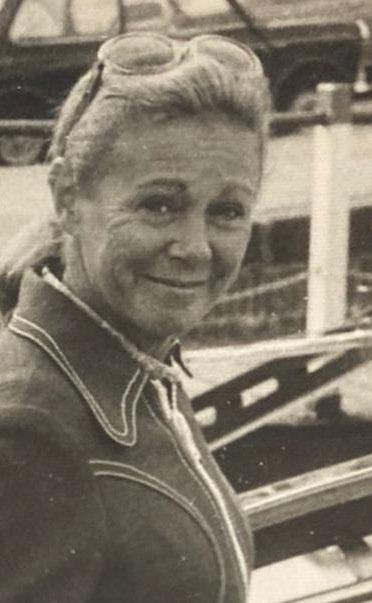
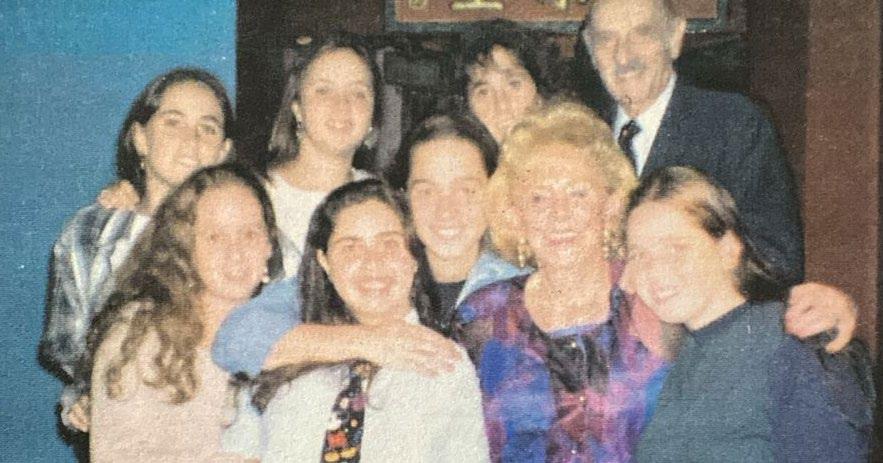
By Avital Zeev, Head Makeup Artist & Co-Owner, Bridal House by Avital and Avital
Avital Zeev is the head makeup artist, founder, and co-owner of Bridal House by Avital and Avital, a unique bridal boutique located in Mevasseret Zion, Israel, featuring over 300 gowns from many different Israeli designers—one of the largest selections of its kind.
Bridal House by Avital & Avital is co-owned by two longtime friends (both named Avital), bringing over 15 years of experience in bridal hair, makeup, and full-service styling.
If you’re getting married in Israel, we are your bridal service—from dress shopping to hair and makeup, providing personalized care every step of the way. Their all-women team is dedicated to making every bride feel beautiful inside and out. At Bridal House by Avital & Avital, they believe that confidence and joy on the outside reflect the heart within.
Based in Mevasseret Zion, Israel
The Yamim Noraim are a special time for reflection, renewal, and celebration. As a makeup artist who’s worked with countless brides and women preparing for these meaningful days, I know how important it is to feel beautiful while honoring the spirit of the season. But let’s be honest — between long hours in shul, festive meals, and limited time for touch-ups, your makeup needs to work as hard as you do. That’s why long-lasting, natural, and modest makeup is my go-to approach for the holidays. It keeps you feeling confident and radiant from Kol Nidrei through Simchat Torah.
*Note: The following recommendations are to be done before lighting the Shabbat candles or those of any holiday. Any type of cream-based makeup is not permitted halachically during chag; only make up with reliable hashgacha are allowed to be used during the holidays.


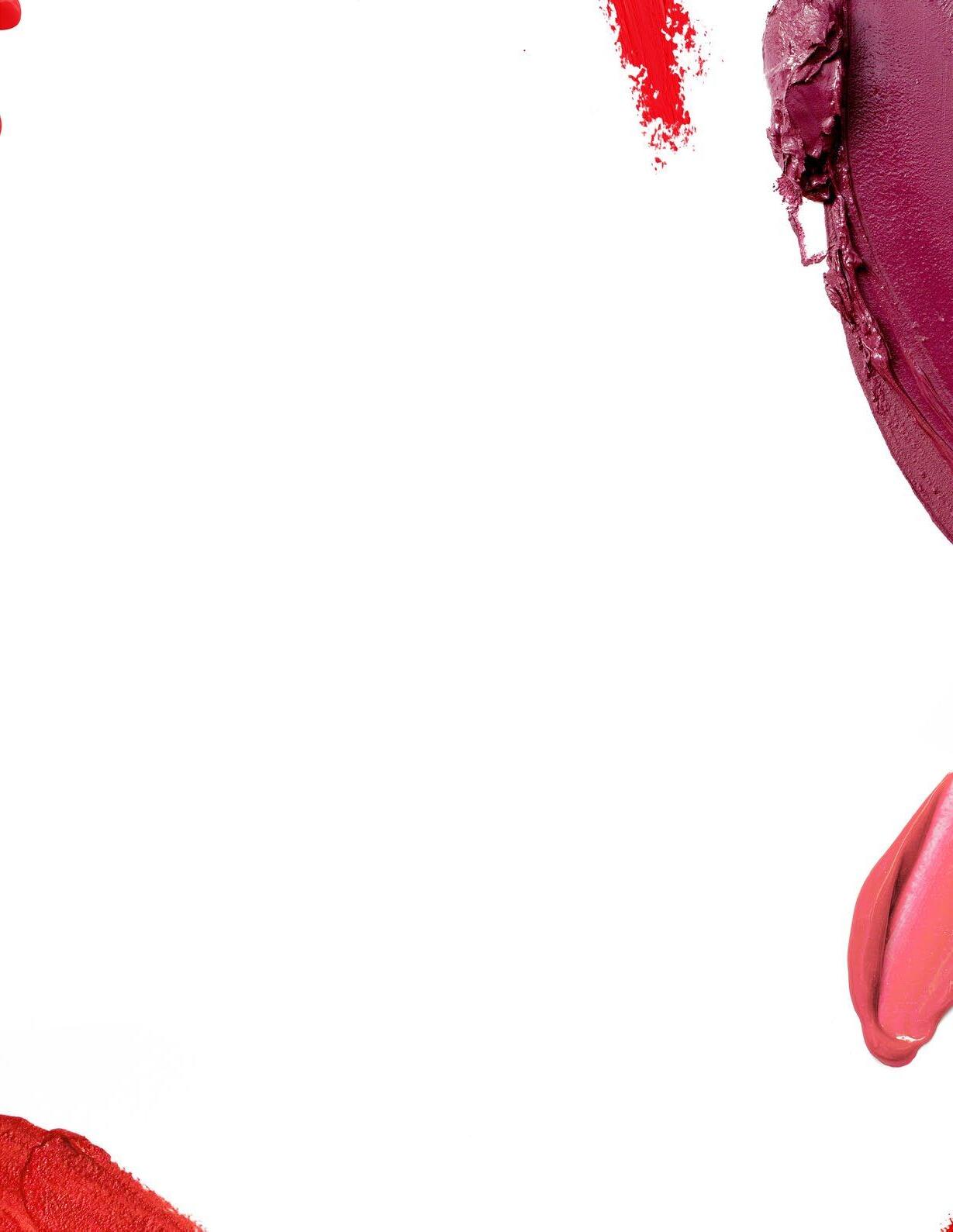
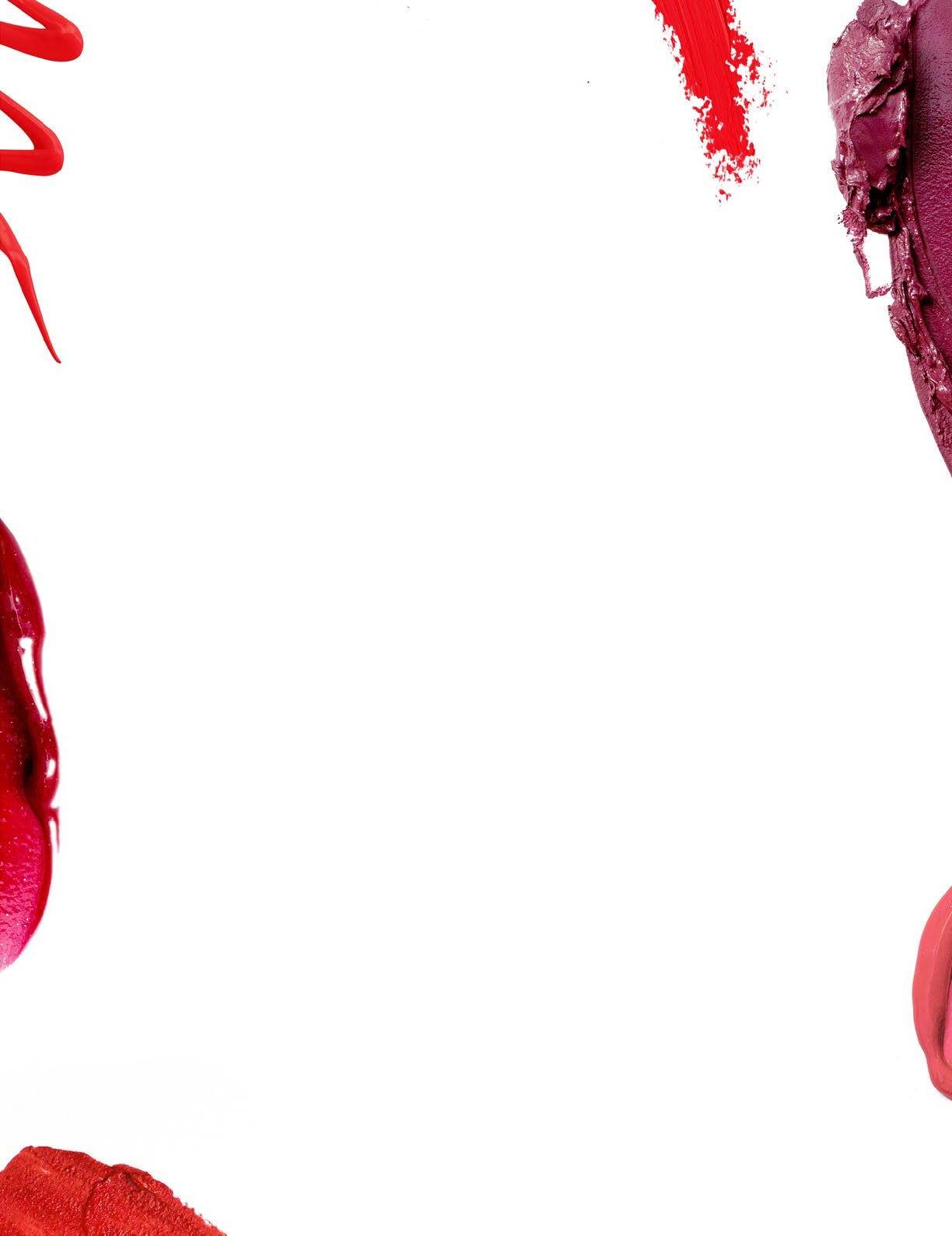
Mood & Color Palette
Soft golds, blush pinks, and warm berry tones inspired by sweetness, new beginnings, and the glow of the shofar’s call.
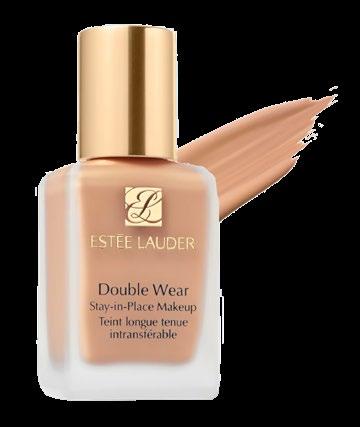
A luminous, fresh face with lightreflective foundation and minimal shimmer, rosy cheeks, and subtle
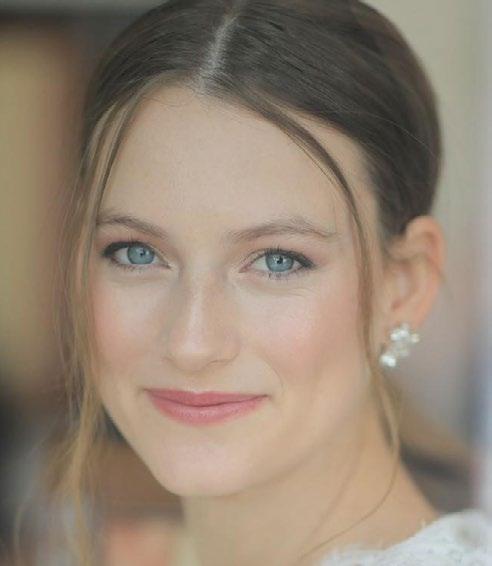
Estée Lauder Double Wear
Stay-in-Place Foundation IT Cosmetics CC Cream for a lighter,
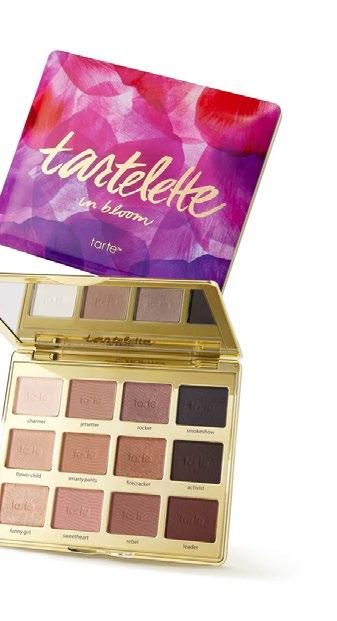

Any long-lasting primer you love (I often mix my foundation with it).

Eyeshadow Palettes:
Mascara:
Korean Beauty Heroine Make Volume & Curl Mascara (waterproof, great for davening tears!)..

Lip Stain:

Eyeliner: MAC Liquidlast Liner — will stay put all day without moving.
Maybelline SuperStay Ink Crayon — color that lasts through meals.
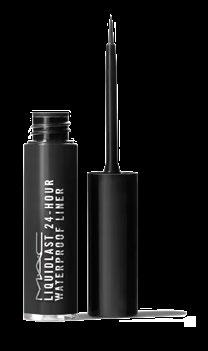
for easy fingertip application.
Use a light dusting of setting powder under the eyes to prevent creasing.
Apply MAC Liquidlast waterproof eyeliner to prevent smudging.
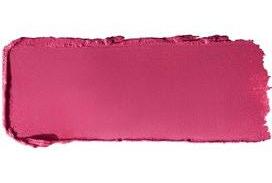
Always use an eyeshadow primer such as Mac’s Paint Pot – This will keep your eyeshadows on place through out the holiday.
Lip stains beat glosses for lasting color, especially through apples and honey.
Pro tip: You can even use your long-lasting lipstick as a cream blush — that’s our little secret!
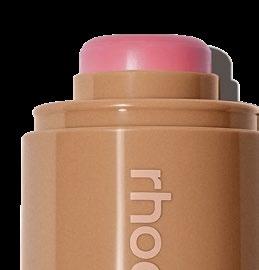
Mood & Color Palette
Barely-there, reflective, neutral tones to honor the introspective nature of the fast day.
Suggested Look
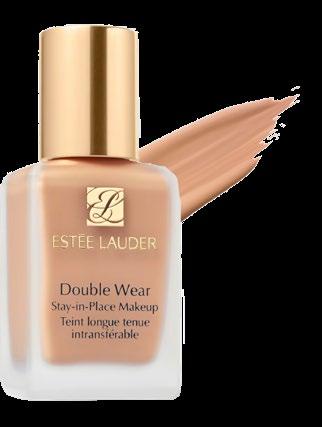
Minimal, hydrating, and freshfaced with a focus on skin prep
Primer & Foundation:
Estée Lauder Double Wear (lightly applied) with IT

Cosmetics CC Cream for a luminous but light finish.

Mascara & Liner:
MAC Liquidlast Liner and waterproof mascaras only.
Eyelash curler:
Lip Stain:
Hydrating, no-fuss balms such as NARS Afterglow Lip Balm.
This will help you look more awake than you really are.


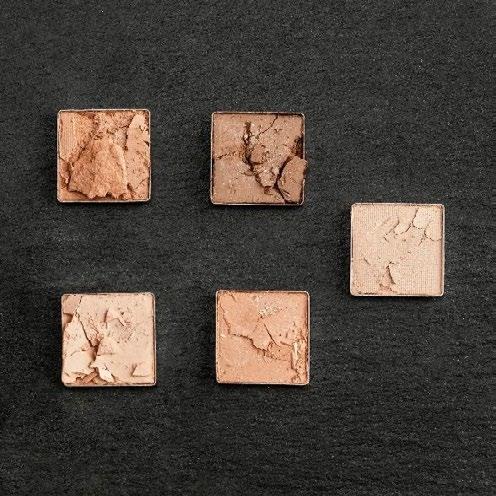
(neutral beiges, soft browns, subtle mattes)
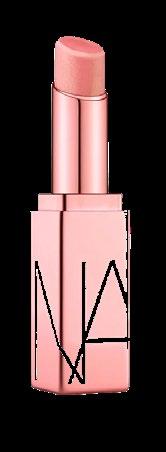
Prep skin with moisturizer and a hydrating primer to keep you looking alive through out the fast.
Keep makeup light and natural to reflect the solemn mood.
For a simple long lasting eye – pop on the Mac Paint Pot in “Painterly” or “groundwork” and some long lasting mascara.
Neutral mattes like Natasha Denona Nude Palette or Makeup by Mario Matte Palette.

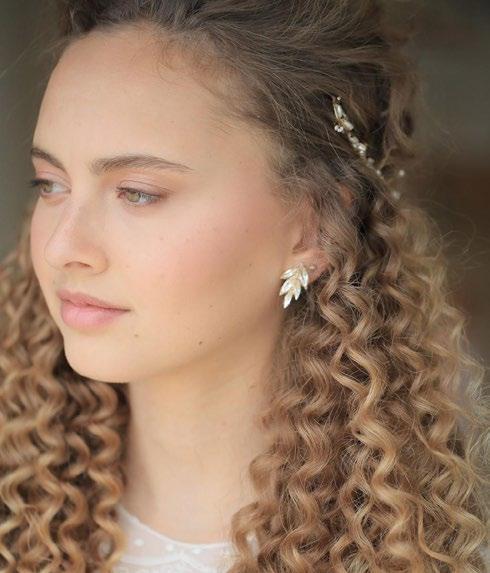

Sukkot Color Palette
Illustration: (greens, bronzes, warm earthy tones)
Foundation:
Long-lasting, dew-finish formulas mixed with IT
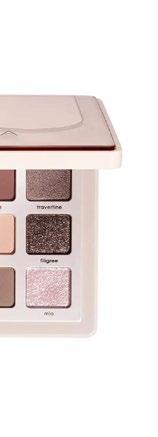
Cosmetics CC Cream, plus setting spray.



Eyeshadow Palettes:
Anastasia Beverly Hills Fall Romance Palette for rich greens, bronzes, and plums. Tartelette In Bloom Palette for earthy browns and neutrals.
Use a dewy setting spray like Urban decay “All Nighter” to revive your glow after dancing and meals.
Apply primer and setting powder strategically to avoid shine while keeping the dewiness.

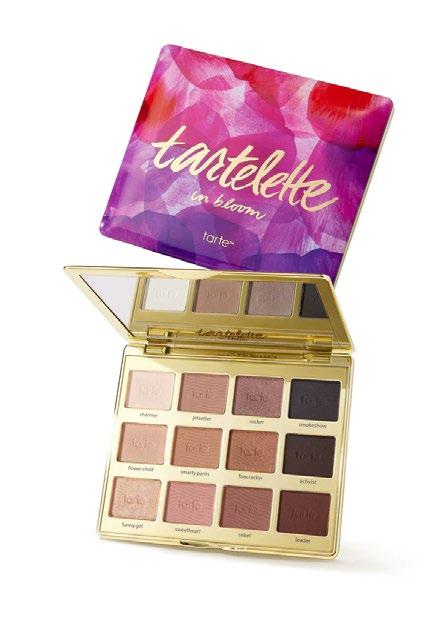
Mascara & Liner:
Waterproof formulas like Korean Beauty Heroine Make mascara and Liquidlast Liner.
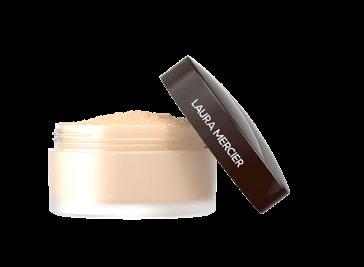

Lip Stain:
Hydrating, no-fuss balms such as NARS Afterglow Lip Balm.
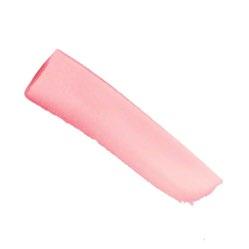


A childhood dream, rapid success, sudden, sudden fall, and a journey toward spiritual renewal.
by: Lehaalot
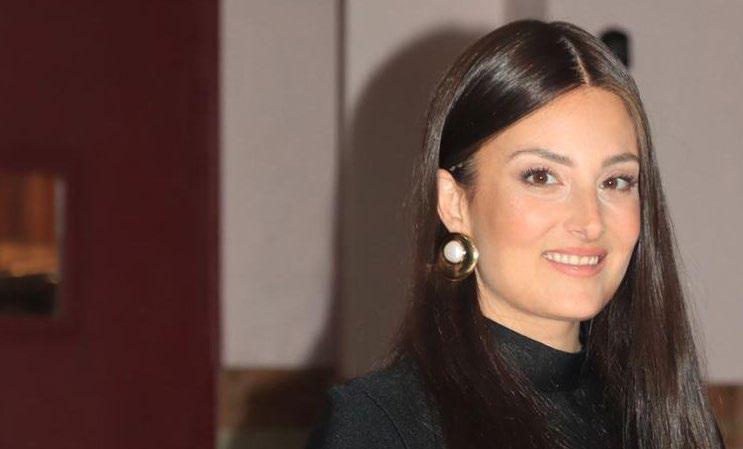
Diane Bouccara’s story reminds us that sometimes the quietest voice within points the way forward — urging us to step beyond the limits we’ve accepted and follow what truly calls to our soul. We build, we strive, we achieve… and then, at times, everything falls apart. It’s in that space of challenge that clarity and light emerge.
Diane made room for Hashem in her journey. She didn’t abandon her dreams — she transformed them. Without compromise or self-erasure, she brought her Judaism to the forefront of the fashion world, with both elegance and integrity. By honoring herself, she earned the respect of the world around her.
Born in the suburbs of Paris into a loving, traditional family, Diane grew up immersed in the Hebrew tones of her Israeli father and inspired by the professional success of her mother and sister. From an early age, she knew she was Jewish, but attending secular schools distanced her from religious life. Her connection to Judaism came through
holiday rituals, Shabbat candles, her father’s Hebrew music albums, and occasional calls from the local Chabad House.
Diane had bigger dreams. Paris. Fashion. Luxury. She longed to leave the 93rd district behind and step into the world of the Champs-Élysées. She studied communications and eventually took a job as a receptionist at Prada during Fashion Week. At 21, brimming with excitement, she felt she was
“If I have to serve coffee to get into this world, then I’ll do it with excellence.”
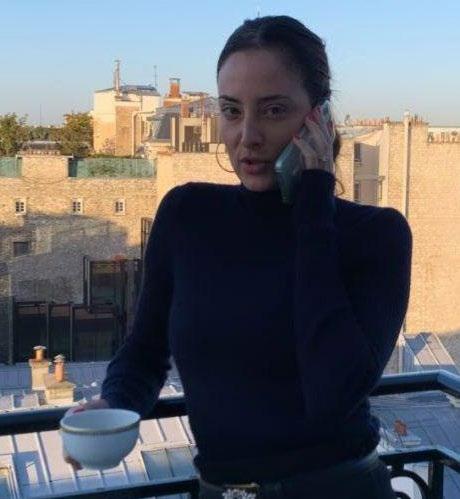
finally touching the edges of her dream. Diane quickly stood out. She climbed the ranks, became a press office and then head of the celebrity and influencer department. She dressed Rihanna, Uma Thurman, Bella Hadid, David Beckham, and more. Everything looked perfect. But behind the glitter, the reality was harsh.
She lived under constant pressure, experienced humiliation, and silent manipulation. Sleepless nights, deep anxiety, and private tears became her norm. Yet she kept pushing forward, driven by ambition and the mistaken belief that her success relied solely on her own strength.
Until the day everything fell apart.
A misbuttoned blouse. A camera. A video. A termination. Diane was let go, and her world collapsed. She experienced depression, claustrophobia, and anxiety attacks. But that’s where her real story begins. She went to Ashdod to rest and reset, and for the first time, she truly lifted her eyes to the heavens.
“I realized it was the most beautiful blow Hashem could have given me.”
From that fall came clarity. She had left Hashem out of the picture. She decided she would no longer move forward alone. She said to Him:
“If You give me another chance, I will live it with You.”
Two months later, she joined the fashion house Chloé — not as a receptionist, but as the assistant to the artistic director.
This time, she laid down her conditions: she would keep Shabbat. She would wear skirts. And to her surprise, not only was she accepted, she was supported. Her boss helped her choose a wig. Even the models wished her “Shabbat Shalom.”
“When you bring Hashem with you, the world transforms around you.”
At Chloé, she experienced spiritual elevation. She became an ambassador of tsniut at the heart of luxury. Hashem responded with blessings: racks of clothing, a gifted wedding dress, three children, and a husband who shares her values.
And one day, two days before Purim, her artistic director said: “Diane, I want you to tell me the story of Queen Esther.”
In that moment, in a Parisian fitting room surrounded by models and stylists, Diane gave a dvar Torah. She wept. She understood. The world had been created for this; for a Jewish woman, a press officer in a couture house, to let Hashem’s words echo in an unexpected space.
Today, Diane guides women back to themselves. Through conferences and Instagram, she shares a vision of authentic, elegant, and spiritually aligned femininity.
She teaches that tsniut is not a prison, it’s a crown. That we don’t dress to hide, but to reveal. How we present ourselves influences our dignity, our behavior, and our connection to our soul.
“We think it’s hard. But once you invite Hashem into the process, everything aligns.”
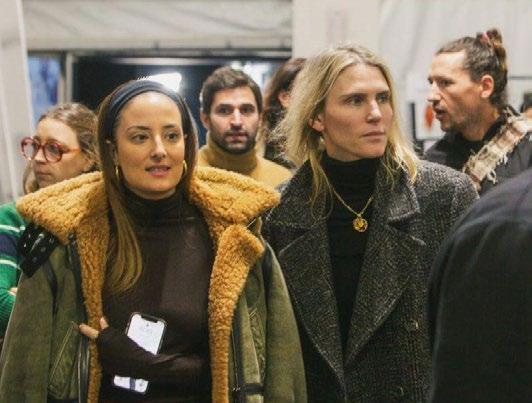
Hear the full story on our podcast — click here.
Follow on Instagram: @dianebouccara
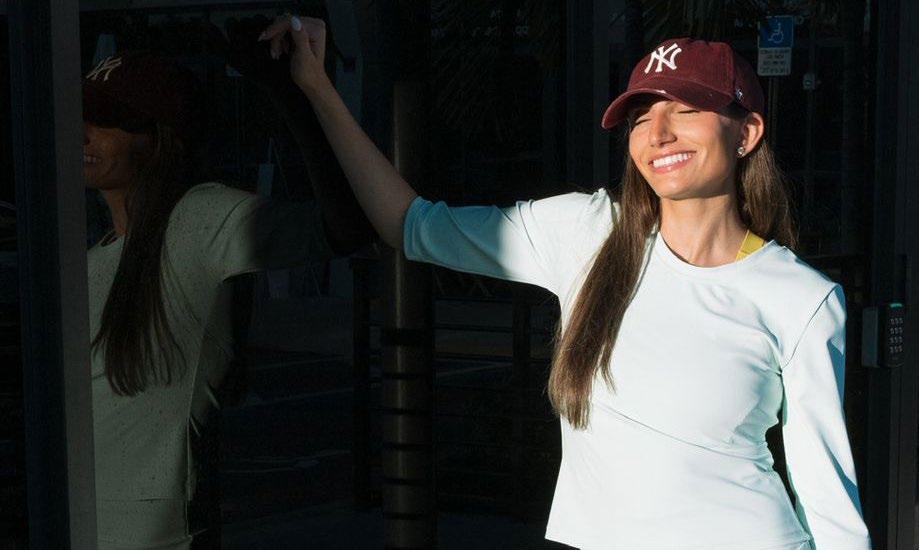
by Lehaalot
Some women don’t just build businesses — they build beauty with meaning. Elinor Dahan is one of them.
In her story, you’ll find more than creativity and success. You’ll find a woman rooted in the values she quietly absorbed growing up: faith, integrity, work ethic, hospitality, and a deep connection to people. With humility and clarity, she teaches us that our talents are not ours to admire — they’re tools, gifted by Hashem, to accomplish a mission.
Elinor shows that emunah isn’t just faith in G-d, it’s trust in the light He placed within each of us. Modesty becomes a way of living in harmony with our soul, our purpose, and our truth. And leadership doesn’t have to be grand or loud; it can be as quiet as a kiss on a mezuzah or as steadfast as holding firm to your values, yet still have the power to transform lives.
Her journey inspires us to dream with intention, create with conviction, and remember that when we live with purpose, we can build a truly elevated life.
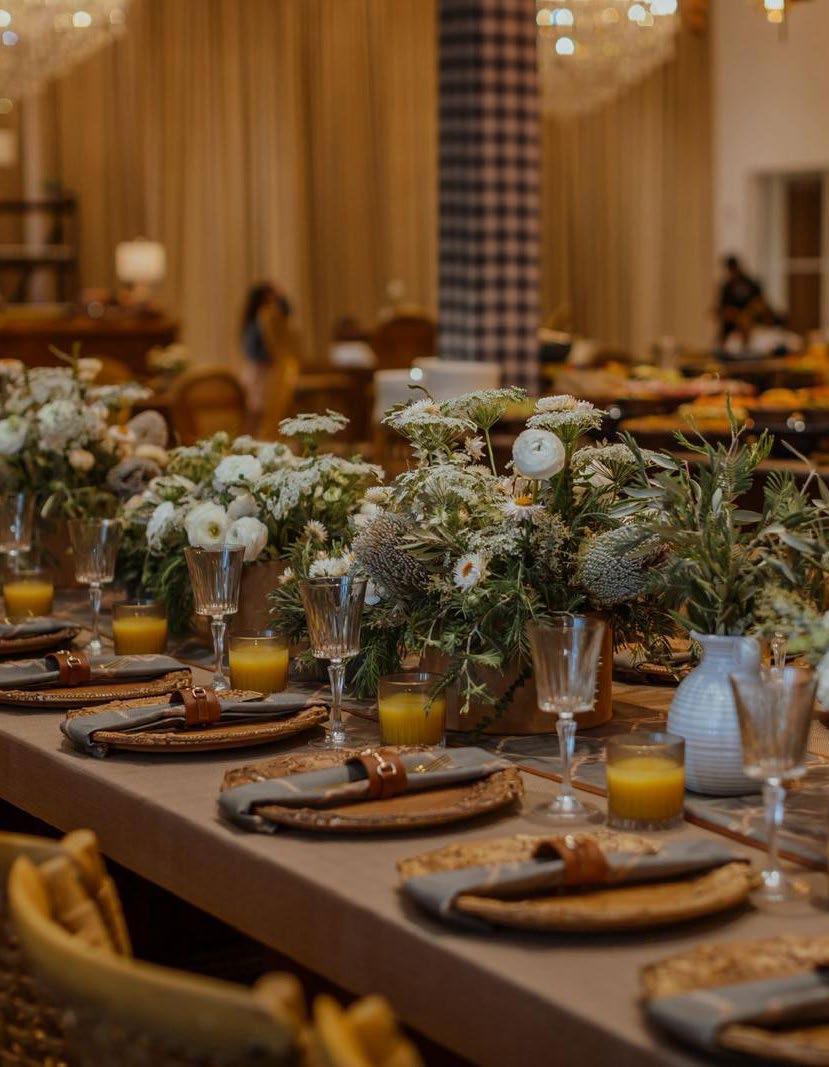
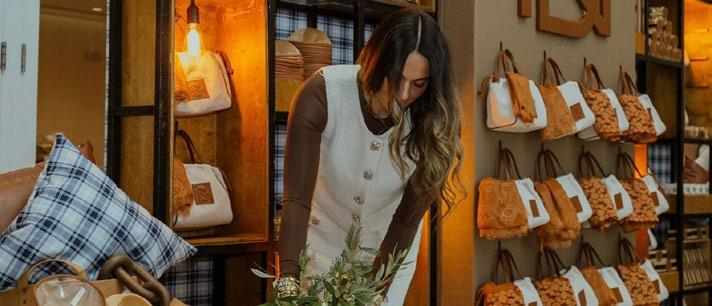
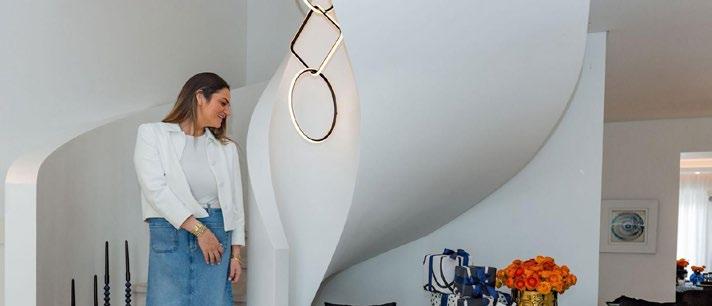
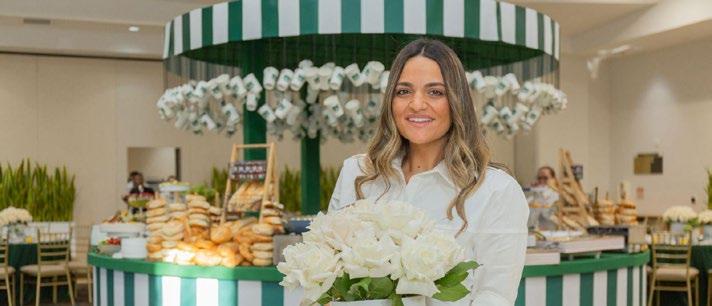
From her earliest memories growing up in a warm Moroccan Jewish home in Florida, Elinor Dahan was surrounded by beauty, hospitality, and emunah. Whether it was setting the Shabbat table as a little girl, organizing school Shabbatons, or designing parties for family friends at 14, Elinor was already unknowingly preparing for the mission Hashem had carved out for her.
Today, she is the founder of PLUX, a luxury activewear brand rooted in the belief that modesty meets movement for every body, and a designer of elegant, detailrich events that reflect refinement and meaning. But her story is not simply one of creative success; it is a journey of faith, values, and choosing to live with deep intention.
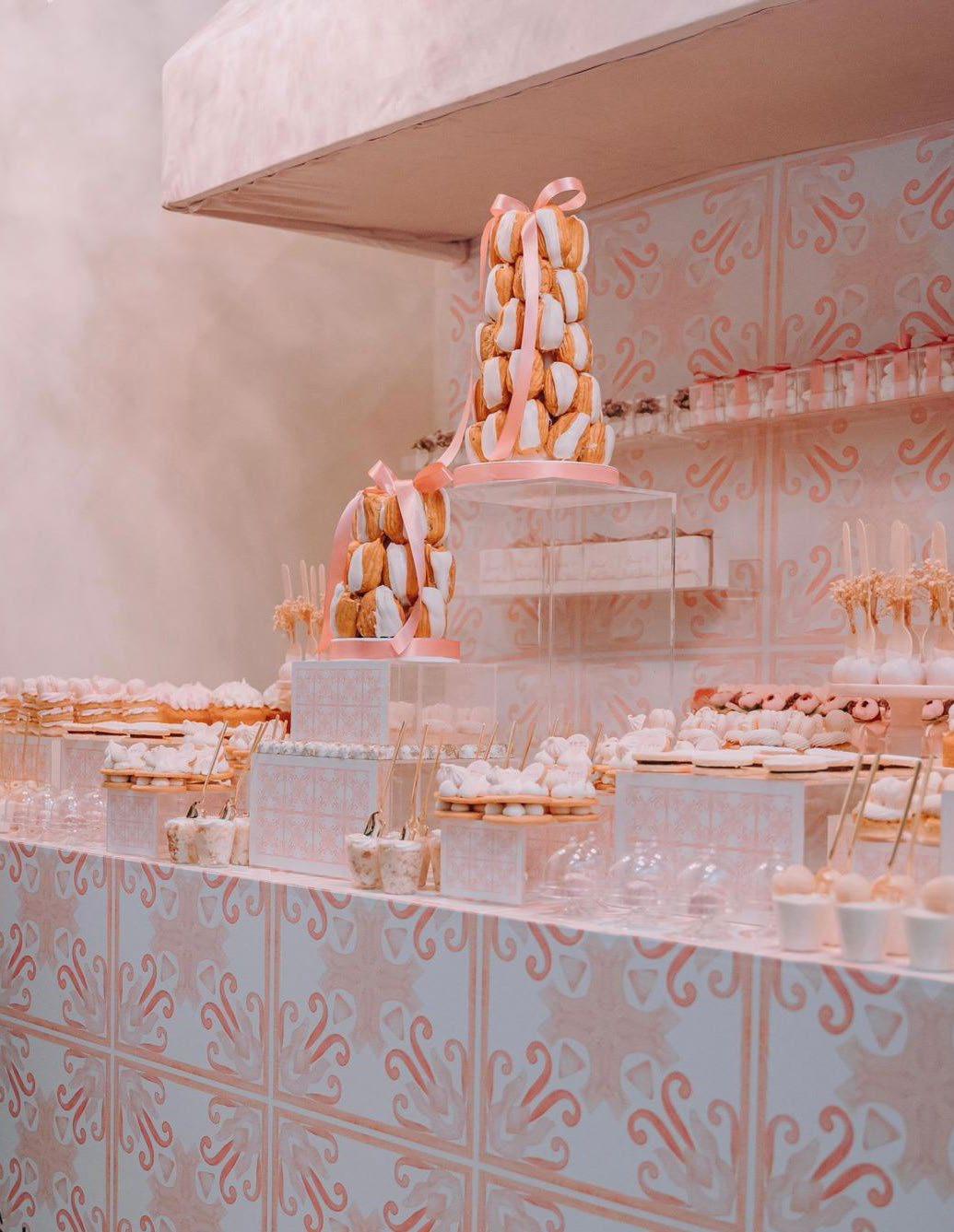

Elinor’s path begins with quiet lessons learned at home.
“ My parents didn’t preach,” she recalls. “They modeled. Their work ethic, their way of speaking to others, their unconditional commitment to sending us to Jewish schools, these were silent values that shaped me.”
The Dahan family home was always open. Shabbat and holidays brought guests of all kinds, observant or not, into their orbit. And with each table she helped set, each bouquet she arranged, Elinor was practicing what would become a professional calling: bringing people together through beauty and elevating them through warmth.
By 12, Elinor was importing products to sell at school. By 14, she was booking bounce houses and entertainers, launching her first business: Artsy Party. She wasn’t just creative, she was fearless. And yet, Elinor never imagined design or fashion as a long-term path. She enrolled in Yeshiva University, majored in marketing and management, and expected a traditional business route.
Then came COVID. Life paused, and Hashem opened a new door.
She revisited a long-held dream: to create modest, flattering, high-quality activewear. With a handpicked group of peers from her fashion classes, Elinor launched PLUX. The first collection was exclusively plussize, a statement of inclusion, dignity, and confidence.
“Modesty,” she explains, “is more than clothing. It’s how you carry yourself. It’s living with intention.”
Elinor’s approach to tsniut is refreshing and empowering. “It’s not about hiding. It’s about revealing who you really are, your soul, your essence. It’s about dignity,
purpose, alignment.” Every PLUX piece reflects this message, and so do her events.
When a client asked her to plan a brit milah at a non-kosher venue, Elinor respectfully declined, even though the job would have been a big success. The client tried again. And again. Eventually, she agreed to change everything: the venue, the caterer, even forfeiting her deposit, just to work with Elinor and align with her values. “After the brit, the father told me he felt a weight lifted off his shoulders. That his son had a kosher brit, because of me.”
That’s when she knew: “This is my mission. This is why Hashem put me here.”
For Elinor, modesty isn’t a limitation; it’s a way to live with purpose. “You can still create beauty, still captivate people, while staying true to yourself.” Whether through PLUX, her events, or simply walking into a café and kissing a mezuzah, Elinor infuses meaning into moments. “We never know who we’re impacting,” she says, “but that’s the win, those small sparks of inspiration.”
“Don’t underestimate your gifts,” she tells women. “Hashem gave you tools for a reason. Your talents are not random. Embrace them with humility, and use them to fulfill your mission.”
To mothers, she offers a reminder from her own upbringing: “Support your daughters’ ideas. Empower them to dream. It might look like a birthday party or a quirky fashion idea, but you never know, that spark could be their calling.”
To students and aspiring entrepreneurs, she says: “Live with intention. Block out the noise. Don’t chase titles or money. Chase impact. Ask yourself, ‘What do I want to create with the tools Hashem gave me?’ Then go build it.”
Hear the full story on our podcast — click here.
Follow on Instagram: @elienordahan
by Lehaalot
With Sarah Perets, every word carries intention, and every silence holds depth.
Her journey reminds us that education is not a profession — it’s a mission: to transmit, to awaken, and to build, one soul at a time. Through her lens on life, faith, and Jewish femininity, she calls us back to what truly matters: showing up fully — with heart, with awareness, and with courage.
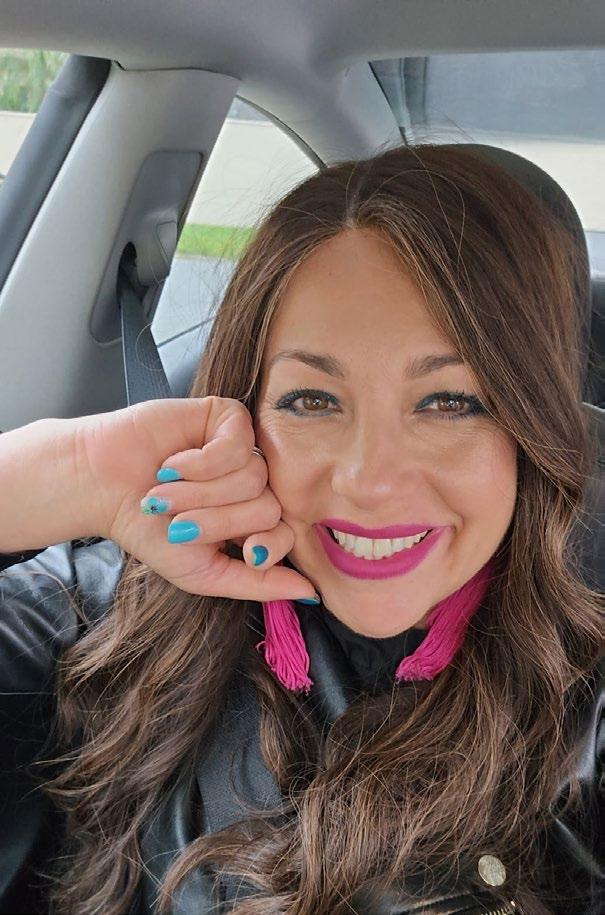
If life were a book, Sarah Perets would title hers: “Always Moving Forward.” A simple yet powerful mantra that threads through her personal, family, and spiritual path. In a world that idolizes perfection and instant results, she embodies a quiet yet steady strength — one that chooses action, commitment, and hope, even in the face of adversity.
Sarah was born in Grenoble, France, after a prophetic “Mazal Tov” blessing from the Lubavitcher Rebbe. Her parents had been sent there on shlichut by the Rebbe himself. The blessing came before her mother even knew she was pregnant — as if her life’s mission was written from the start.
Her parents, pioneers of active Judaism in a small French town, lived by one guiding principle: to give. They gave time, love, help, meals, shelter, and a listening ear. Their home became a meeting place for Jewish souls — students, travelers, researchers, and families. Kindness filled the air, and hospitality was simply part of life.
Growing up in a home open to all shaped her worldview. Sarah looks back with gratitude on a childhood immersed in generosity. Yes, sometimes she had to share her parents with a revolving door of guests, but she quickly came to understand how rare and beautiful that life was. Most of all, she learned that doing good isn’t a tactic — it’s a way of being.
“We don’t do good to receive. We do good because it’s the right thing to do.”
As a teen, she had a conversation with her father that stayed with her: How can Hashem know everything and still let us choose? He explained with an example — a chair in the middle of a path. He asked her how would she get past it? Then, he secretly wrote something on a paper before her answer. She said she would jump over it. When she was done, he showed
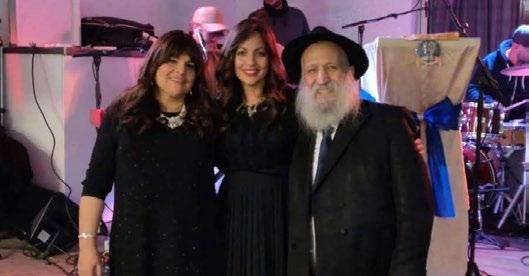
her the note: “She will jump.”
“Hashem knows… but it’s still your choice.”
This lesson remains with her. Life throws situations at us, sometimes blessings, sometimes hardships. The only question that matters is: “What are you going to do with it?”
In 2024, disaster strikes when a criminal arson attack reduces her family’s home in Grenoble to ashes — forty years of service, hospitality, holidays, shared meals, and sacred objects gone in minutes.
Through the tears, her mother says:
“I should go outside and dance in the streets — because we’re alive.”
Her father adds with unshakable faith:
“We have to speak about
the miracle.”
The miracle? By divine timing, the whole family had left just ten minutes before the explosion.
Even in ashes, they showed that gratitude and faith can survive anything.
Sarah later marries an Israeli-American man and moves to Los Angeles, where she finds her own way to give. She starts with Parsha classes at UCLA, then creates Torah study groups for women. Her warmth and insight attract hundreds, in both French and English.
One idea guides her: don’t wait for a title to make a difference. As she and her husband say:
“If
you see a need, meet it. Don’t wait for someone else to act. Be the one.”
No official role, just being there, listening, and living Torah.
Sarah is also a mother of a large family, including a child with special needs. She speaks with honesty about what it takes — learning to say no, prioritizing, and creating balance.
She emphasizes a foundational truth:
“You don’t find time. You make it.”
Caring for her marriage, her children, and herself while teaching Torah requires rhythm, boundaries, and intention. It’s about nurturing without burning out.
Sarah says it simply: “Don’t wait to be rescued. Become the change.”
And that change? It starts with one small thing. Just one. Done consistently, with sincerity.
“I committed to giving tzedakah every day. One coin. Just one. But every day. And it changed me.”
Because steady light shines farther than any spark that fades.
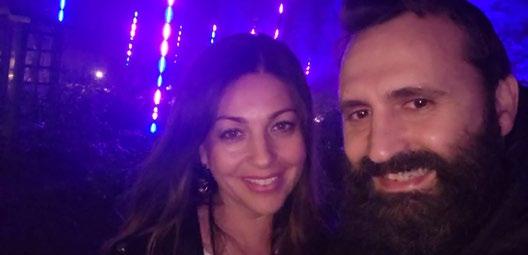
Sarah sees Jewish women today as key players in bringing redemption. Not through force or protest, but through gentle transformation; of the home, the husband, the children, the world. She encourages every woman to reconnect with her soul’s purpose — without guilt, without the pressure to be perfect.
“Embrace who you are. Then reach just a little further. One step. But do it with your soul.”
It’s a message for every woman, no matter how near or far she feels from Torah — because, as Sarah says, every woman is a flame, and every flame brings light.
Sarah Peretz doesn’t claim to have all the answers. However, there is one thing she knows for sure: you can’t pass on the light if you don’t live in it first. And she lives in it; with strength, faith, and joy.
In Grenoble, in Los Angeles, and far beyond.
Hear the
story on our podcast — click here.
